#taylor swift locks
Explore tagged Tumblr posts
Text



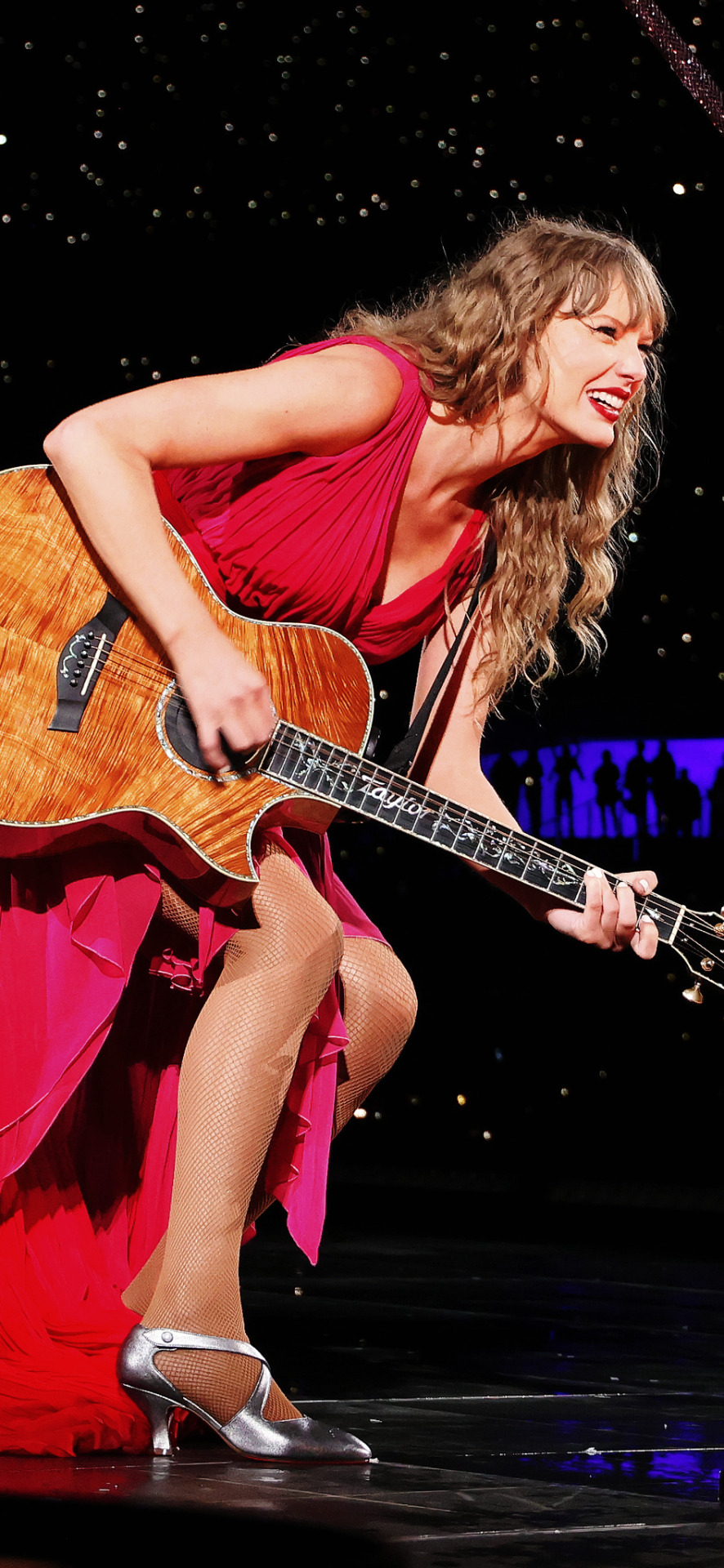
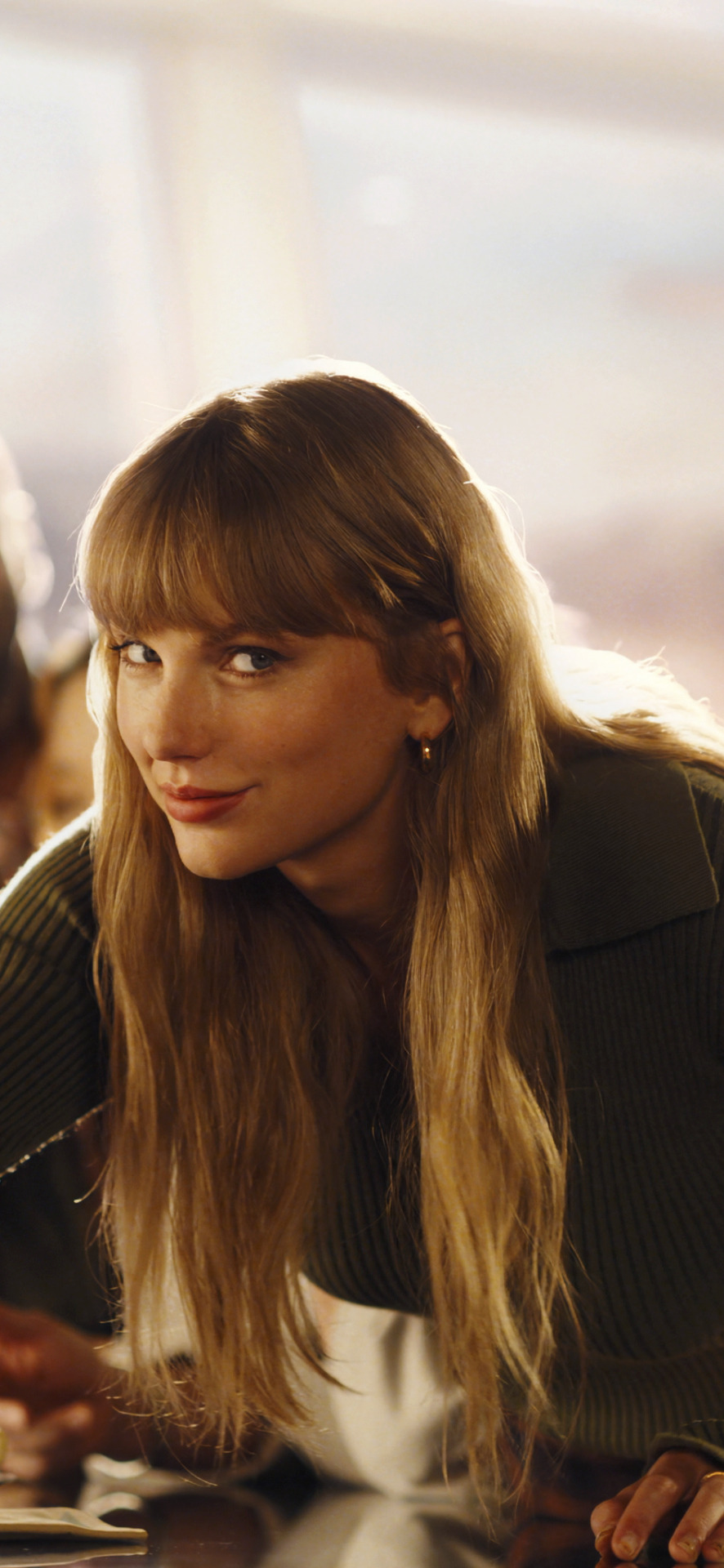
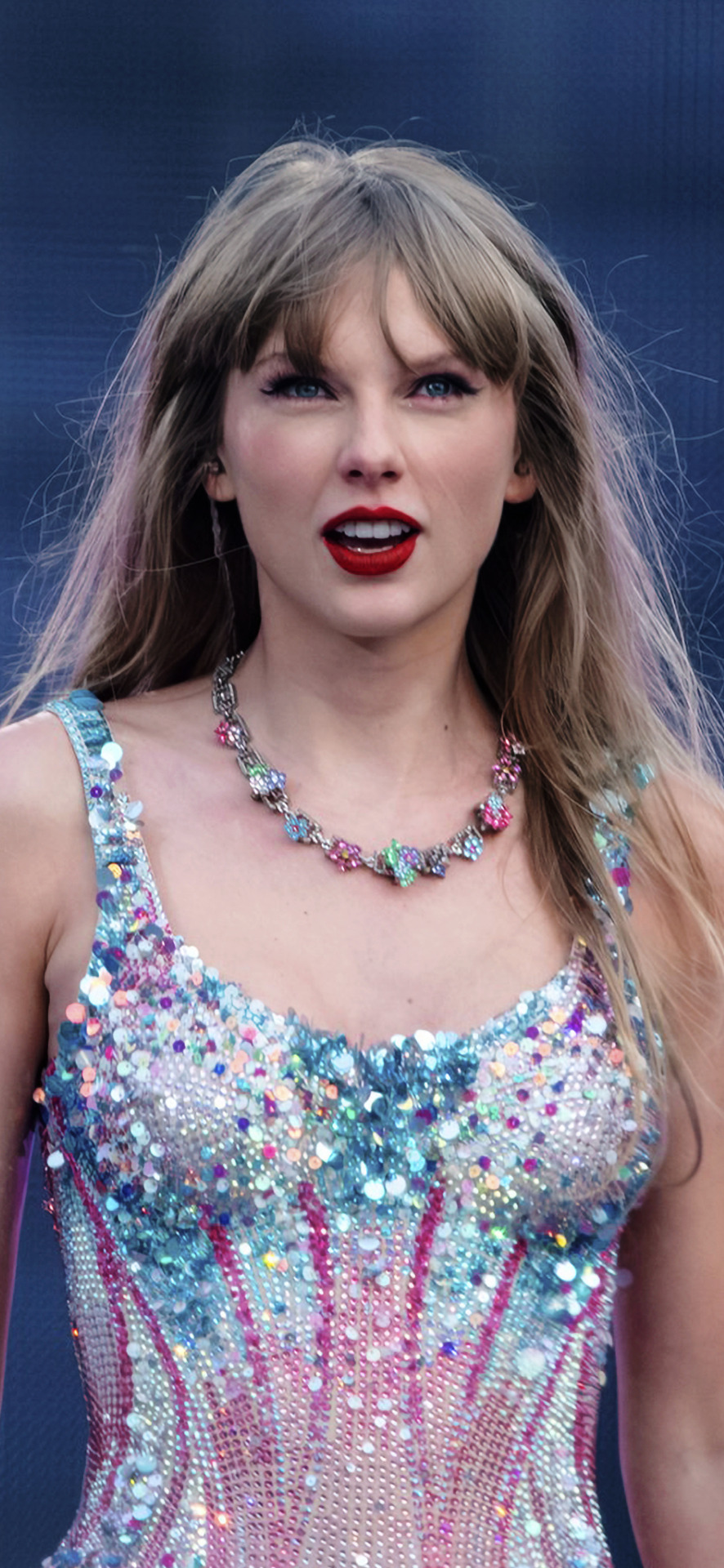

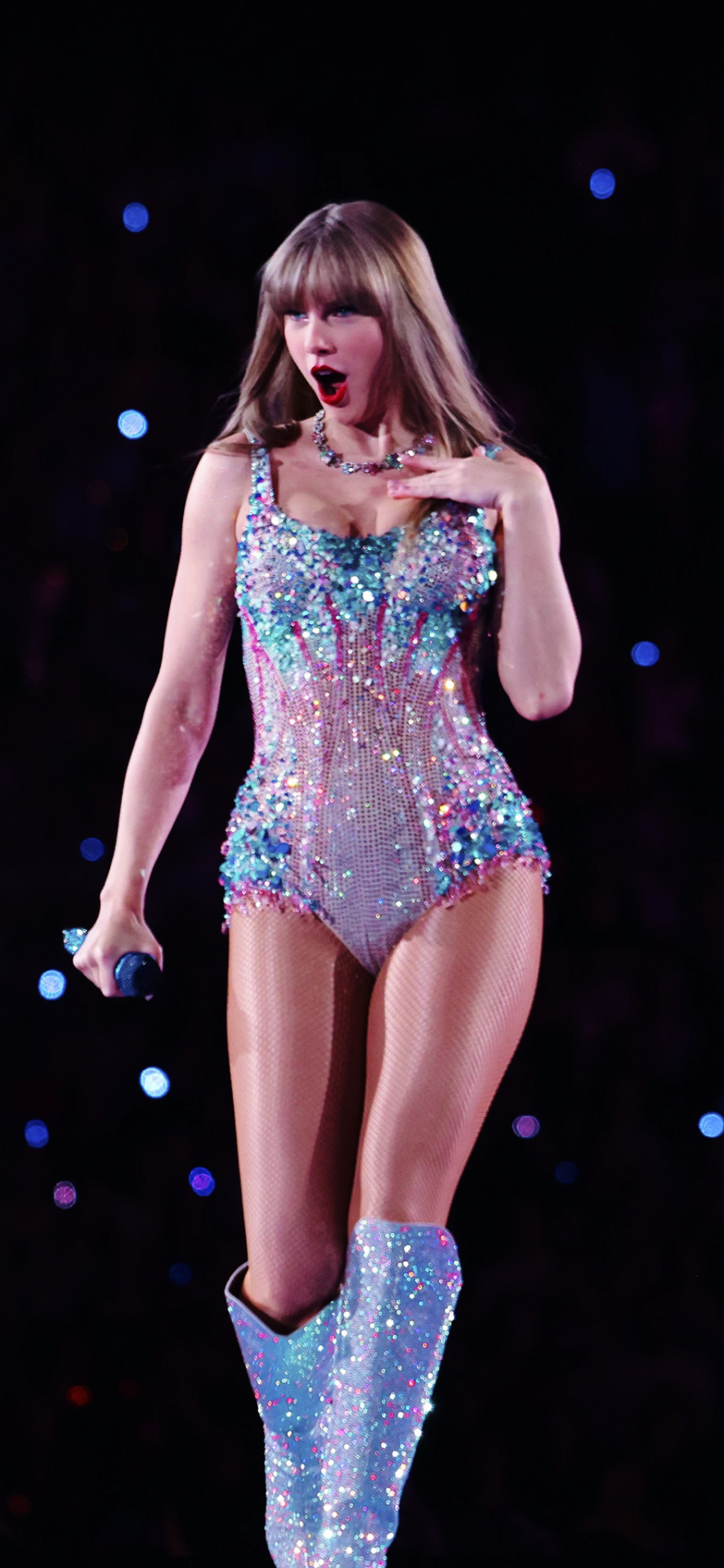

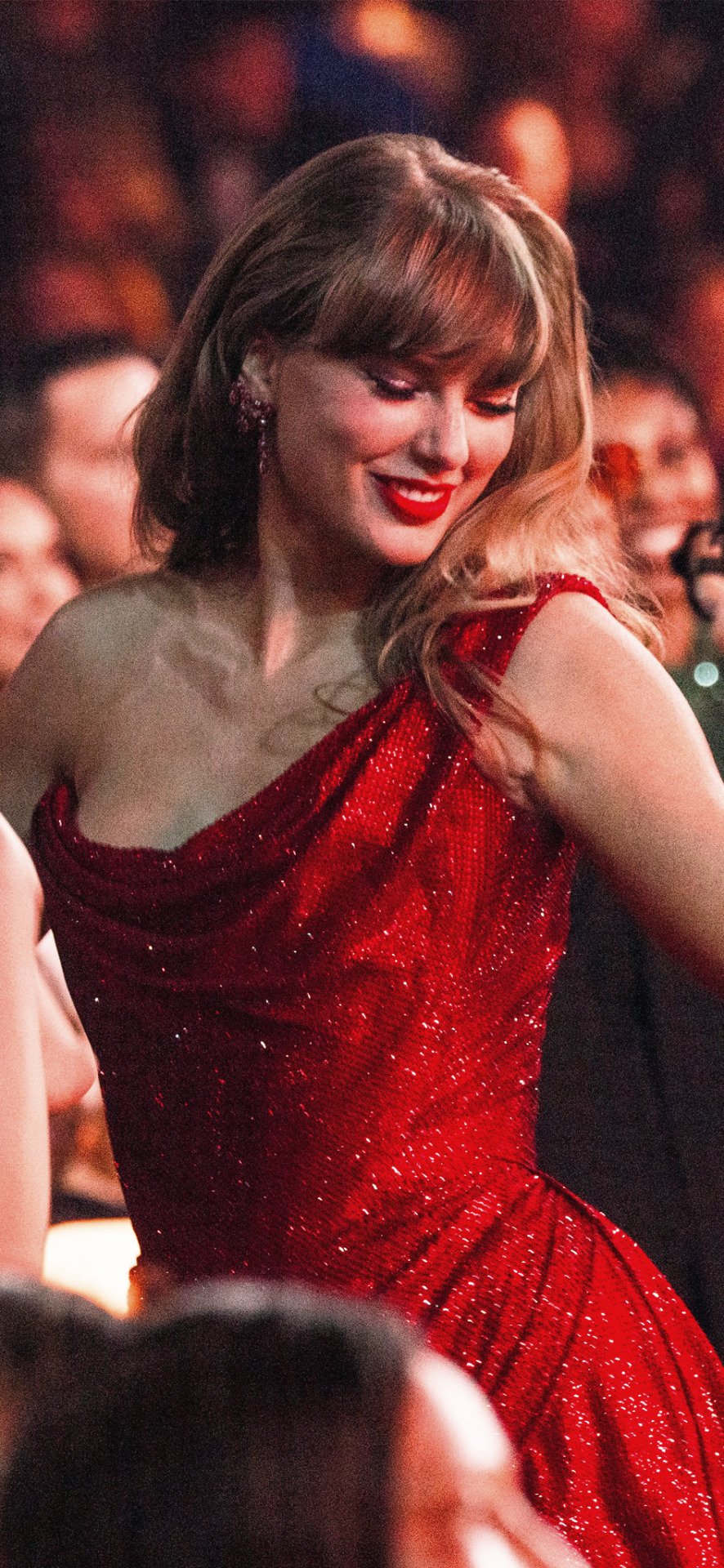

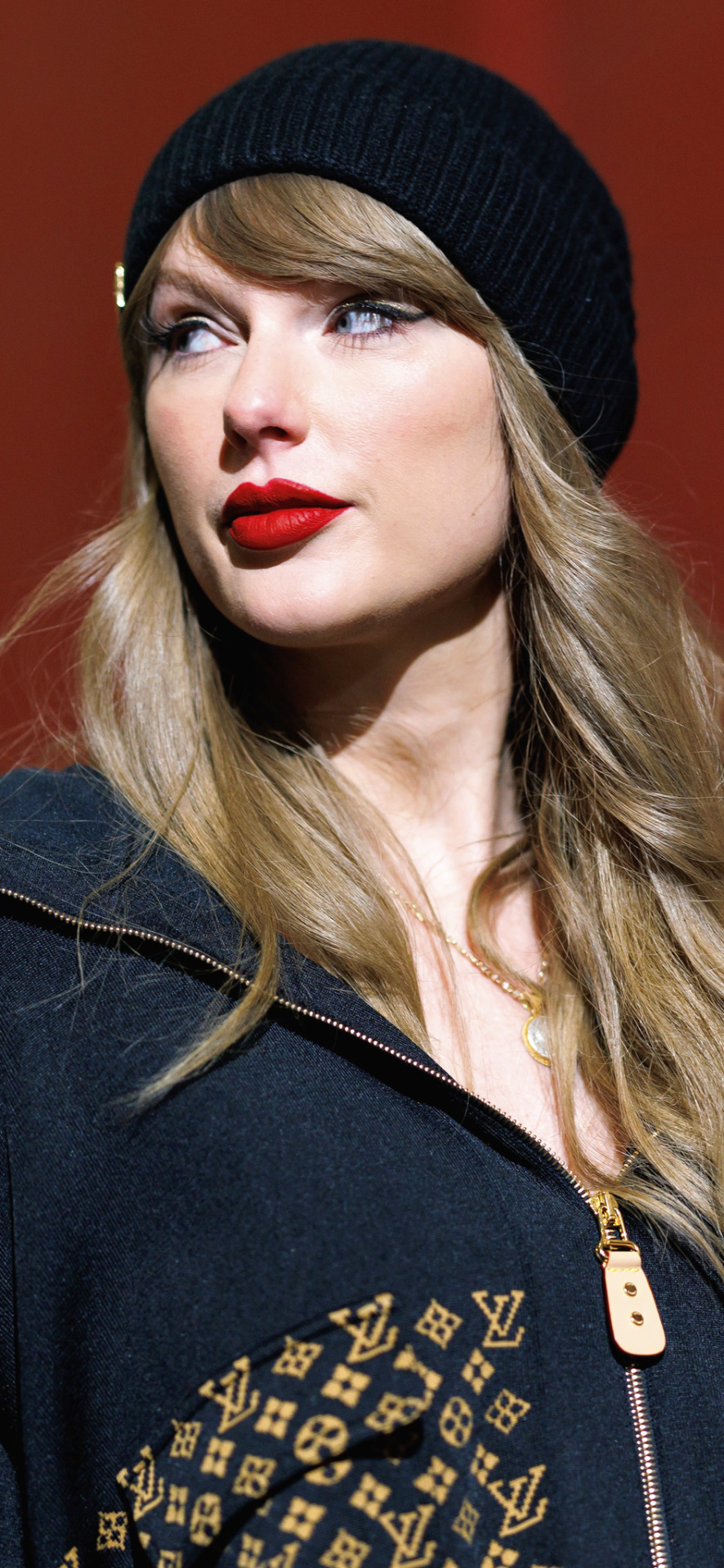
you're beautiful, every little piece, love.
#taylor swift#candy swift#tsedit#tswiftedits#tswiftdaily#taylor swift lockscreens#lockscreen taylor swift#taylor swift wallpapers#taylor swift edits#taylor swift locks#locks taylor swift#taylor swift lockscreen#ttpd era#tstheerastour#the eras tour#t
268 notes
·
View notes
Text
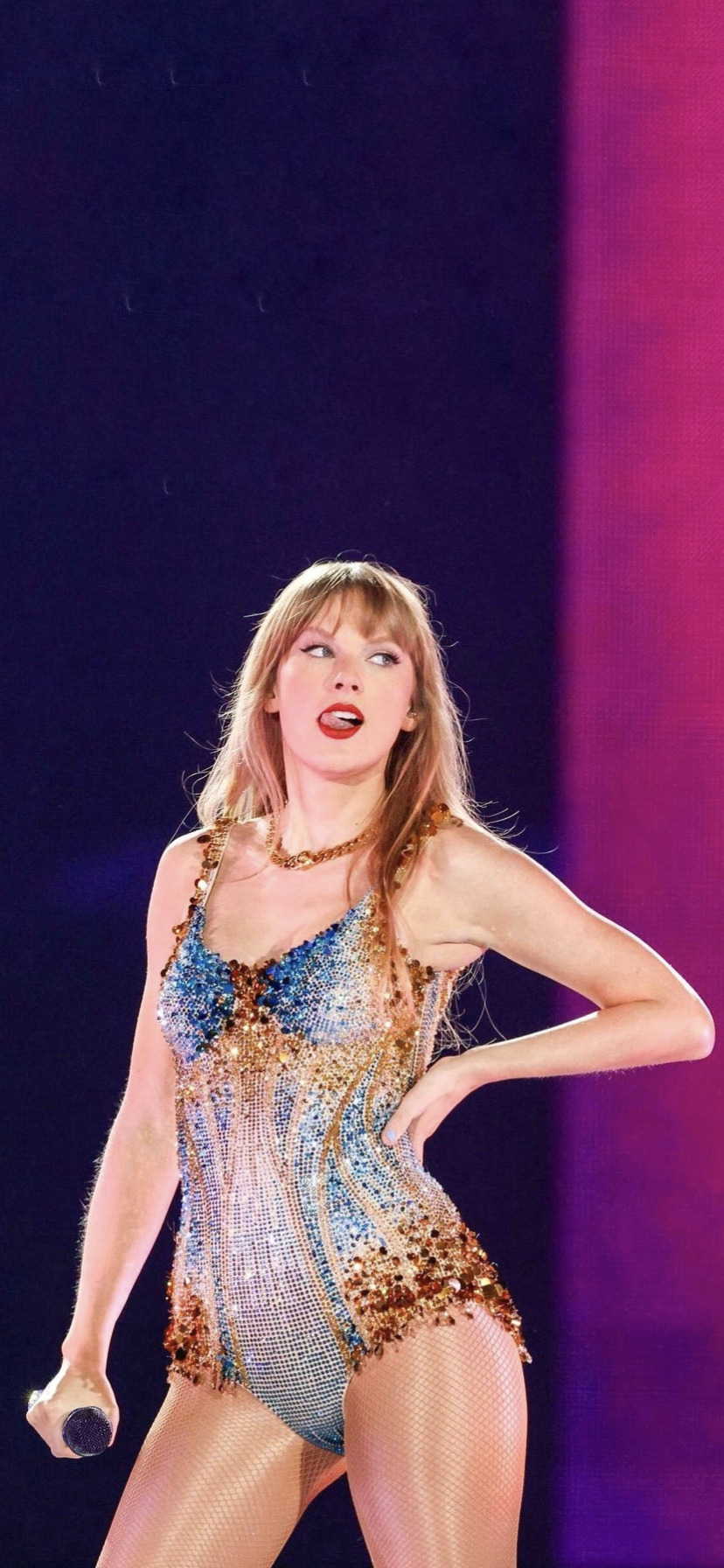
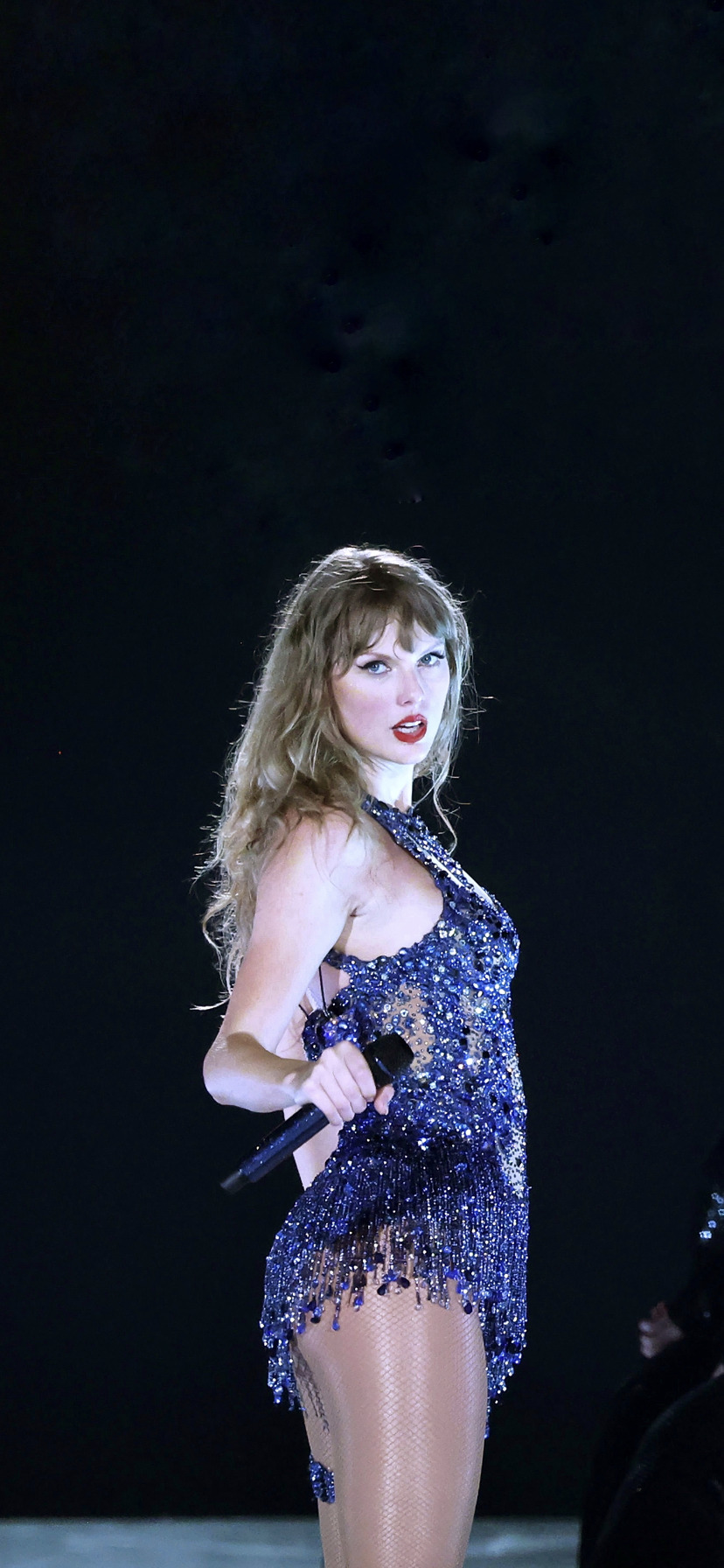
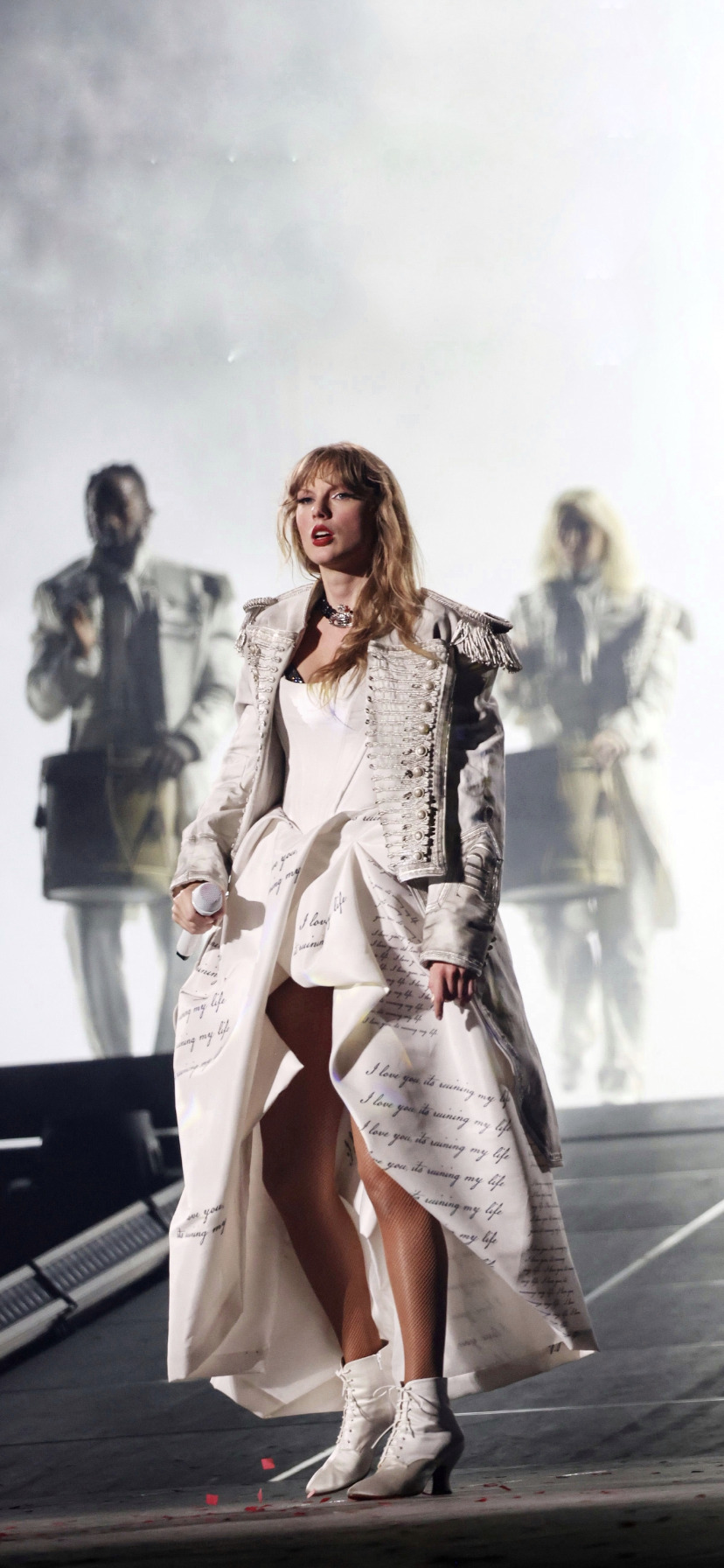
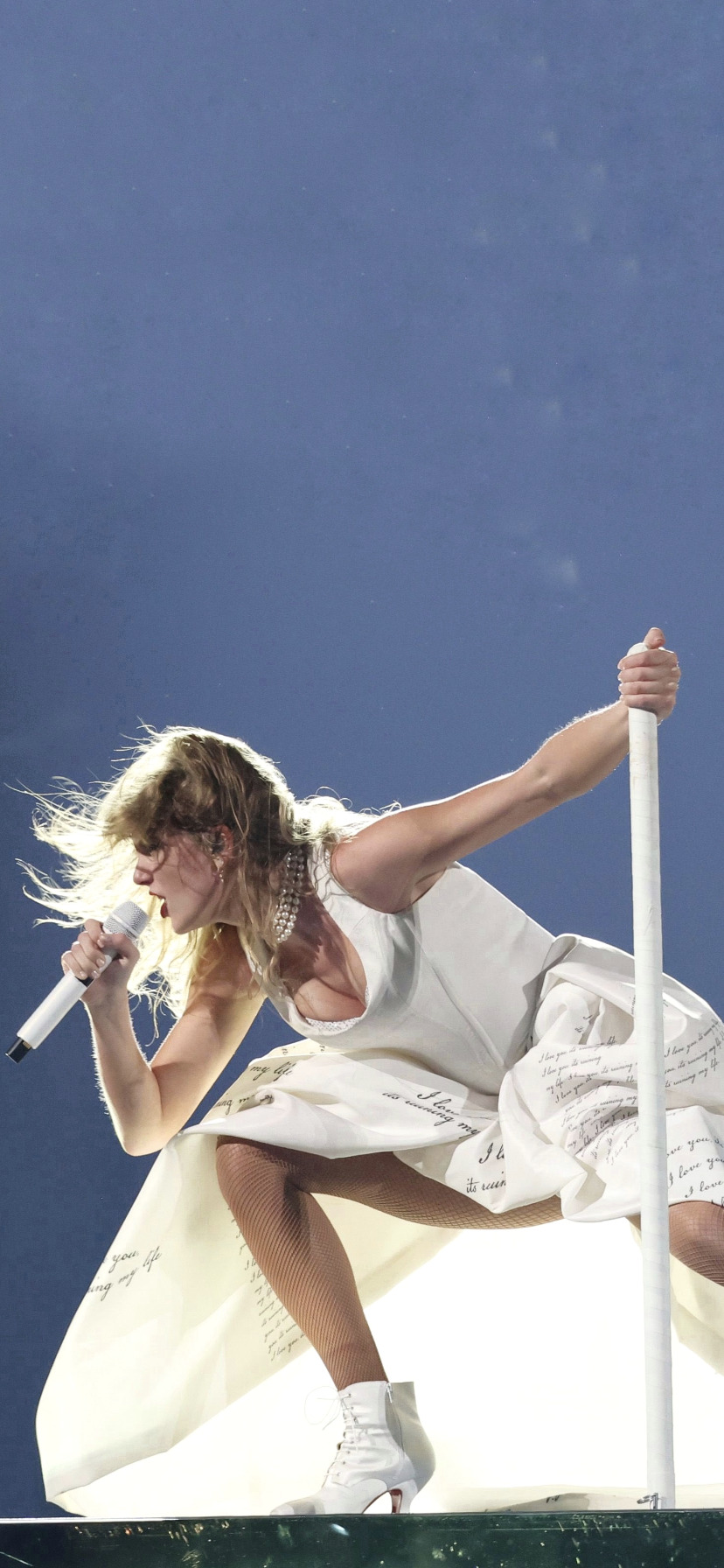
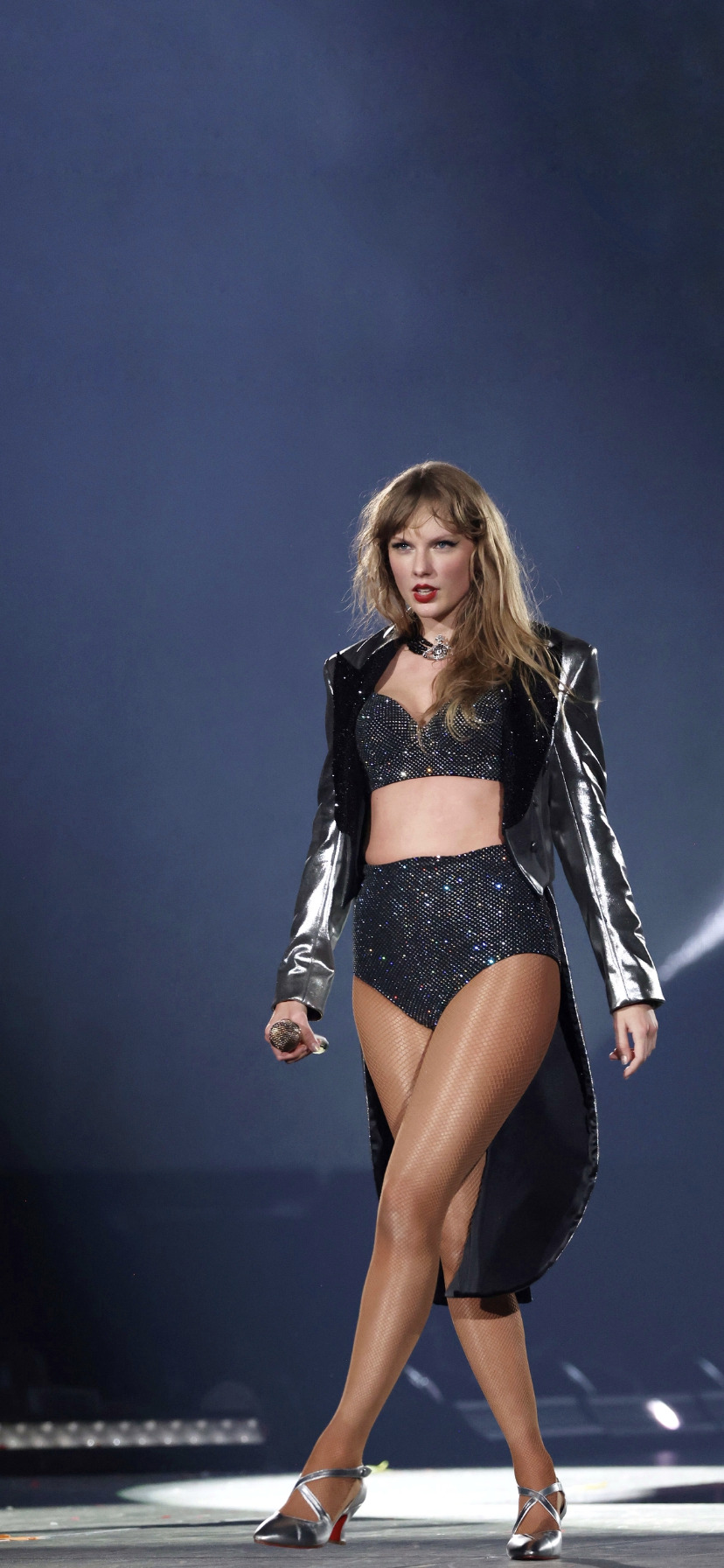

Taylor Swift The Eras Tour Lockscreens
| Like or reblog if you save ♡
#taylor swift lockscreens#taylor swift#taylor swift icons#taylor swift wallpaper#the eras tour#taylornation#moodboard#taylor swift locks#taylor swift pack#taylor swift wallpapers
143 notes
·
View notes
Text

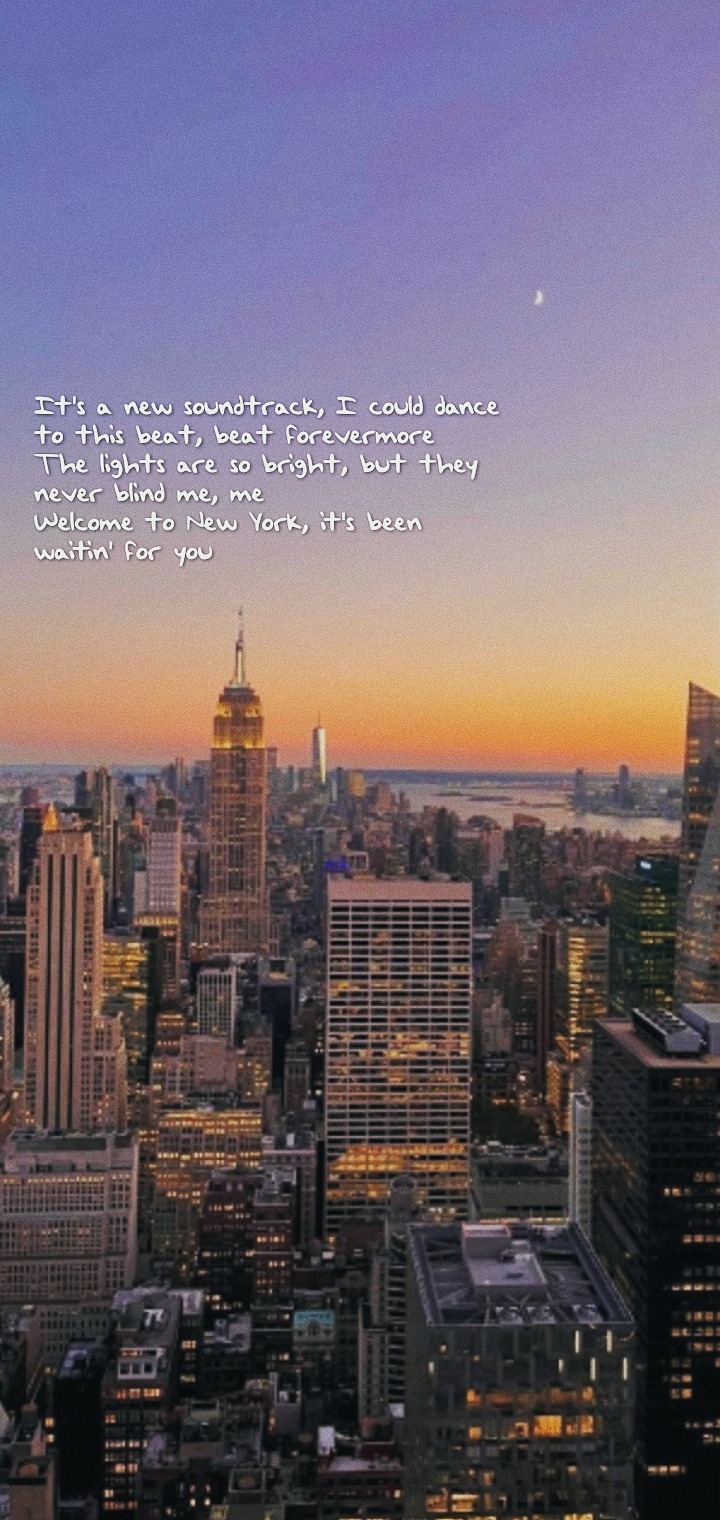
WELCOME TO NEW YORK
taylor swift
in case you save it, please like or reblog✩°。⋆⸜
#taylor swift lockscreens#taylor swift lyrics#welcome to new york#welcome to new york taylors version#1989#1989 tv#1989 taylors version#1989 era#taylor swift#taylor swift headers#taylor swift wallpapers#taylor swift locks#tswiftedit#tscreators#taylor 1989#taylors version#taylor swift edit#wallpaper#lyric lockscreens#the eras tour
268 notes
·
View notes
Text
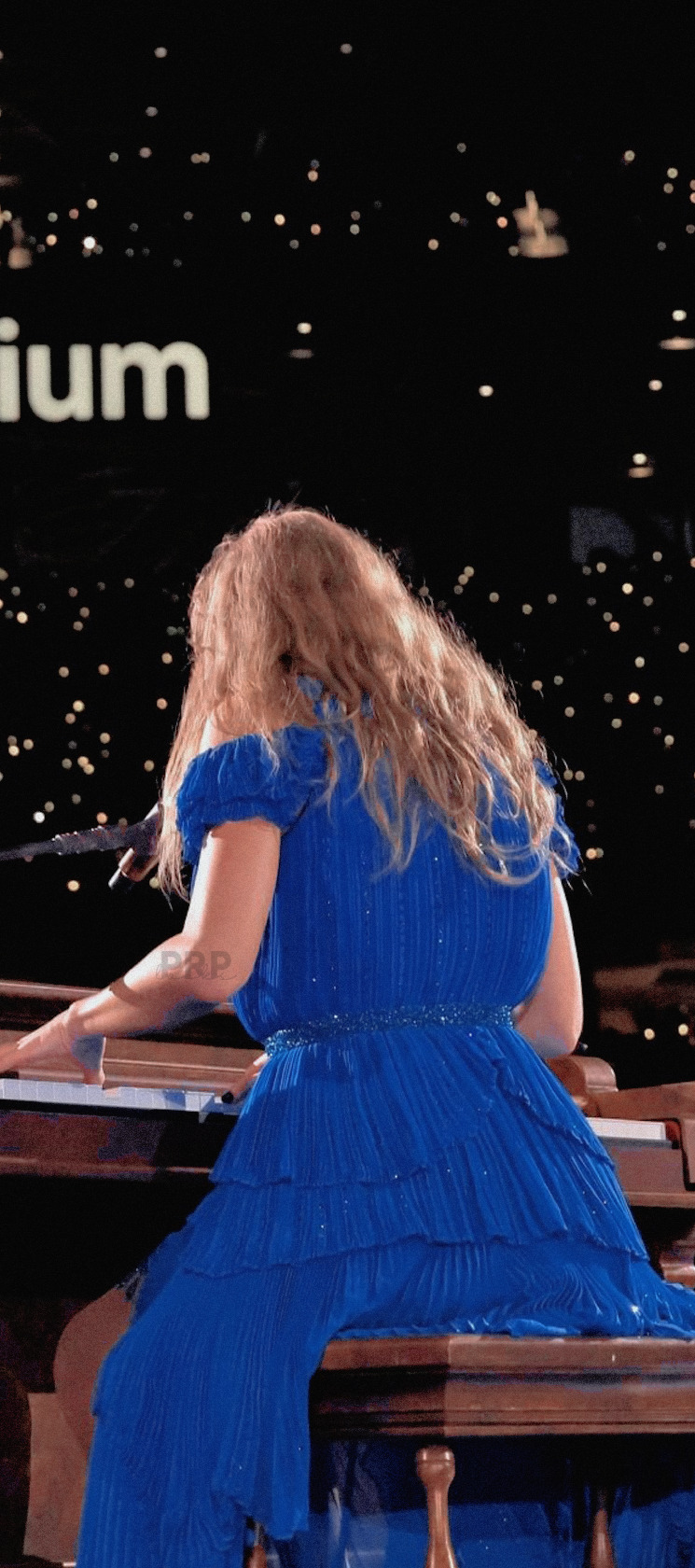
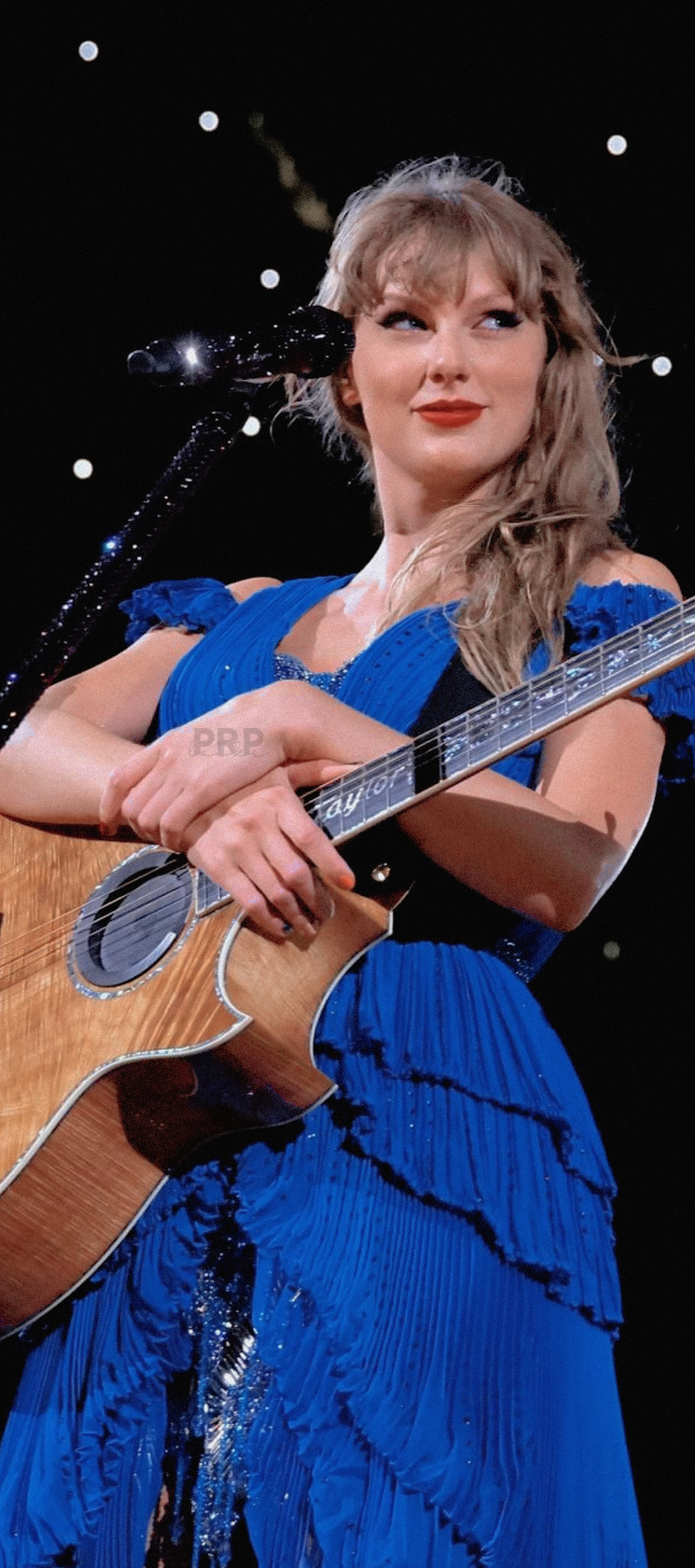
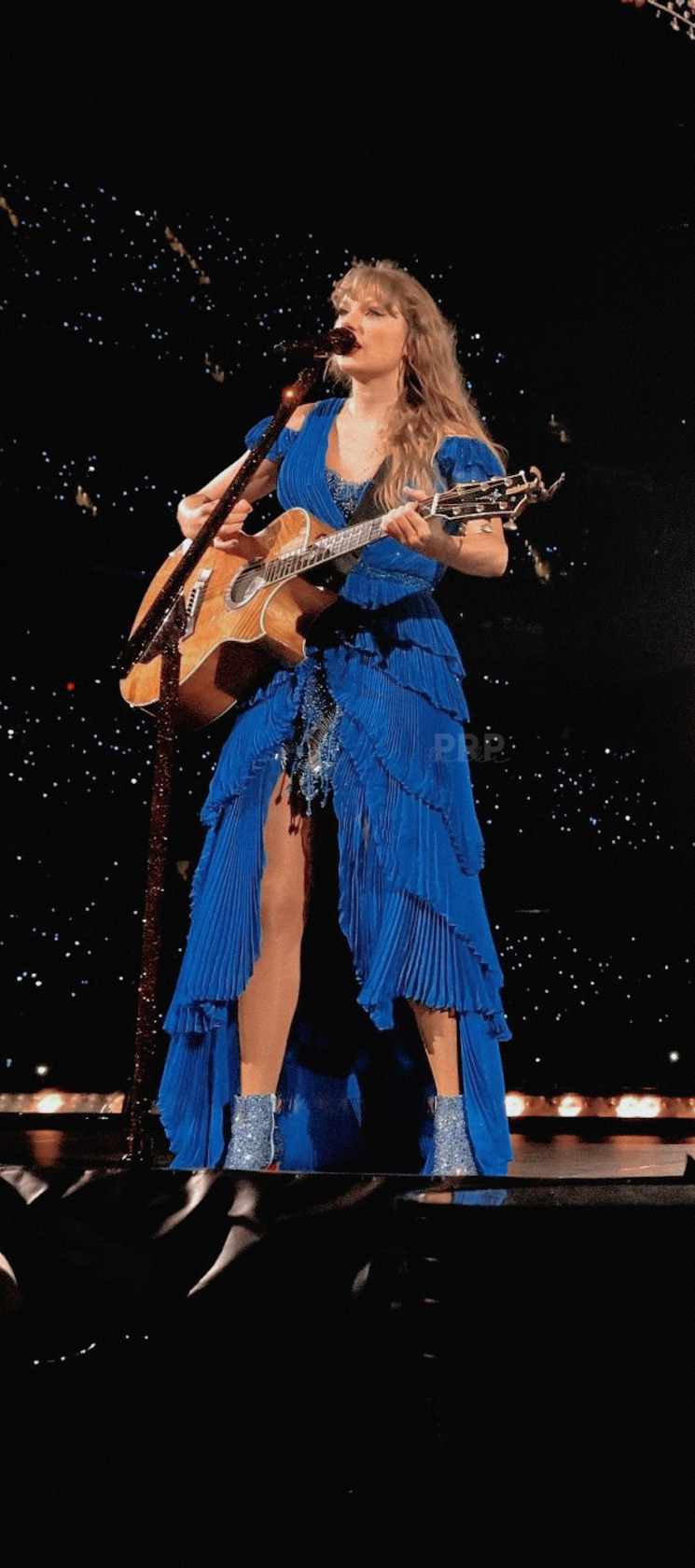
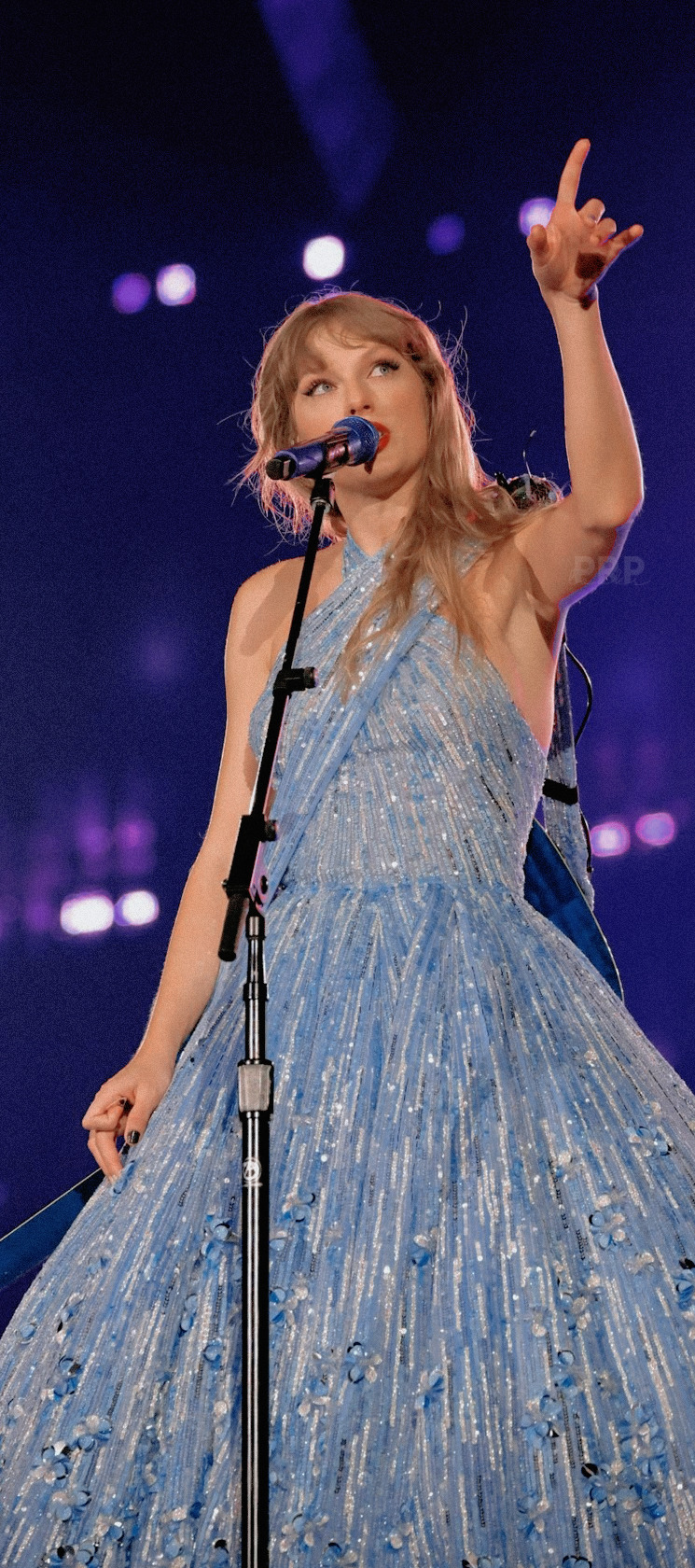

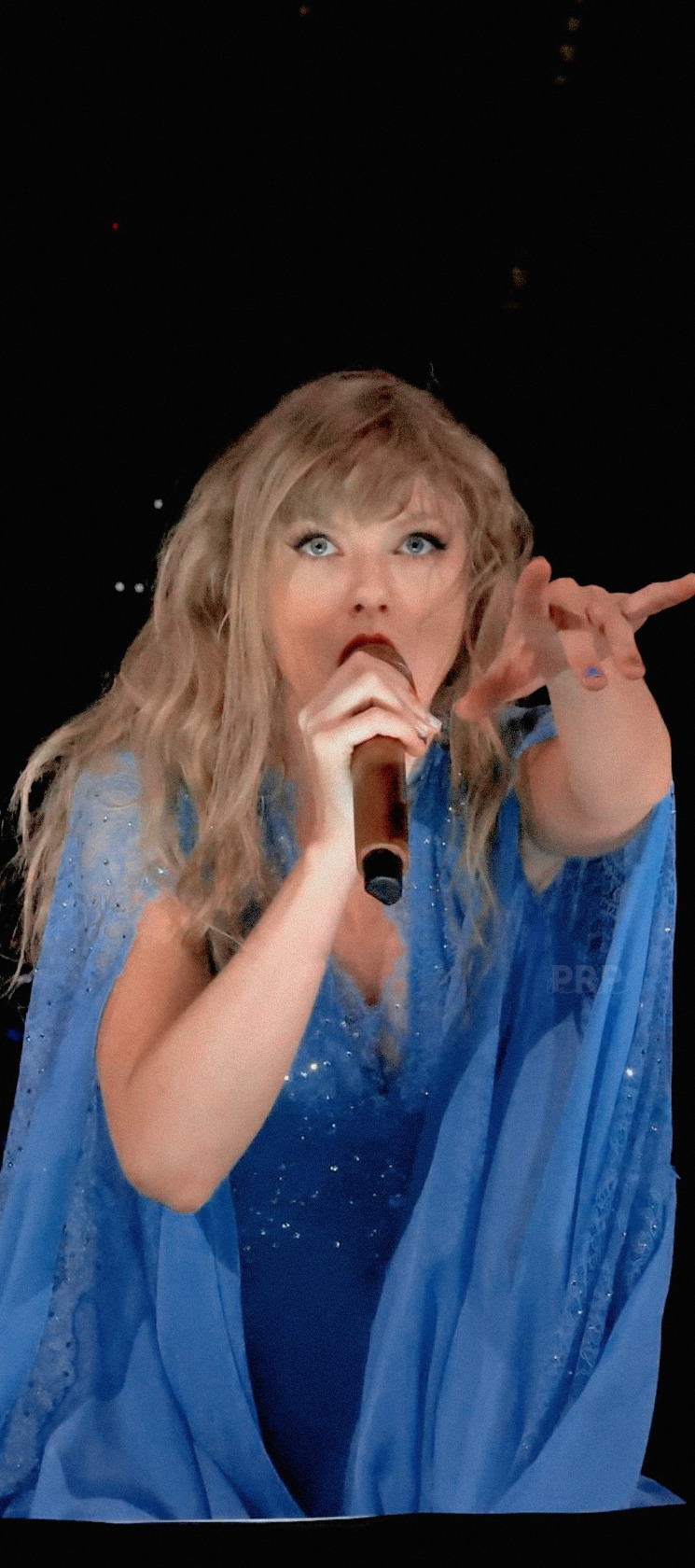
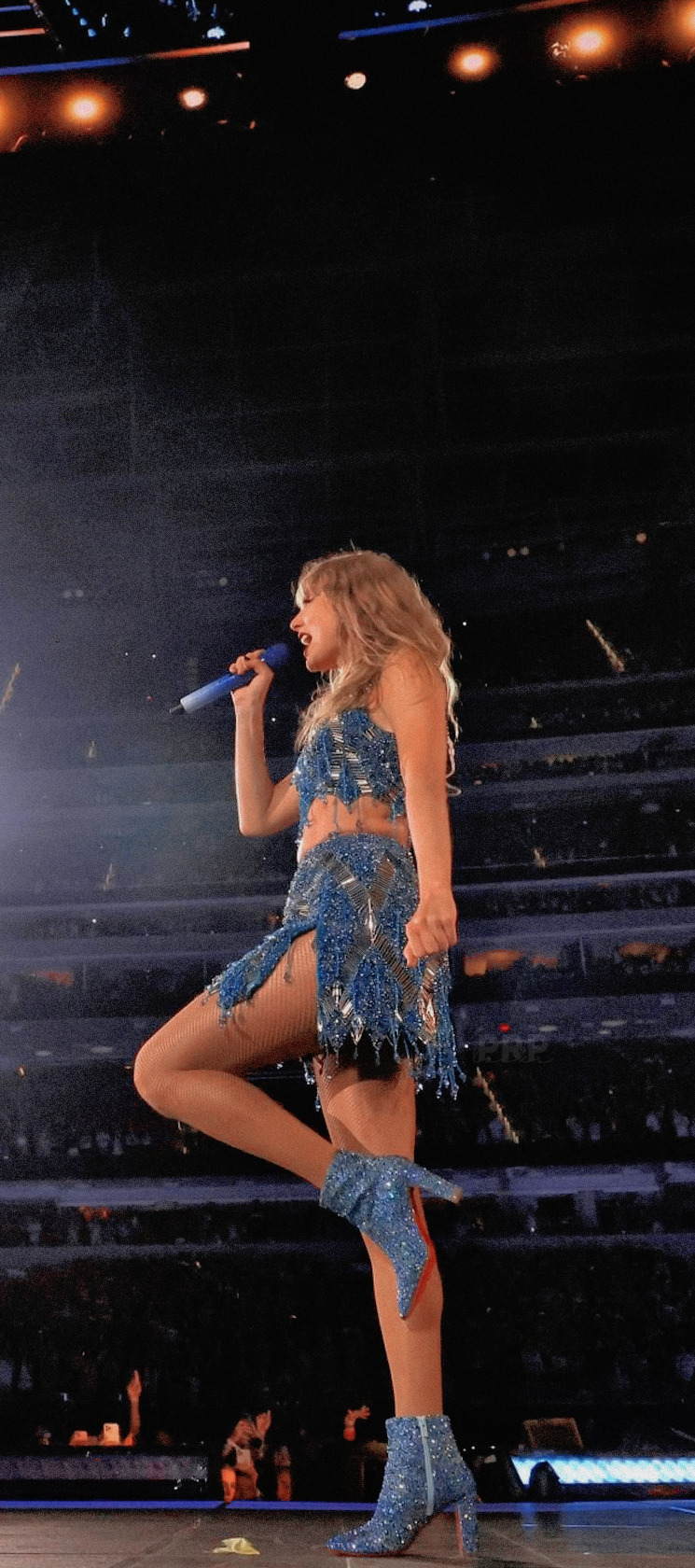
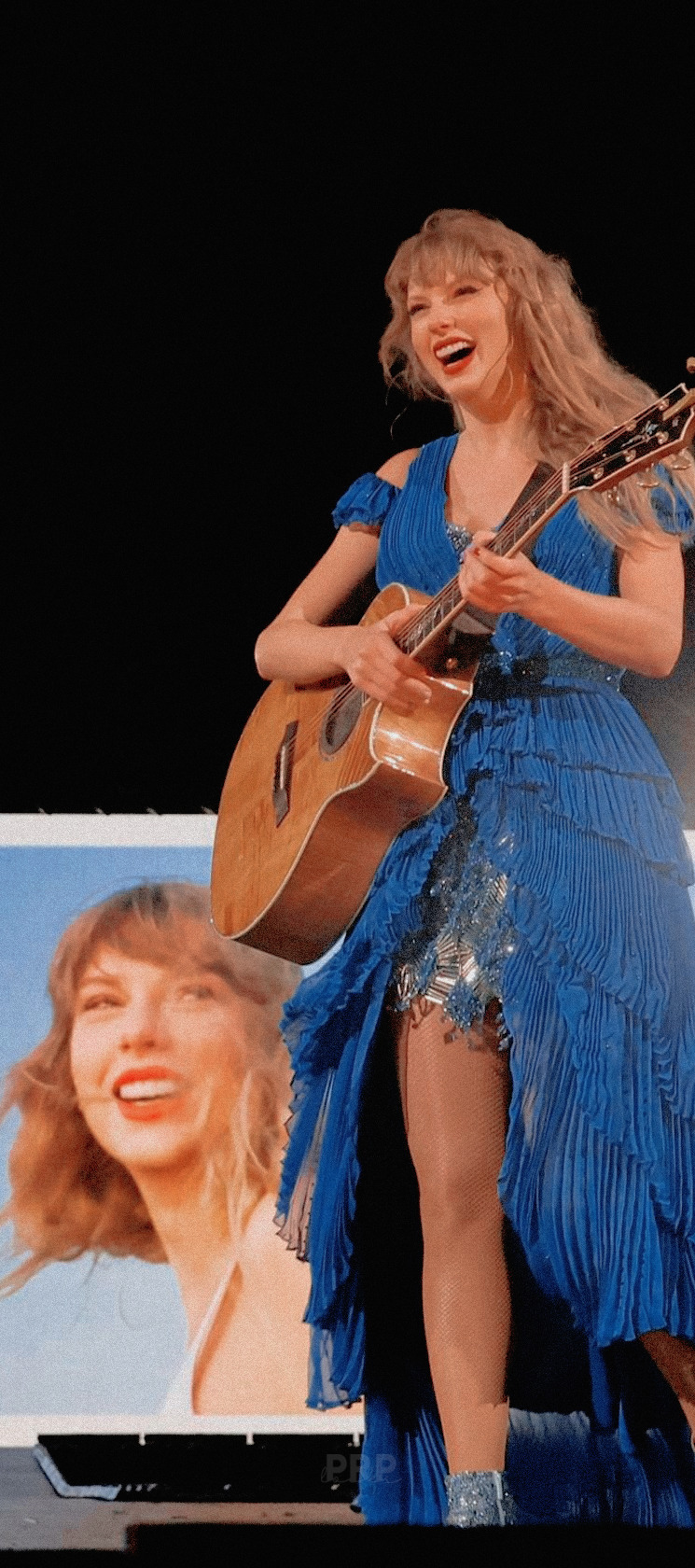
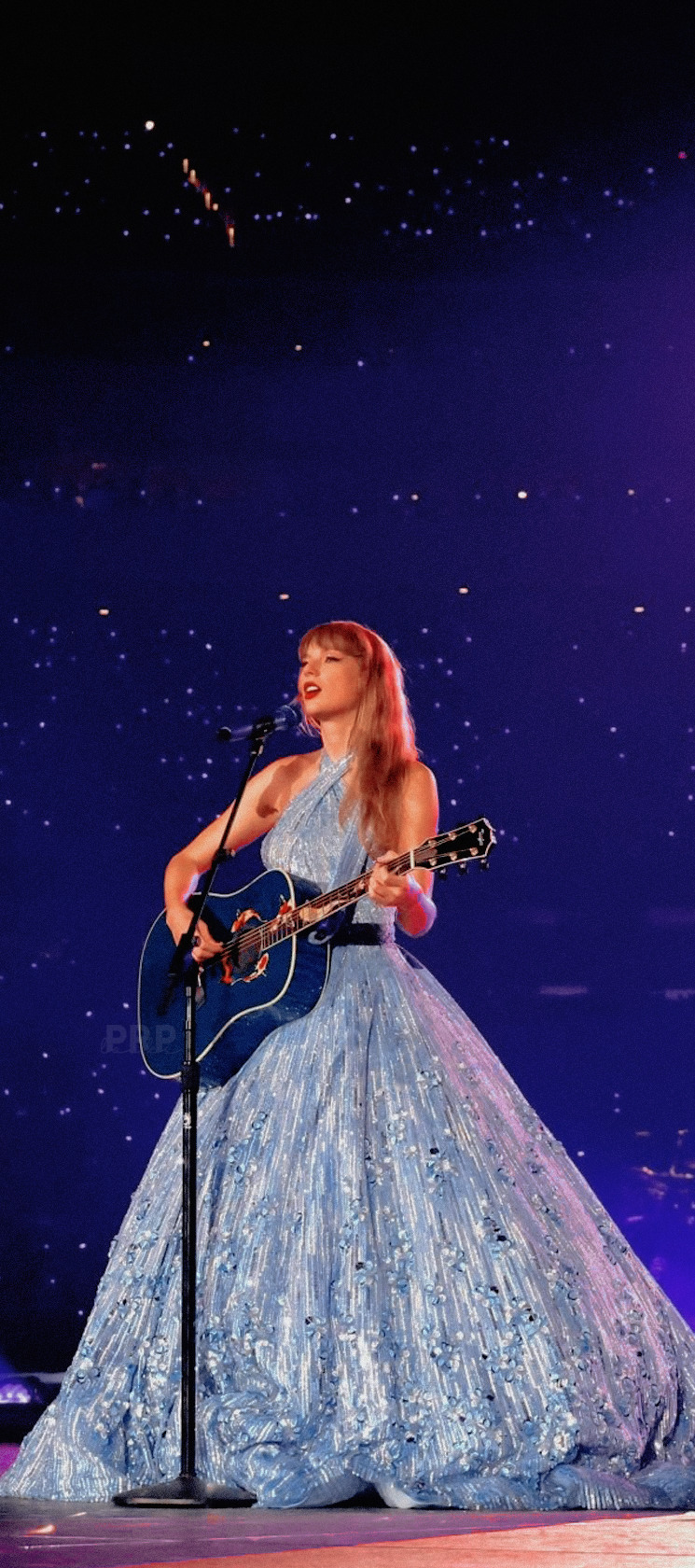
♡☆♡ taylor swift wallpaper
reblog if you save ▪︎
-----------------------------------------------------------
#wallpapers#taylor swift#taylor swift the eras tour#the eras tour#taylor swift locks#taylor swift lockscreen#taylor swift lockscreens#taylor swift wallpaper#taylor swift wallpapers
205 notes
·
View notes
Text

Wallpaper by KubaSwift on X
1K notes
·
View notes
Text
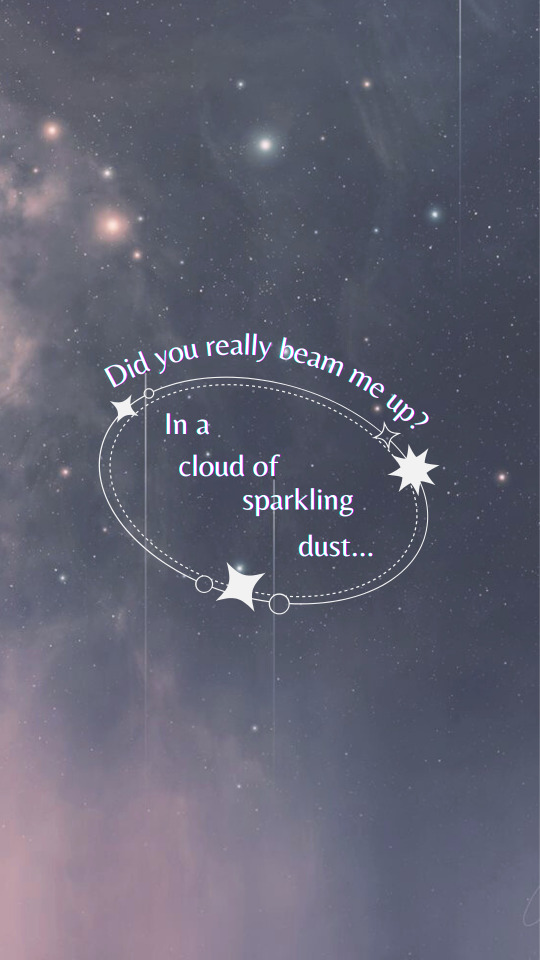
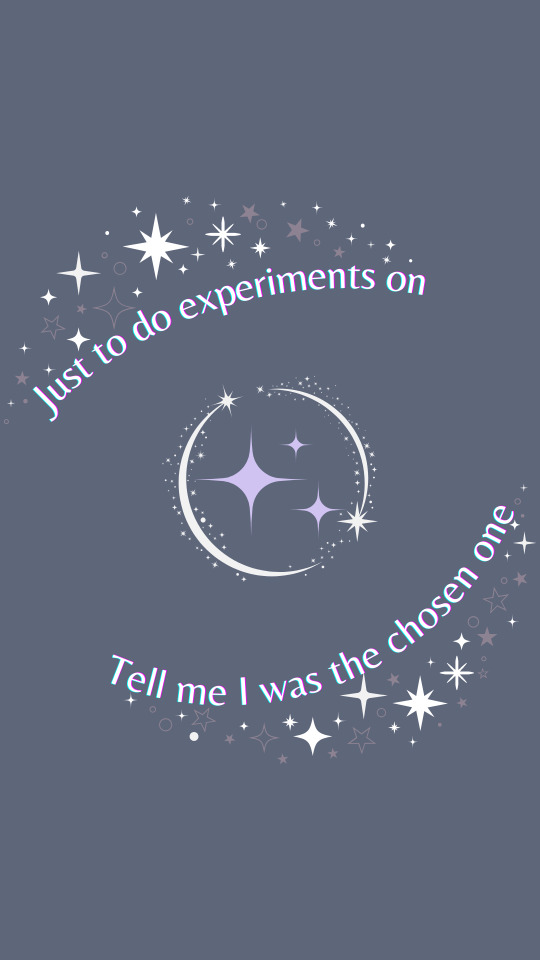
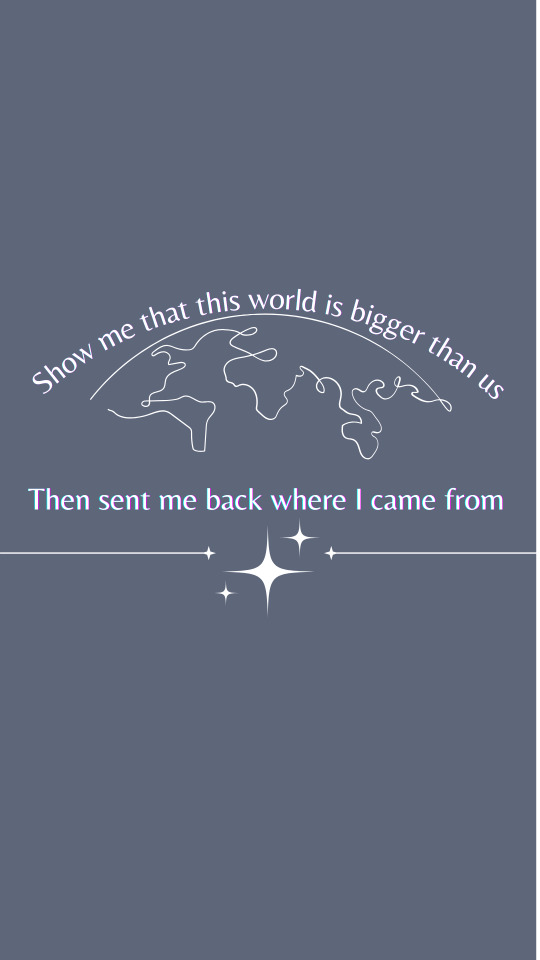
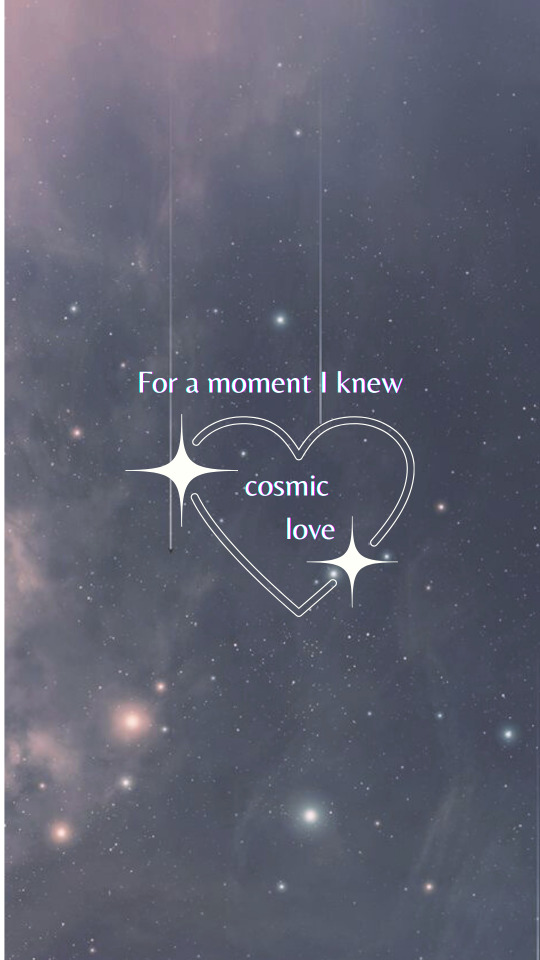
Down Bad 💪
#taylorswift#swifties#taylor swift#tswiftedits#tswiftedit#my edit#taylor swift lyrics#iphone lock screen#lock screen#taylor swift ttpd#ttpd#the tortured poets department#down bad#phone wallpaper#wallpaper
547 notes
·
View notes
Text
˓𓄹 ࣪˖🌄 ๋࣭ cruel summer 𖥦 ˑ ֗ ִ
<<taylor swift x bluelock>>
Prompt masterlist ! : ᶻ �� 🍙 ⋅
Michael Kaiser x F! Reader
HC's + MINIFIC





Kaiser was just supposed to be a summer fling ,it wasn’t supposed to mean anything. untill one day at 2 a.m., he whispered “I love you.”
It was reckless, and unforgettable.
totally a cruel summer you’d never regret.
𖦹✦⁺◟⁎⁺ based of taylor swift's = "Cruel summer"

contrary to popular beliefs, i believe when kaiser finally settles down, i feel like he would totally be a bit less snotty and mean . but still expect him to be egotistical asf 🙄🙄
The type of guy who would keep his relationship a secret untill he knows you can takr the pressure! he just wants you to be comfortable:((
i feel like hes the type to only peck you on the lips, based of his upbringing and his personality i think he totally is insecure about how he expresses his love
He LOVES the thrill of stealing a kiss when no one’s looking, interlocked fingers behind a bench, or giving you a spesific look after scoring a goal.
with the way his training is, expect him sneaking into your room after curfew, still in his training gear
if he gets jealous? he would get quietly possessive snake an arm around your waist, lips by your ear, a soft “hey , you should look at me instead.”
michaels love language is GIFT GIVING and WORDS OF AFFIRMATION (he wont admit it lol)

𖦹✦⁺◟⁎⁺ It all started during the summer tournament the one that had the whole world watching.
You weren’t supposed to get involved with anyone on the team. and DEFINITELY not him.
But somehow..
He kissed you on the first night like he already knew you’d let him. Back pressed against the cold hotel elevator wall, his breath tasted like heat and pride. all he did was grin when you didn’t stop him.
“This’ll ruin us,” you had whispered to him.
“I already ruin everything, whats one more thing to ruin gonna do?” he said. and that was that.
𖦹✦⁺◟⁎⁺ In public, you everything was normal. He barely looked your way,just enough to make your pulse spike high when he did.
One night, after scoring the winning goal,during celebrations , he pulled you into a stairwell before the cameras found him.
“Hey, You gonna congratulate me?” he asked, voice low, teasing.
“You want praise?”
He leaned in, smirking. “Nah, i'd settle for you.”
𖦹✦⁺◟⁎⁺ It wasn’t supposed to last. He was all ego and you werent someone who was up to putting up with that . But somewhere between stolen glances and unspoken things, it started to feel like more.
One night, you found him alone in the hotel gym at 2 a.m, just sitting there. no music, no ball. Just pure silence.
the silence was suffocating.
“You okay?” you asked him gently.
He didn’t even look at you.he just spoke
“I can’t lose,” he said. “Not just the game. Everything.” head now resting in the palm of his hands, visibly vulnerable.
You crossed the room, and made your way to him. knelt in front of him, you took his hand from his head, gave it a light squeeze and said. “You’re allowed to want something more than winning, misha"
His eyes met yours. and for once, the gold in them didn’t gleam with arrogance.
“you're the something,”
𖦹✦⁺◟⁎⁺ he never said I love you , not directly.
Instead, he kissed you like he tried proving it. he Held your hand like it was a secret he’d kill to protect. Told you to “stay” like it was the only word he believed in.
By the end of summer, you were both sunburned and exhausted and in too deep.
One night, lying beside him in a too-small bed in a too-fancy suite, he murmured to you
“I love you.”
It was almost too quiet to hear.
You stared at the ceiling, heart pumping, eyes too tired to react
Then he added, like it physically hurt to say it out loud, “Ain’t that the worst thing you ever heard?”
You just turned to him, scaning his face for sincerity
you saw his smile , a real, small, tired smile.
for once, you saw michael.
Not Kaiser the emperor ,
Just Michael.
・˳ . ⋆ .˳⁺⁎˚ ⋆・˳ . ⋆ .˳⁺⁎˚ ⋆・˳ . ⋆ ・˳ . ⋆ .˳⁺⁎˚ ⋆・˳ . ⋆ .˳⁺⁎˚
honestly after i make this taylor swift masterlist, i will probably make a self-indulgent reverse-harem !manager reader x bluelock boys . LIKE CLASSIC HAIKYUU SMAU STYLE 😭😭😭 , so uh stay tuned fir that ig?? still debating if i should make it text styled or fic styled lol
-islynn , 2025
・˳ . ⋆ .˳⁺⁎˚ ⋆・˳ . ⋆ .˳⁺⁎˚ ⋆・˳ . ⋆ ・˳ . ⋆ .˳⁺⁎˚ ⋆・˳ . ⋆ .˳⁺⁎˚
#anime#fanfic#x reader#bllk kaiser#kaiser x reader#blue lock kaiser#michael kaiser#kaiser x you#kaiser x y/n#bllk x you#bllk x reader#bllk#bllk fanfic#taylor swift#fluff#headcanon#mini fics
60 notes
·
View notes
Text
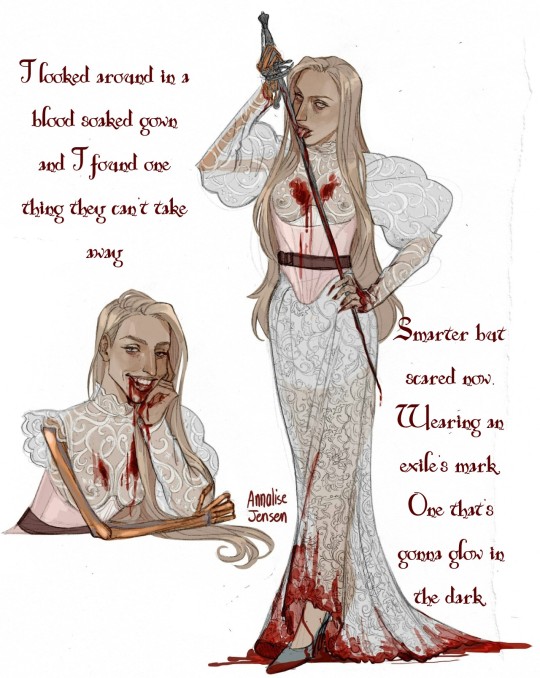
You thought this was a TLT/Mountain Goats crossover account but behold the Unholy Trinity of TLT/Mountain Goats/Taylor Swift.
Art credit @may12324
#the mountain goats#the locked tomb#cw blood#taylor swift#midnights#you're on your own kid#jenny from thebes#cw: ianthe tridentarius
320 notes
·
View notes
Text
Hear me out someone please make an edit of Nagi in chapter 300 and this is me trying by Taylor Swift.
"They told me all of my cages were mental
So I got wasted like all my potential
...
I was so ahead of the curve, the curve became a sphere
Fell behind all my classmates, and I ended up here"
Diabolical.
"And it's hard to be at a party when I feel like an open wound
It's hard to be anywhere these days when all I want is you
You're a flashback in a film reel on the one screen in my town"
*Insert all the flashbacks panel* I'm weeping dhsishsisjshshj

#blue lock#blue lock edit#bllk#bllk spoilers#bllk seishiro#bllk nagi#nagi seishiro#seishiro nagi#blue lock nagi#blue lock spoilers#nagireo#blue lock chapter 300#bllk edit#this is me trying#taylor swift#folklore#someone please do this
32 notes
·
View notes
Text

OMG TARA’S A SWIFTIE!!!
#heartstopper#kit connor#charlie spring#joe locke#nick nelson#alice oseman#bisexuality#lgbtq#gay#lesbian#bisexual#taylor swift#swiftie#folklore
936 notes
·
View notes
Note
I’m back with comments that don’t make sense but. Next time Billford fights I have a burning need for Mabel to introduce Bill to fun pop breakup music. Get that triangle singing Taylor Swift and Sabrina Carpenter
THIS. THIS. FUCKING ACCURATE KEEP COOKING GORDON RAMSEY.
i think bill would be big on “get him back” by olivia rodrigo. he’d scream that shit from the roof of the mystery shack when hes going thru it w ford. the bridge is deeply applicable to him, but mabel with all her media literacy bites her tongue in regards to the fact that the verses are most DEFINITELY more applicable to ford.
mabel would be very up-to-date on all the pop singer breakups lore. she knows who broke up with who and all the reasons, with her own analytical nuanced takes on why specific celeb couples didn’t work out. it’s her fnaf lore, if you will. bill rolls his eyes at this, as he believes that artists these days just aren’t as tortured as they used to be. mabel chastises his (half joking) suggestion to rectify that.
#if taylor swift can drop top 10s after her breakup w joe alwyn (or whoever the fuck)#surely ford has some absolute bangers locked and loaded#i just know that author motherfucker has some angsty poetry in the margins of his journals#put a generic chord progression and a bass line behind that shit and youve got bars#gravity falls#bill cipher#ford pines#bill x ford#billford#handyman bill au#stanford pines#text#mabel pines
45 notes
·
View notes
Text
they better come out with an absolute BANGER for sunrise on the reaping. safe and sound? BANGER!! can’t catch me now? BANGER!! i want a song that gets stuck in my head for AT LEAST 3 days i swear i want to be sitting at school “but i’m in the treessss i’m in the breeezeeee my footsteps on the groundddd” i need it. i also wanna know whos writing it righttt now. i’ve seen people as for hozier sure.taylor again? sure. olivia again? absolutely. olivia and taylor colab? bring it on. i just need to be able to sing it in the shower for a week and a half
#thg sotr#thg#sunrise on the reaping#sunrise on the reaping movie#olivia rodrigo#taylor swift#hozier#singer songwriter#BANGERRRRR#the hunger games#quarter quell#safe and sound#cant catch me now#songs#playlist worthy#suzanne lock in#i’m so excited
28 notes
·
View notes
Text
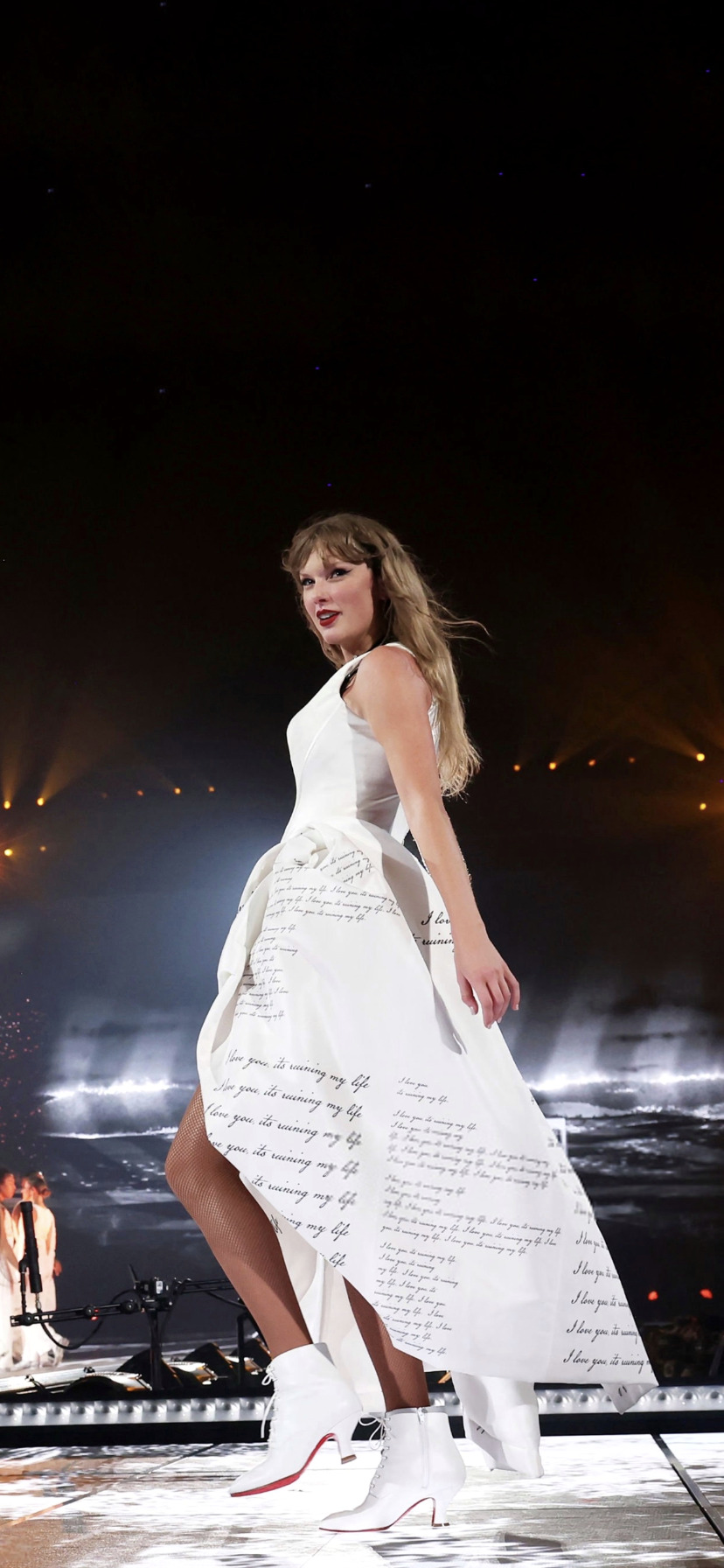
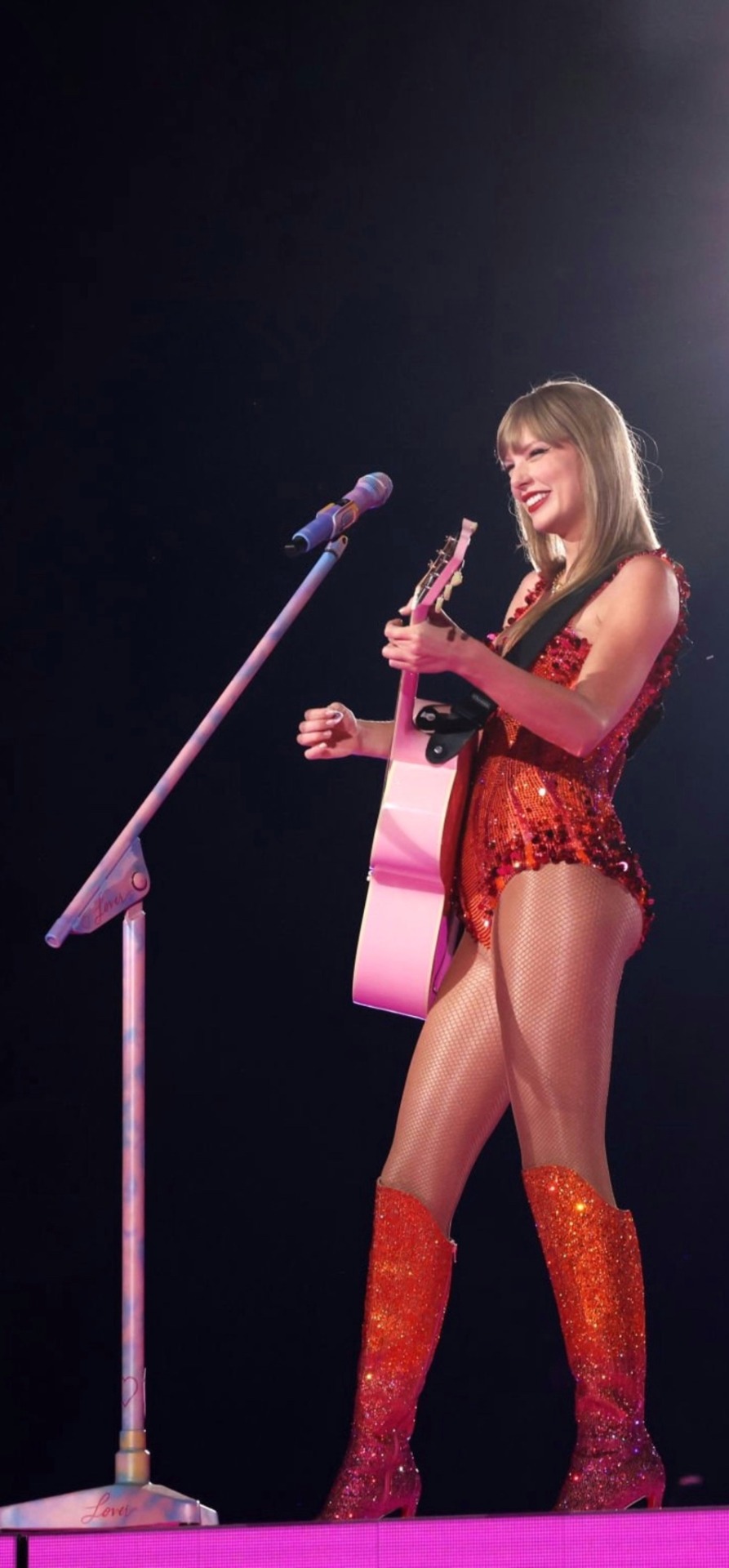
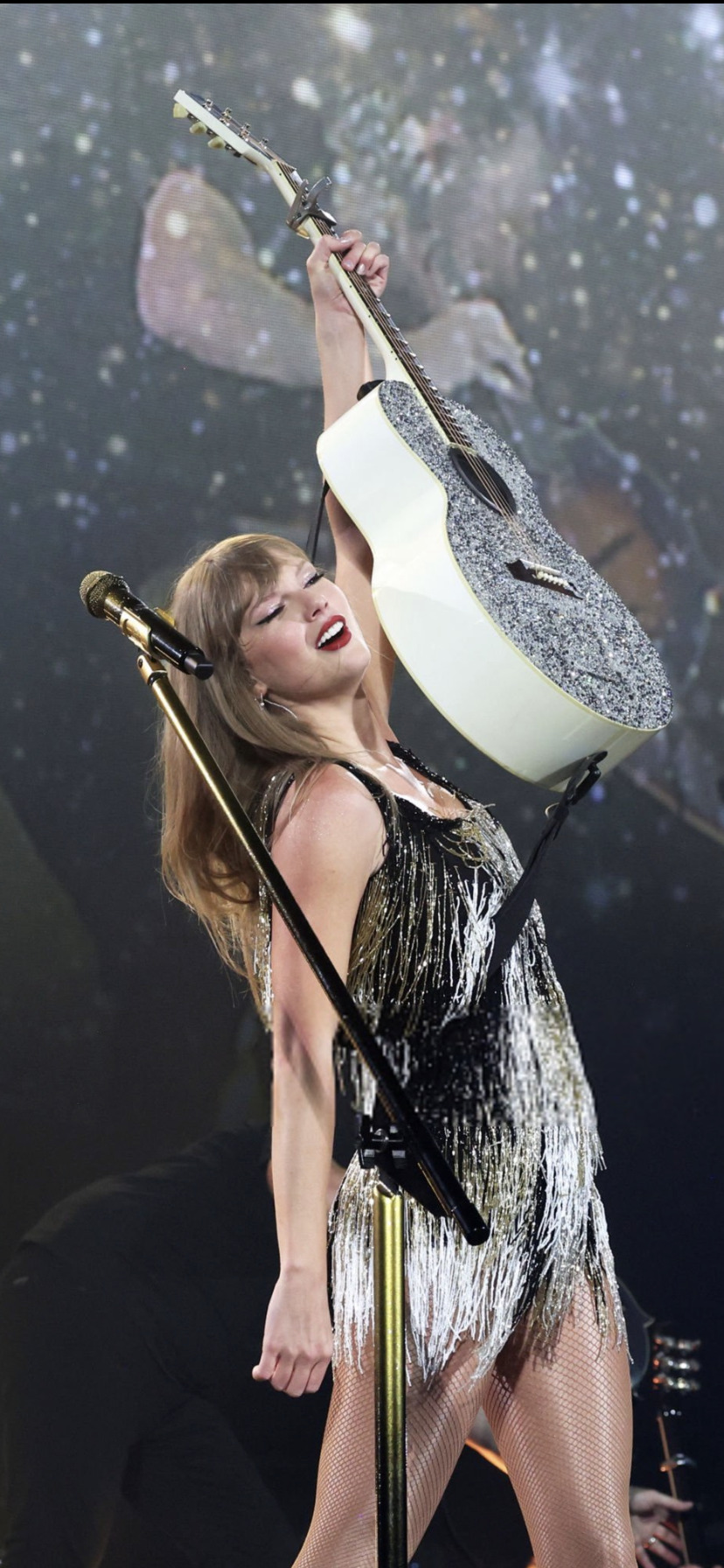
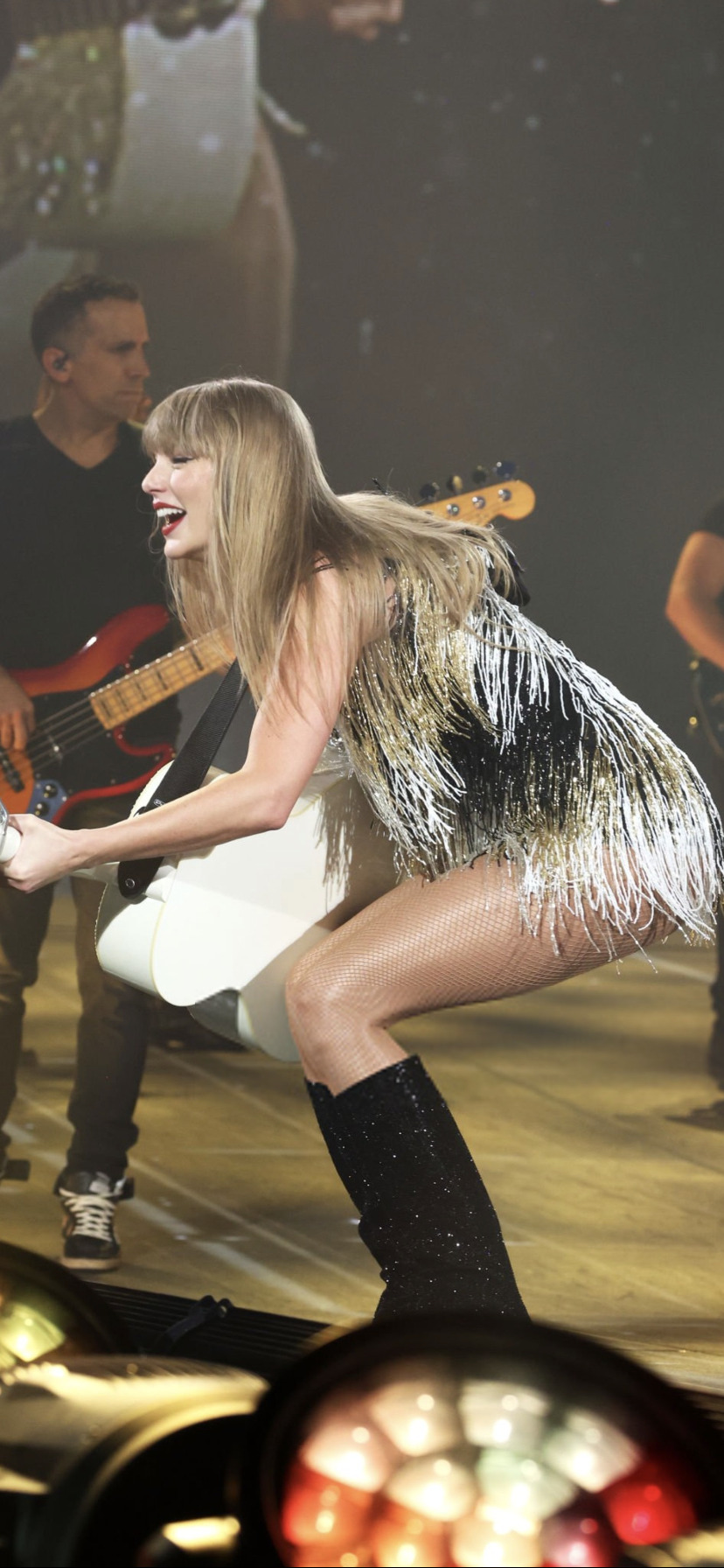
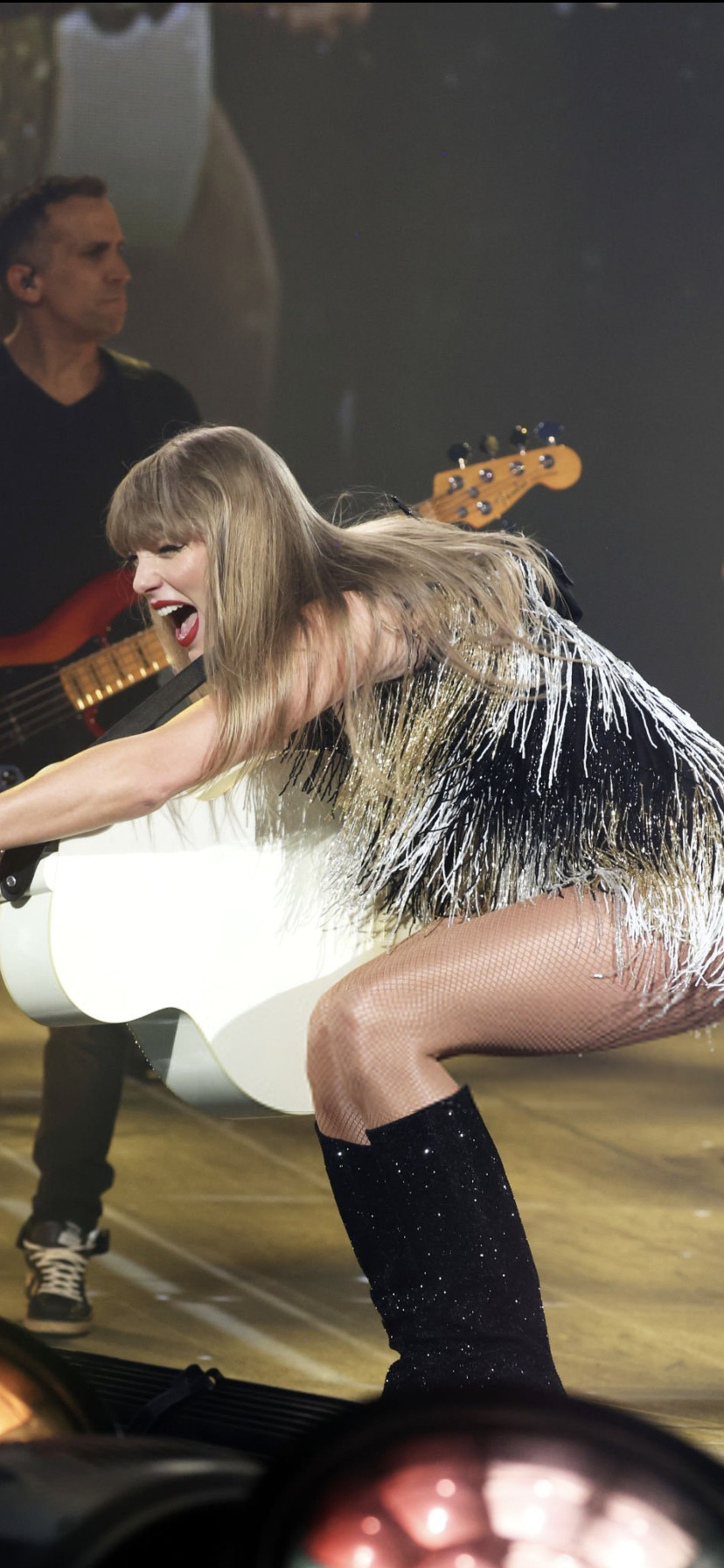
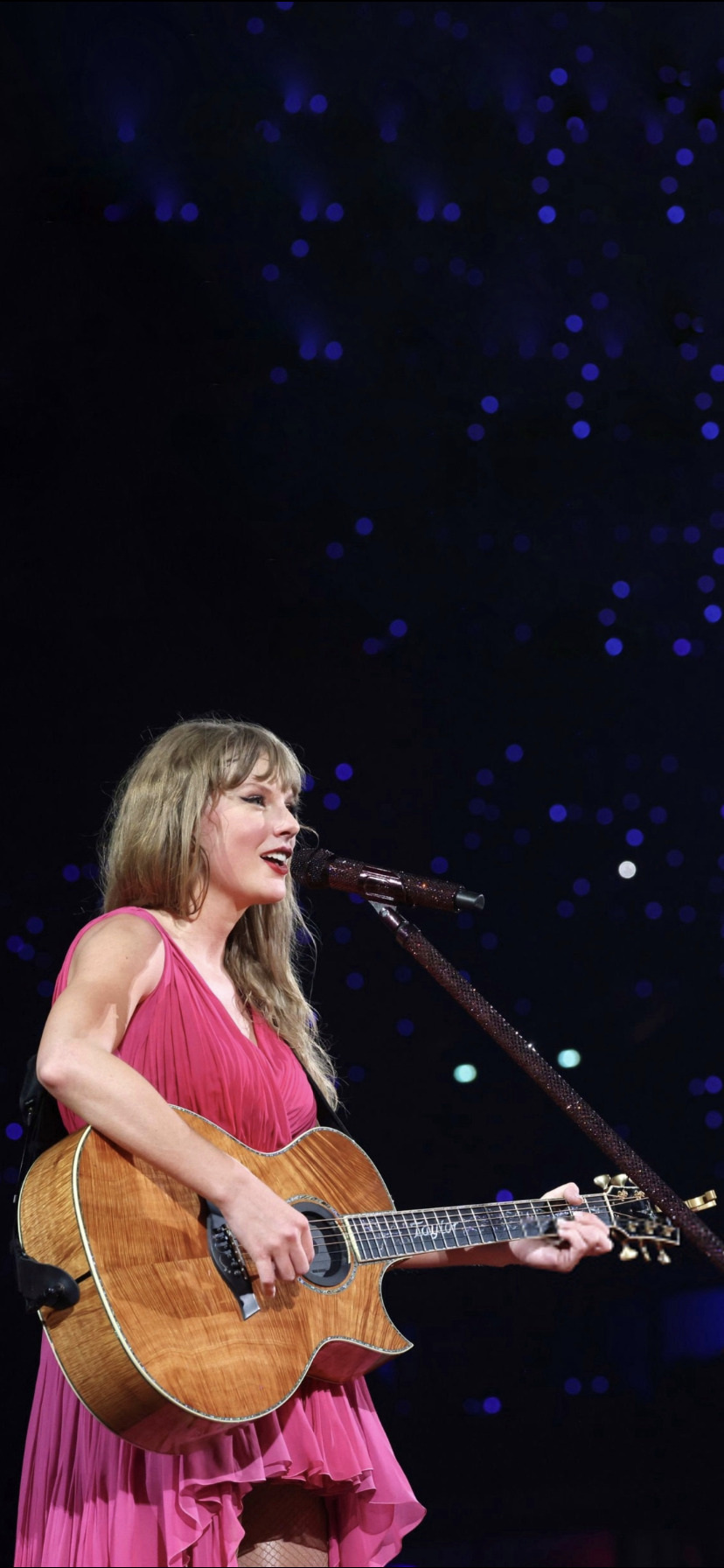

Taylor Swift The Eras Tour in Paris Lockscreens *ੈ✩‧₊˚
| Like or reblog if you save ♡
#taylor swift lockscreens#taylor swift#taylor swift icons#taylor swift wallpaper#the eras tour#moodboard#taylor swifit the eras tour#taylor swift pack#taylor swift locks#taylor swift wallpapers#taylornation#taylor swift in paris
114 notes
·
View notes
Text

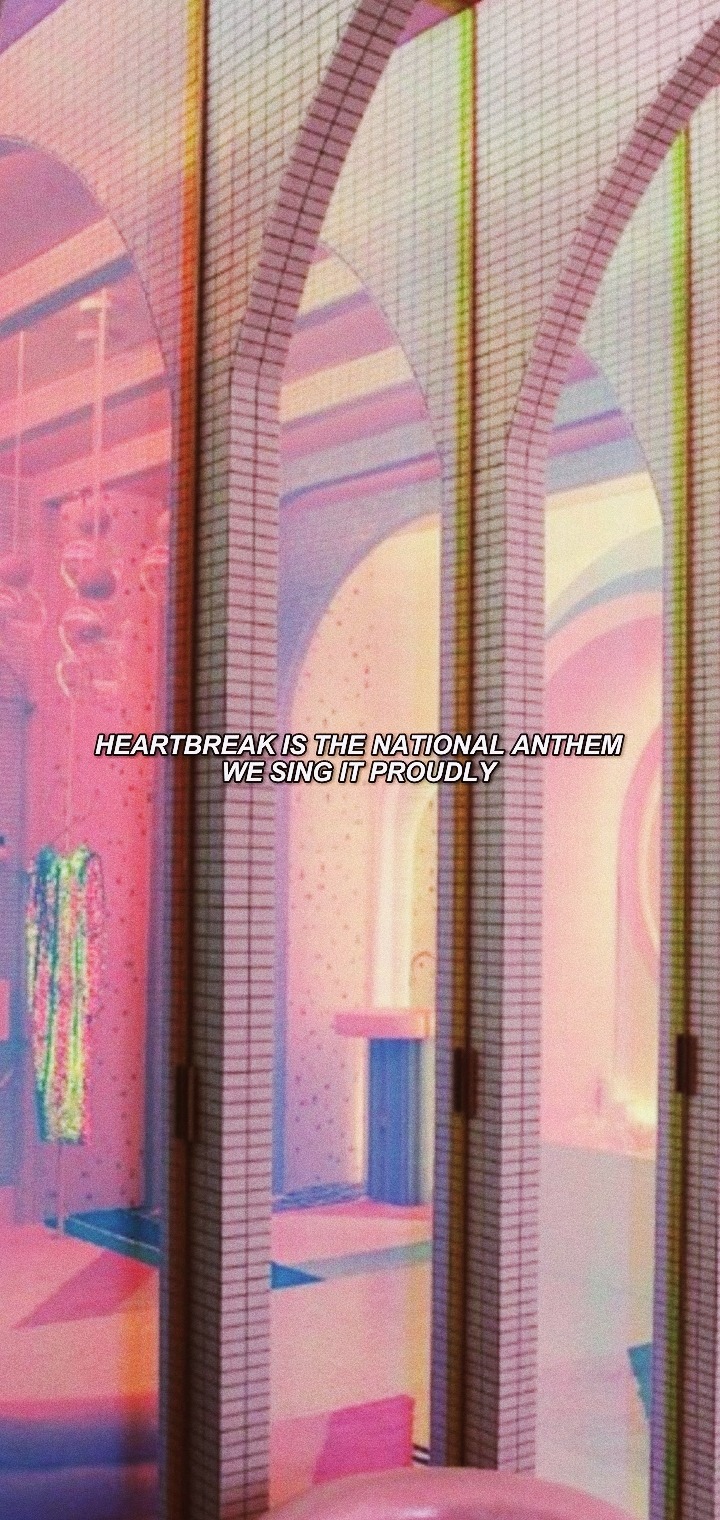
new romantics // part .1
taylor swift
in case you save it, please like or reblog✩°。⋆⸜
#taylor swift lockscreens#taylor swift lyrics#new romantics#1989#lyric lockscreens#taylor swift locks#taylor swift headers#taylor swift edit#taylor swift#tswiftedit#tscreators#taylor swift wallpapers#1989 taylors version#1989 lockscreens#1989 era#1989 tv#the eras tour#userTS#tsuserclaire#tsuserbella#userelena
189 notes
·
View notes
Text
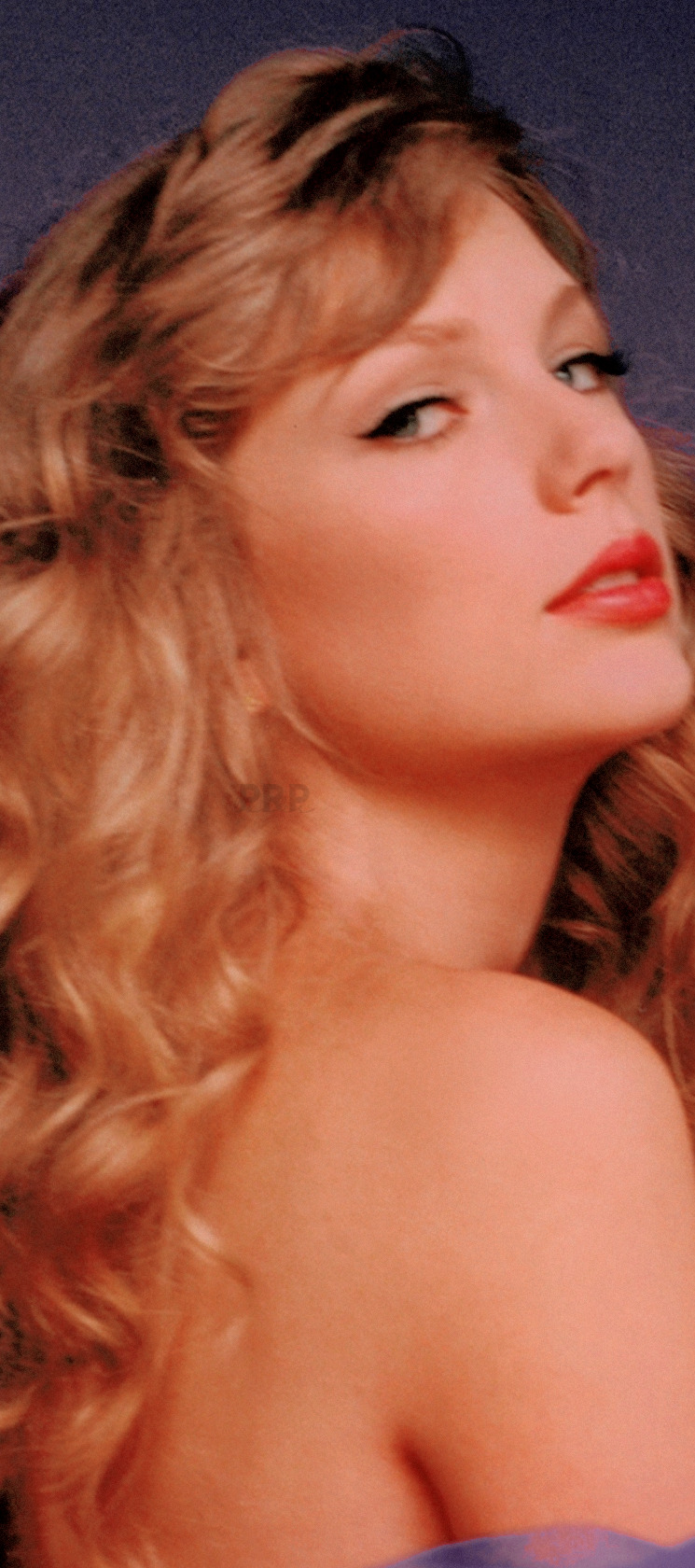
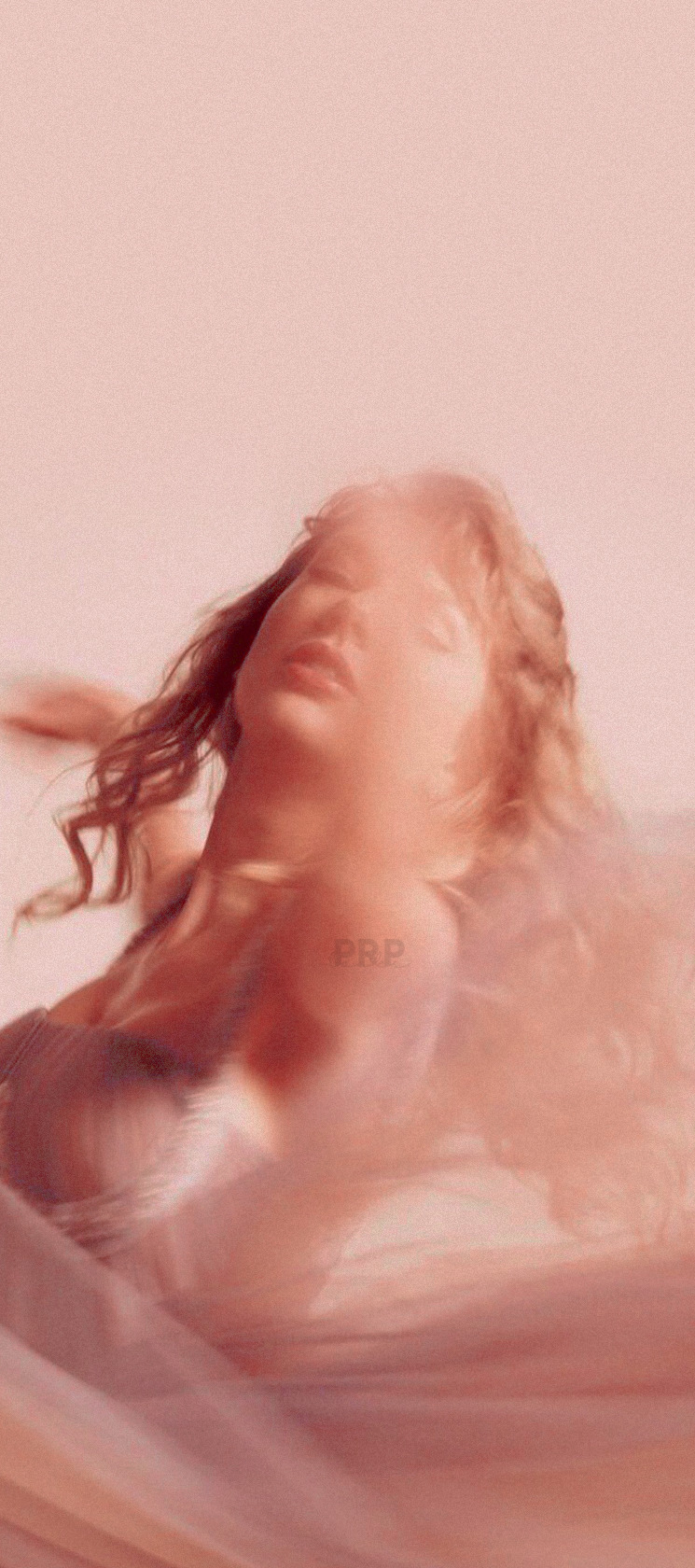
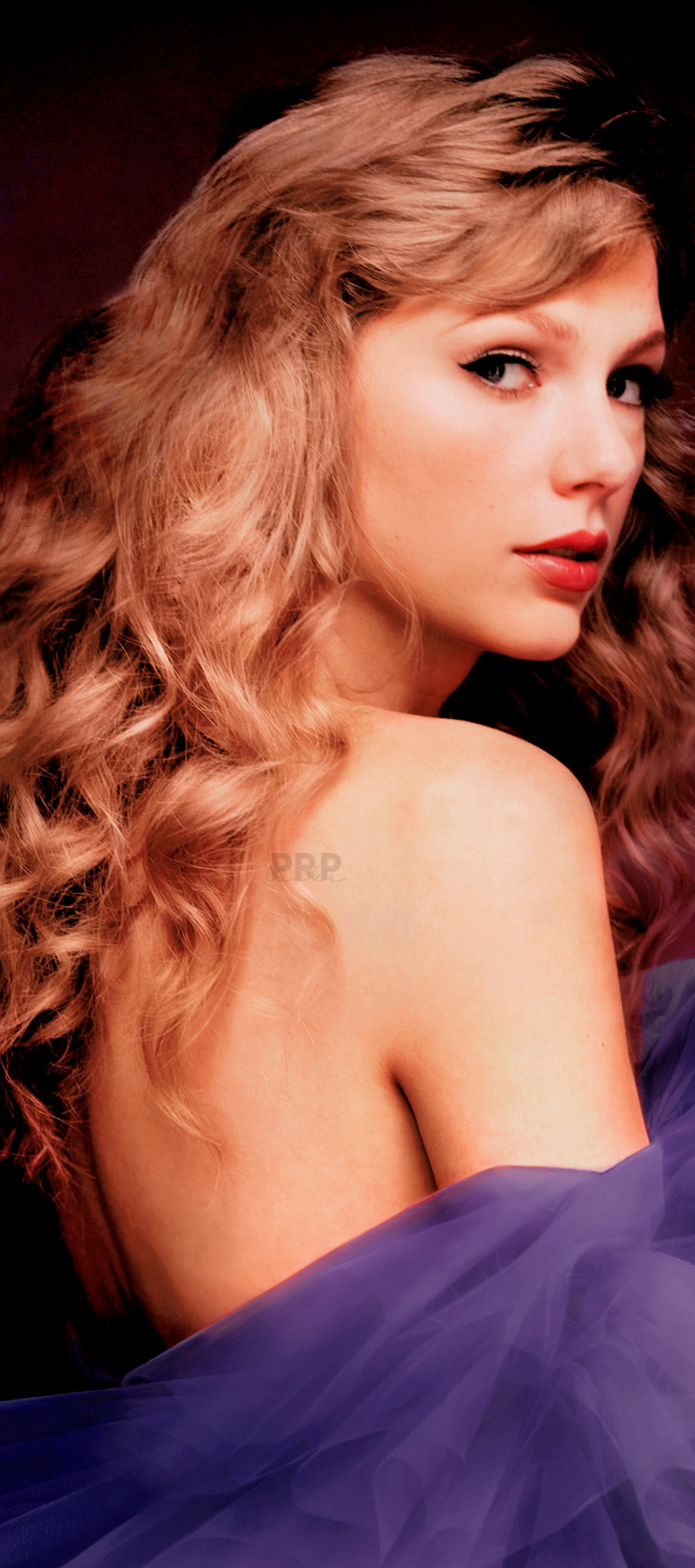
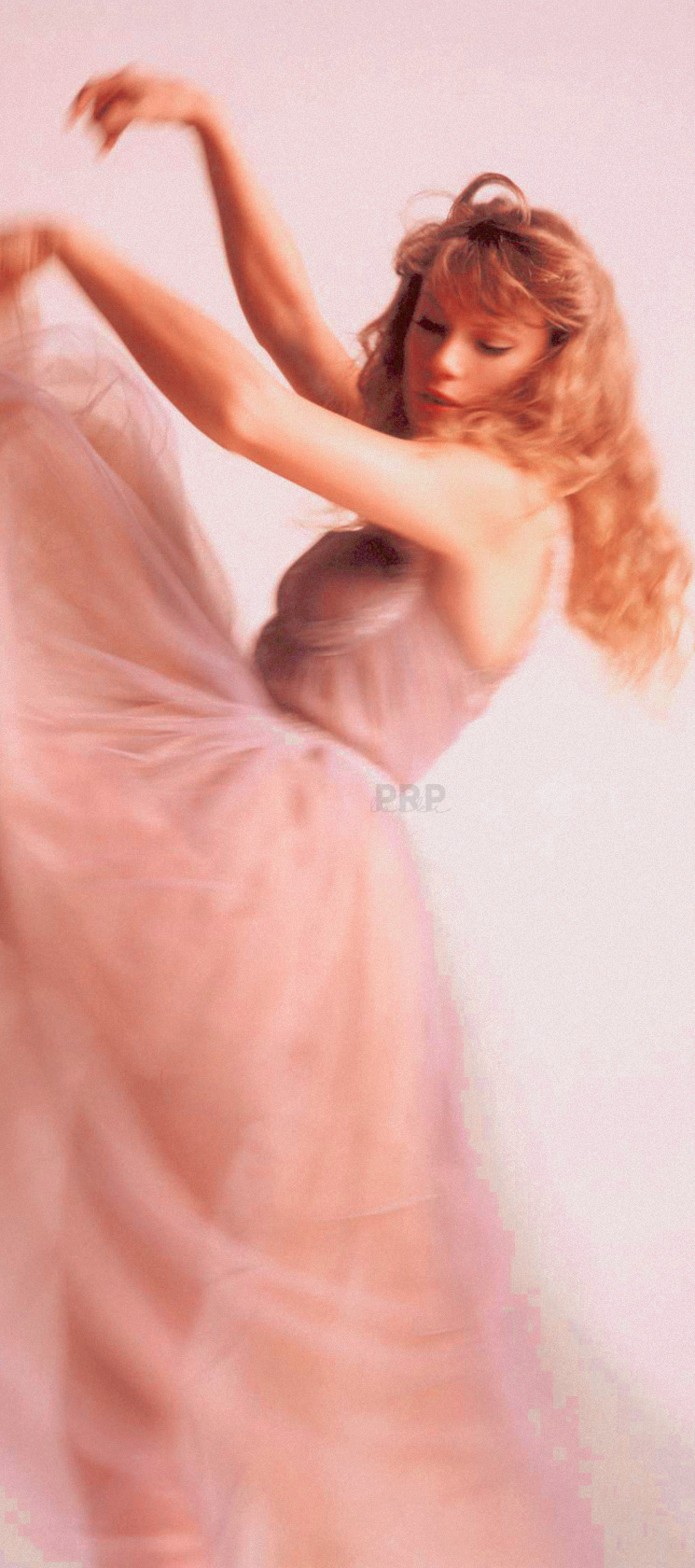
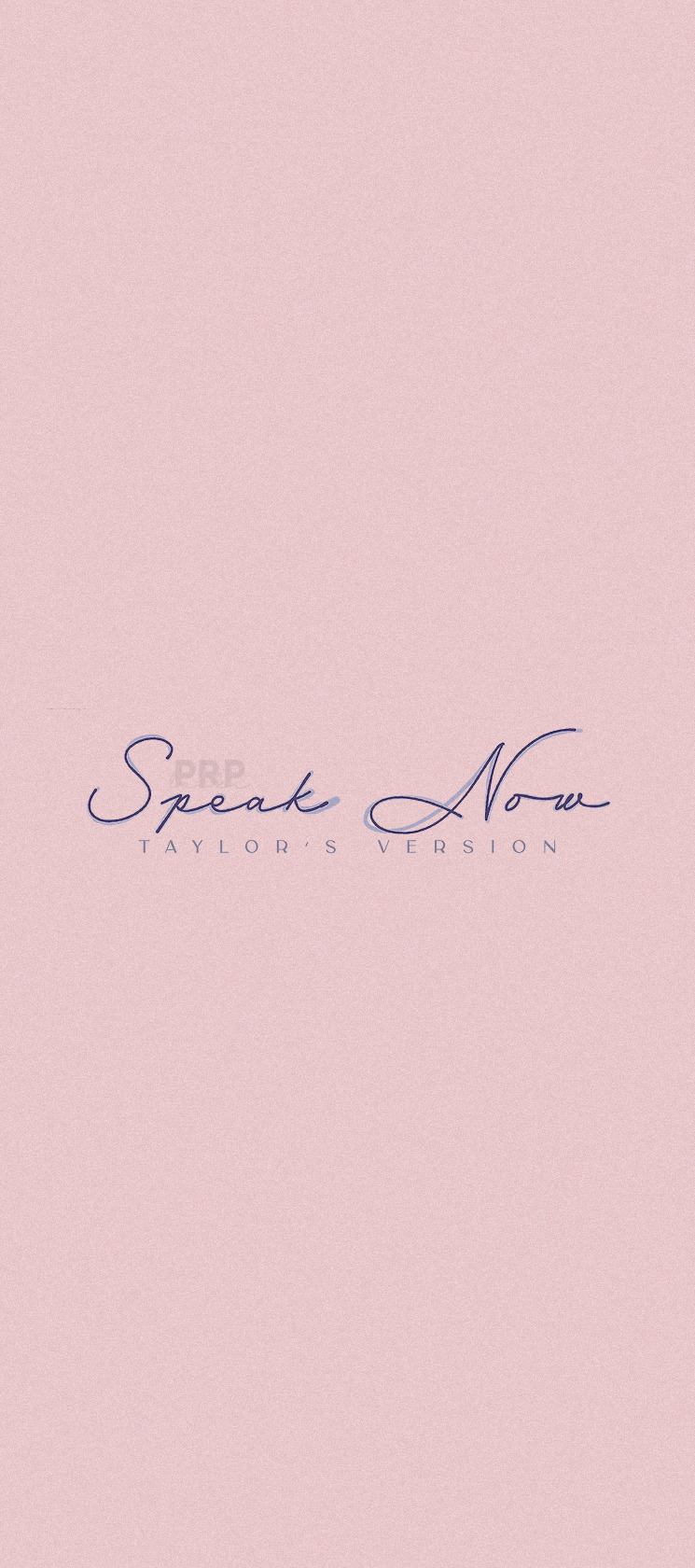
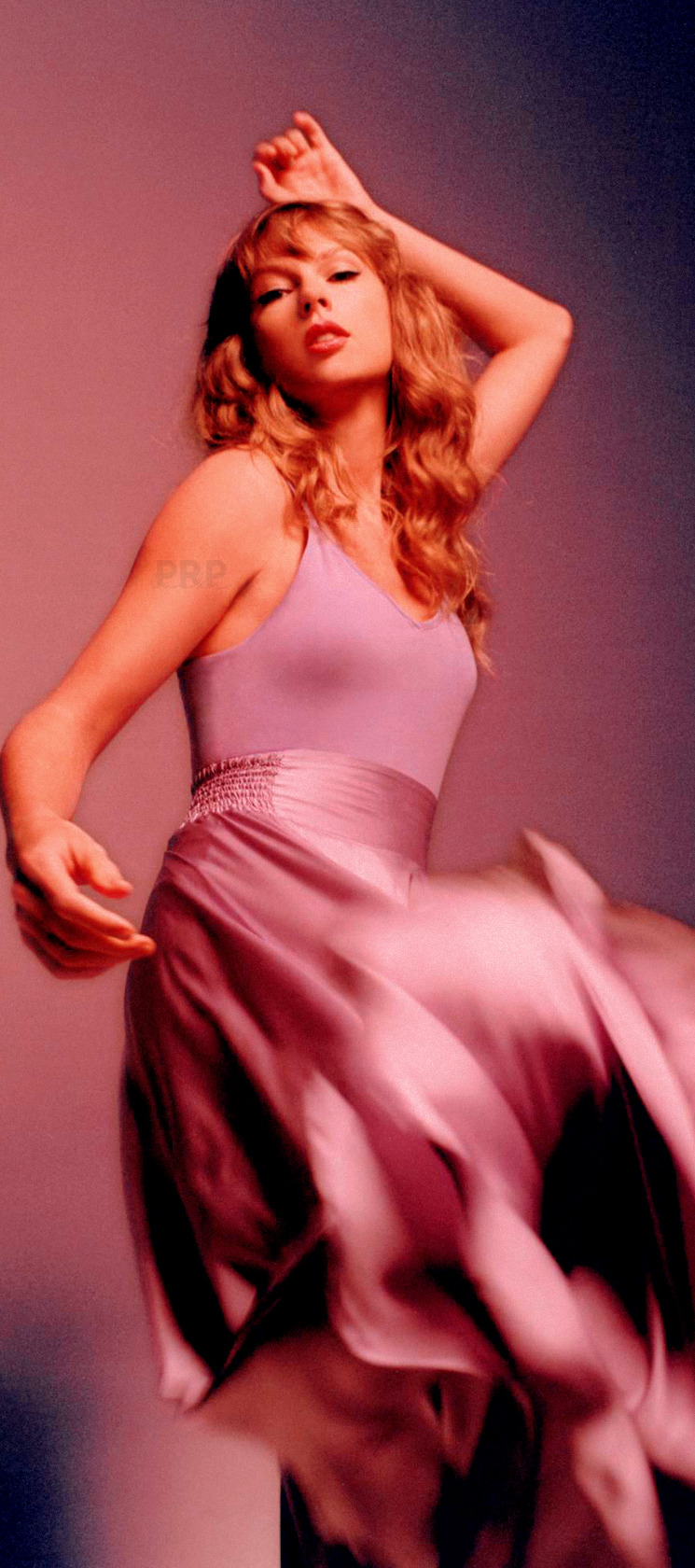
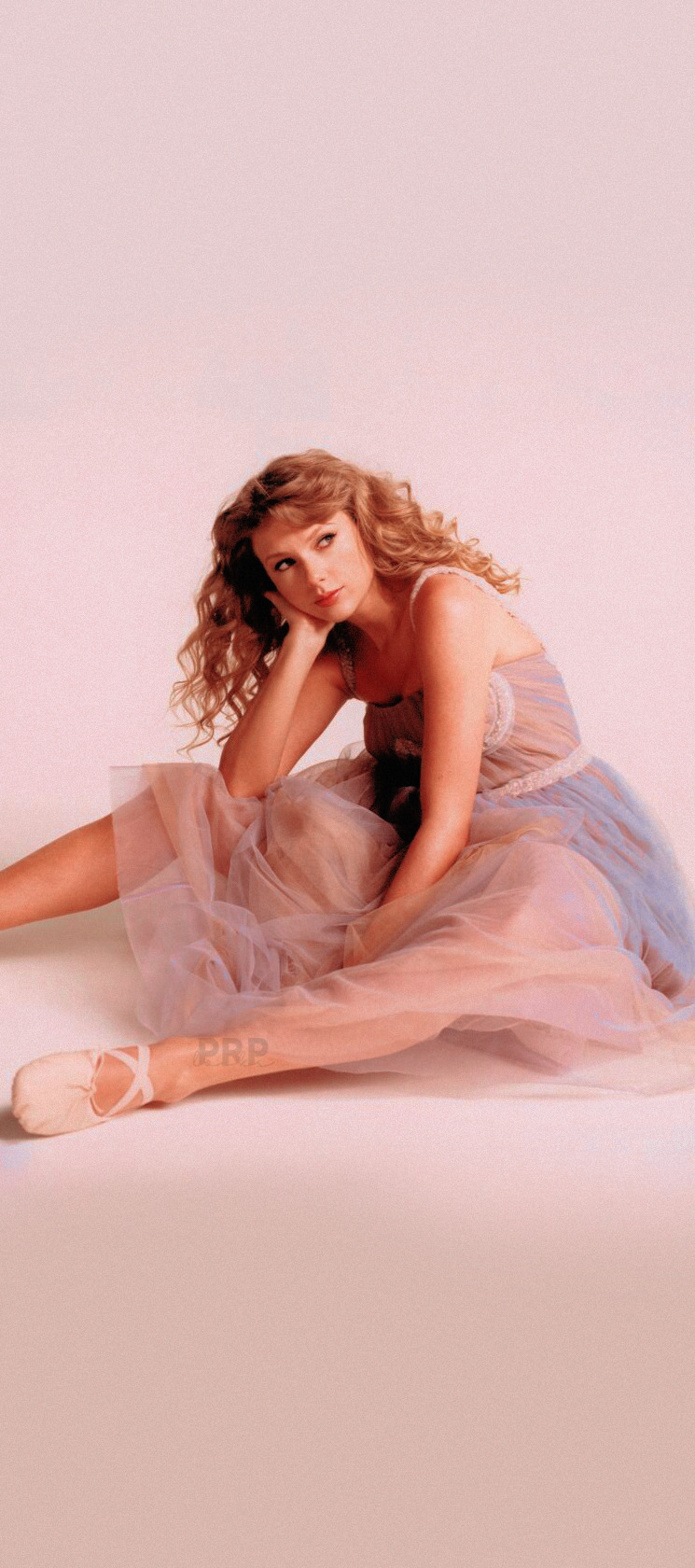
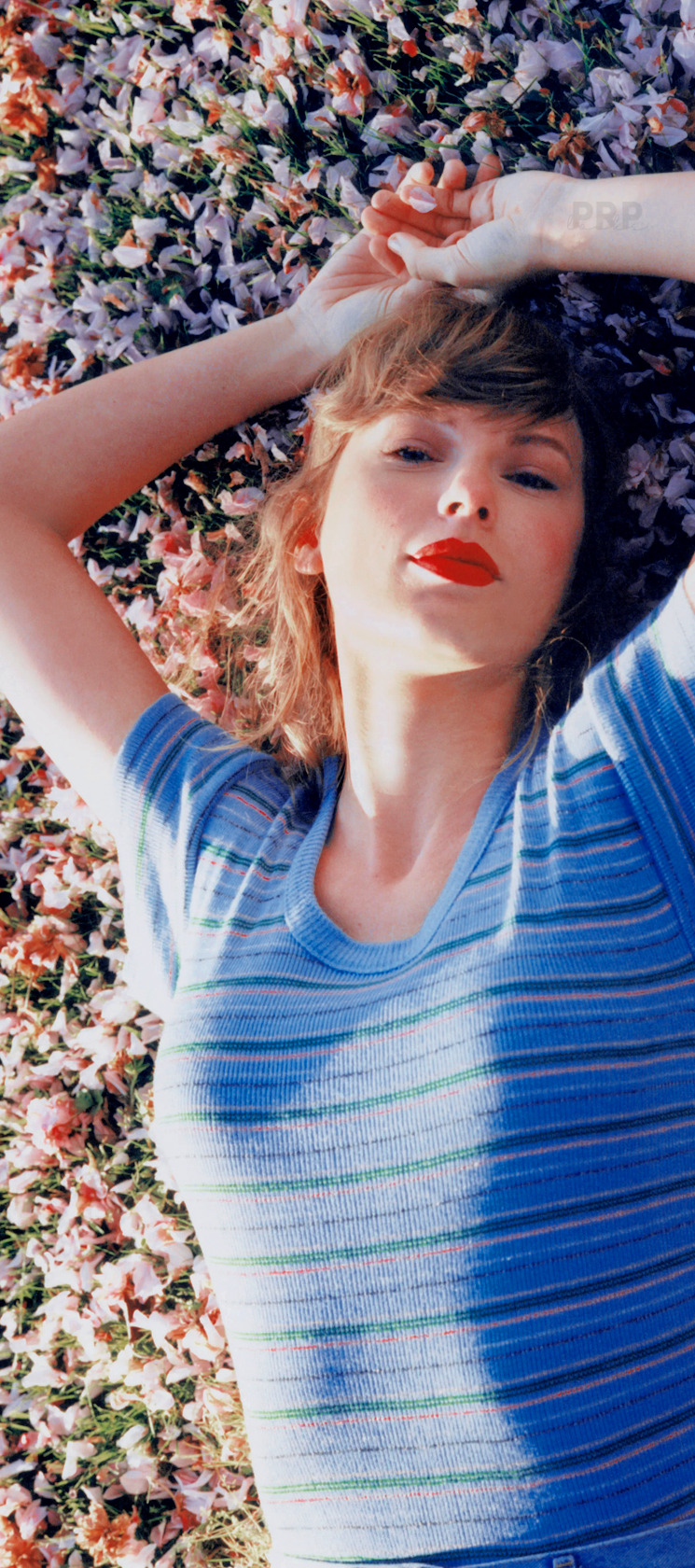
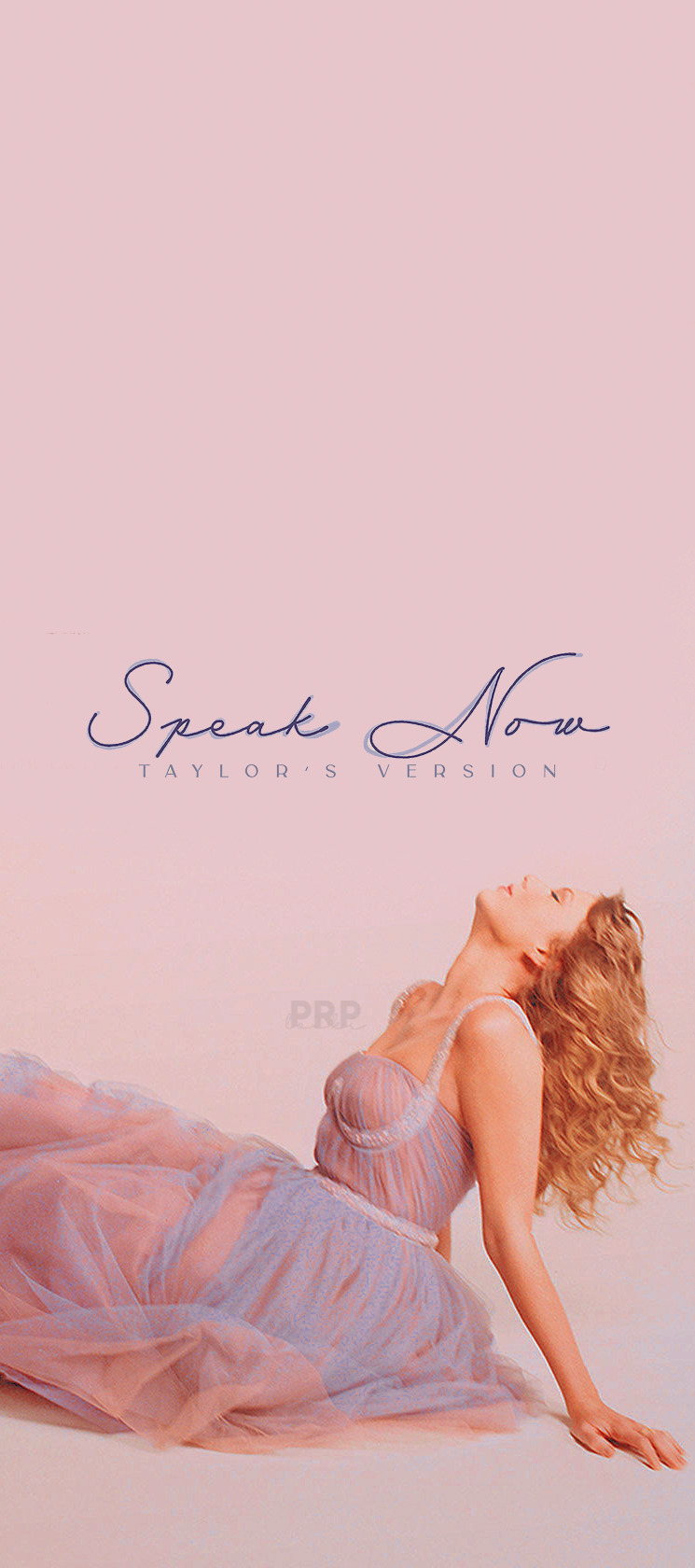
♡☆♡ taylor swift wallpaper
reblog if you save ▪︎
-----------------------------------------------------------
#wallpapers#taylor swift#taylor swift speak now#speak now#speak now taylor’s version#taylor swift wallpaper#taylor swift locks#taylor swift lockscreen#taylor swift lockscreens#taylor swift wallpapers
303 notes
·
View notes
Text
DOGMA book: member interview translations
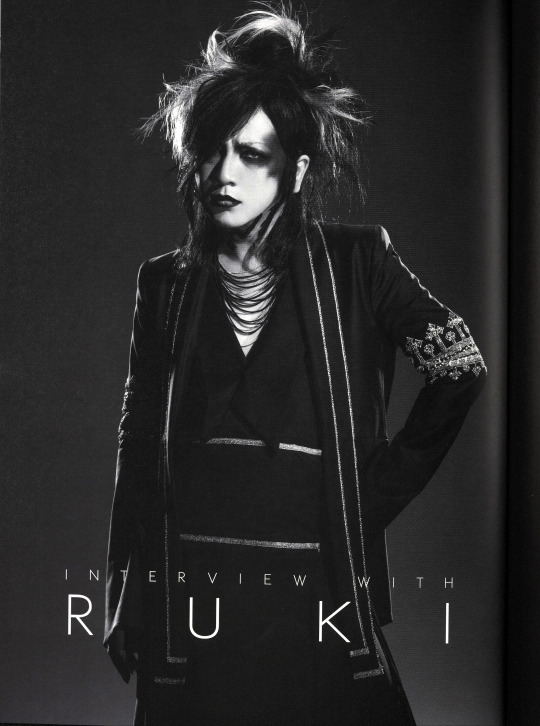
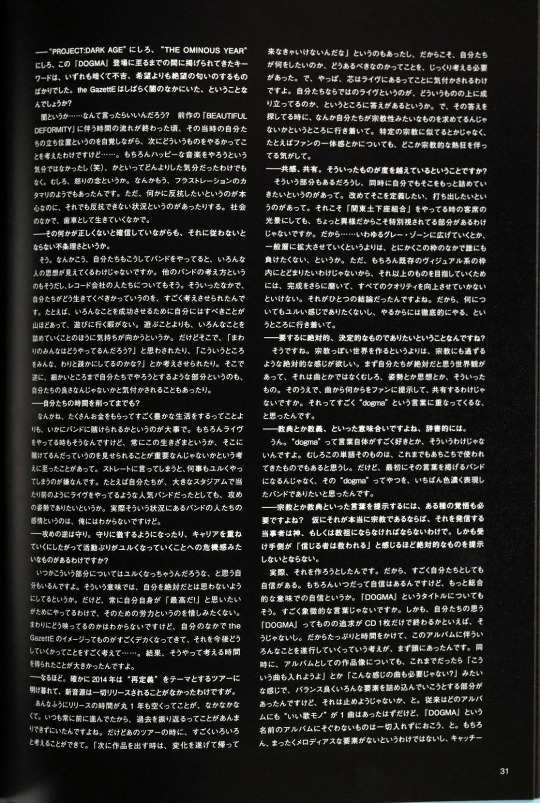
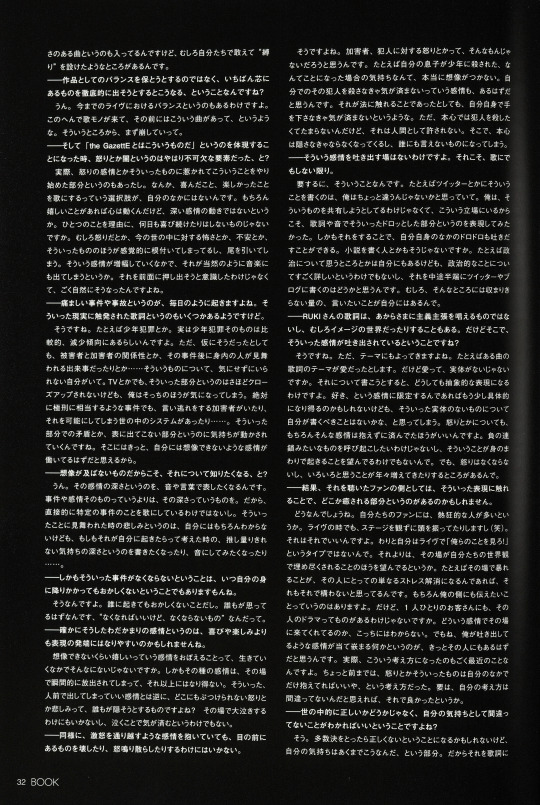
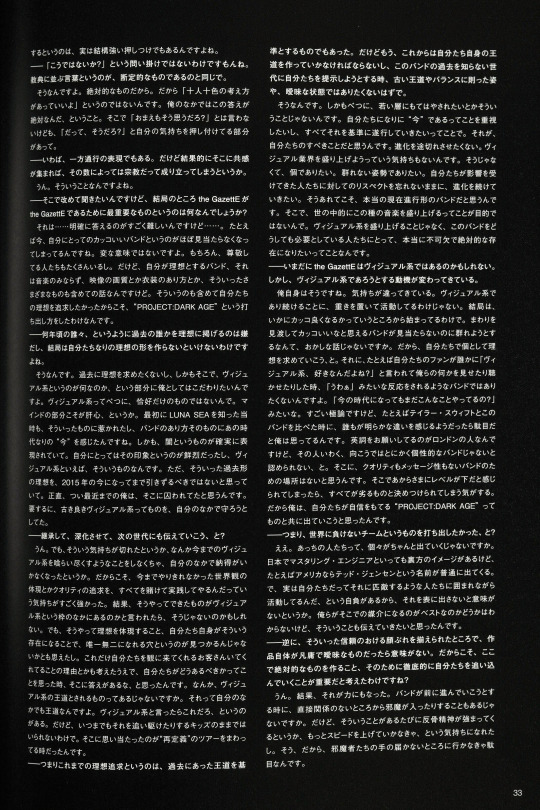
Interviewer: The keywords associated with "PROJECT: DARK AGE" and "THE OMINOUS YEAR," leading up to the release of "DOGMA," have all been gloomy, exuding a sense of despair rather than hope. Does this mean that the GazettE has been dwelling in darkness for a while?
Ruki: Rather than darkness...how should I put it? By the time the flow of time associated with our previous work "BEAUTIFUL DEFORMITY" had ended, we became aware of our standing and began thinking about what to do next. We weren't in the mood to create happy music (laughs), but we also weren't feeling gloomy. It was more like a sense of anger—a bundle of frustration. We are genuinely rebellious at heart, yet there were circumstances where we couldn't rebel, living as cogs in society.
Interviewer: You mean the absurdity of knowing that something is wrong but still having to comply with it?
Ruki: Exactly. As we continued our band activities, we encountered various people's thoughts—those of other bands and people from record companies. This made us reflect on how we should live. For instance, to achieve various successes, I had countless responsibilities and no time for leisure. My focus shifted more towards cramming in various tasks rather than having fun. But then, I'd wonder, "How does everyone else manage?" and consider if others might be neglecting such details. This made me realize that our meticulousness might actually be one of our strengths.
Interviewer: Even at the cost of sacrificing your own time?
Ruki: Instead of living a wealthy life with lots of money, it's more important for us to see how much we can dedicate to the band. Of course, this applies to when we are performing live as well, but it's crucial to show that we are betting everything on this lifestyle. I hate doing things half-heartedly. Even if we were a popular band performing in large stadiums, I'd still want to maintain an aggressive stance. Although I can't speak for the feelings of bands in that situation.
Interviewer: The opposite of aggressive is defensive. Do you have a sense of crisis about becoming complacent in your activities as your career progresses?
Ruki: There's a part of me that thinks we might eventually become more relaxed about these aspects. In that sense, I try not to think of myself as absolute. However, I do everything to feel that "we're the best!" and I don't want to spare any effort to achieve that. I don't know how others perceive it, but the image of the GazettE has grown significantly in my mind, and I have been thinking a lot about how to shape it in the future. Having time to think about it was very significant.
Interviewer: Indeed. In 2014, you were busy with a tour themed "redefinition," without releasing any new material.
Ruki: Having a whole year without a release was unusual. We were always moving forward and didn't have much time to look back. But during that tour, we could think about many things. There was a sense that when we released our next work, we had to come back changed. Therefore, we needed to think carefully about what we wanted to do and how we should be. Eventually, I realized that our core lies in live performances. The essence of our live shows is built upon something unique to us. While searching for that answer, I felt like we were seeking something akin to religiosity—not resembling any specific religion but perhaps related to the fervor of our fan unity.
Interviewer: Do you mean the degree of empathy and collective feeling beyond normal bounds?
Ruki: There might be some of that, but I also want to delve deeper into it. I wanted to redefine and present it anew. Even the sight of the audience during "Kantou Dogeza Kumiai" was extraordinary and special. So, instead of expanding into a gray zone or appealing to a broader general audience, we wanted to be unbeatable within our niche. But we don't intend to remain confined within the existing visual kei boundaries; we aim to elevate everything beyond that. That's one of our conclusions. We don't want to be lax about anything and strive to do everything thoroughly.
Interviewer: In other words, you want to be absolute and definitive.
Ruki: Yes. Rather than creating a religious-like world, we want an absolute feeling that also resonates with religious undertones. We have an absolute worldview that we believe in, and it involves attitudes and ideologies rather than just songs. We then present and share everything with our fans. That overlaps significantly with the word "dogma."
Interviewer: In the dictionary, it means doctrine or creed.
Ruki: I don't particularly love the word "dogma" itself. It's been used in many places before. But instead of being the first band to use the term, we wanted to be the band that expressed "dogma" most profoundly.
Interviewer: Using words like religion and doctrine requires a certain determination, doesn't it? If it were a real religion, the proponents would need to be gods or prophets, presenting something absolute for followers to believe in.
Ruki: We actually tried to create that. So, we're very confident in ourselves. Of course, we've always been confident, but this is more about a comprehensive confidence. The title "DOGMA" is very symbolic. And the pursuit of what we think "DOGMA" should be is not limited to just one CD. We planned to take our time to carry out various things associated with this album. At the same time, regarding the album's composition, we used to aim for a balanced inclusion of various elements, like "let's include this type of song" or "we need a song like this," but we decided to stop that. Previously, each album had at least one "good song," but for an album named "DOGMA," we decided not to include anything that didn't fit. Of course, it's not that there are no melodic or catchy elements at all...
Ruki: We have included songs with depth, but it's more like we deliberately set a 'rigidness' to it.
Interviewer: So, instead of maintaining balance within the work, you focused on thoroughly expressing the core element?
Ruki: Yes. There's always a balance in our live performances, like having a song come in at a certain point, or placing a specific type of song before another. We started by breaking away from that.
Interviewer: And when it came to embodying "this is what the GazettE is," anger and darkness were indeed essential elements?
Ruki: In reality, part of the reason we started doing this was because we were drawn to emotions like anger. Somehow, I don't have the option in myself to turn happy things or enjoyable things into songs. Of course, if something makes me happy, my heart moves, but it's not a deep emotional movement, you know? You don't stay joyful for days over one thing. Instead, anger, fear of the current world, and anxiety tend to root themselves deeply and linger. As these emotions amplify, they naturally emerge in the music, not because I consciously decided to push them to the forefront, but because it just naturally turned out that way.
Interviewer: There are tragic incidents and accidents occurring daily. Some of your lyrics seem inspired by such realities.
Ruki: Yes. For example, juvenile crime. Apparently, juvenile crime itself is relatively declining. However, regardless of that, there's a part of me that can't help but be concerned about things like the relationship between victims and perpetrators, or the incidents where family members are affected afterwards... Even though such aspects aren't often highlighted on TV, they catch my attention. Even in cases where there should absolutely be severe punishment, there are perpetrators who manage to evade responsibility, or there are systems in society that allow such things to happen... Such contradictions and hidden aspects move me emotionally because there are likely feelings involved that I can't even imagine.
Interviewer: Because you can't imagine them, you want to understand them?
Ruki: Yes. I want to express that depth of emotion through sound and words. It's not about the incident or the emotion itself, but the depth of it. Therefore, I'm not singing about specific incidents directly. While I can't understand the sadness faced by those affected, imagining it happening to me makes me want to express that depth of emotion and translate it into music.
Interviewer: And the fact that such incidents don't stop means it could happen to anyone, including yourself.
Ruki: Exactly. It can happen to anyone. Everyone must think, "It would be great if these things didn't happen, but they don't stop."
Interviewer: Indeed, those lingering feelings are easier to use as a starting point for expression compared to joy or pleasure.
Ruki: We rarely feel joy so intense it's hard to imagine in our lives. Such feelings are often momentarily released and don't go beyond that. On the opposite, anger and sadness that can't be directed anywhere are feelings everyone tries to hide. You can't burst into tears on the spot, and crying doesn't necessarily make you feel better.
Interviewer: Similarly, even if you harbor feelings of intense anger, you can't go around breaking things or shouting loudly.
Ruki: That's right. The anger towards the perpetrator or the criminal is not something trivial. For example, if my son were killed by a juvenile, I can't even imagine what kind of feelings I'd have.
I think there would be a feeling of needing to kill the perpetrator myself to feel satisfied. Even if that meant breaking the law, the feeling of needing to take matters into my own hands. However, while I might desperately want to kill the criminal in my heart, that's not something allowed for a human. Therefore, these dark feelings have to be hidden and can't be shared with anyone. Unless they're expressed through a song.
In short, that's what it is. For example, I don't think it's appropriate to write about such feelings on Twitter. I'm not trying to share those feelings with others; instead, from my position, I wanted to express those dark feelings through lyrics and sound. And by doing so, I can also expel the murkiness within myself. It's similar to how someone who writes novels might feel. For instance, I have my own thoughts on politics, but I'm not deeply knowledgeable about it, so I don't think it would be right to write about it half-heartedly on Twitter or a blog. Rather, I have a lot of things I want to say that wouldn't fit in such places.
Interviewer: RUKI-san's lyrics aren't explicitly advocating any particular ideology; sometimes it's about the world of imagery. However, that's where those emotions are being expelled, right?
Ruki: That's right. However, it depends on the theme as well. For example, if the theme of a song's lyrics is love. But love isn't tangible. When you try to write about it, it inevitably becomes abstract. If it's limited to the feeling of liking someone, it might become a bit more concrete, but I feel like there's nothing for me to write about such intangible things. As for anger, it's better not to have such feelings. I don't want to evoke a chain of negative events, and I don't wish for such things to happen around me. But anger doesn't go away, and I find myself feeling it more and more each year.
Interviewer: As a result, fans who listen to your music might find some form of healing through those expressions.
Ruki: I wonder about that. Many of our fans are quite enthusiastic. At our live shows, some don't even look at the stage and just headbang (laughs). That's fine. I'm not the type to shout, "Look at us!" during live performances. Rather, I prefer for the atmosphere to be filled with our worldview. For example, if someone releases their stress by going wild at our concerts, that's fine with me. Of course, I have things I want to convey too. But each fan has their own story. We don't know what emotions they bring with them to our concerts. But I think there's something in my emotions that resonates with each of them. I've only recently started thinking this way. Until a while ago, I thought it was enough to just keep the anger and such feelings within myself. As long as I felt my thinking wasn't wrong, that was enough.
Interviewer: It's not about being right by societal standards, but understanding that they are not wrong as your own feelings, right?
Ruki: Exactly. It might not be correct if you take a majority vote, but these are my feelings. So putting those feelings into lyrics is actually quite a forceful imposition.
Interviewer: It's not a question of "Isn't it like this?" It's more of a definitive statement, like words in a sacred text.
Ruki: That's right. It's because it's absolute. So it's not about "There are various ways of thinking." For me, this is the definitive answer. I'm not saying, "You should feel the same," but rather, "This is how it is for me."
Interviewer: So it's a one-way expression. But if it gathers enough empathy, it could even form a kind of religion.
Ruki: Yes, that's right.
Interviewer: So I'd like to ask again, in the end, what is the most important thing for the GazettE to be the GazettE?
Ruki: That's... it's really difficult to answer clearly... For example, right now, I don't find many bands that I think are cool. I don't mean that in a bad way. Of course, there are many people I respect. But the ideal band I envision, which includes not just the music but also things like the quality of the visuals and the way they dress, those elements combined, that's what I wanted to pursue, which led to the "PROJECT: DARK AGE" approach.
Interviewer: You don't want to idealize someone from the past, you have to create your own ideal form.
Ruki: That's right. I don't want to seek ideals in the past, and I want to focus on what visual kei really means. Visual kei isn't just about looks; it's about the mindset. When I first discovered LUNA SEA, I was drawn to those aspects and felt the "now" of that era in their band style. Moreover, they definitely expressed darkness. That impression was vivid for me, and that's what visual kei means to me. But I don't think we should cling to those past ideals in 2015. Honestly, until recently, I was probably trapped by that. I was trying to preserve the old-school visual kei within myself.
Interviewer: To inherit, deepen, and pass it on to the next generation?
Ruki: Yes. But I felt that I had to devour the visual kei of the past in order to be satisfied within myself. Therefore, I had a strong feeling of embodying the world view and pursuing quality that I hadn't been able to fully realize before. As a result, if you ask whether what we created falls within the bounds of visual kei, it might not. But by embodying those ideals and becoming such a presence ourselves, I felt we might find a unique position. Thinking about why so many people come to see us, I felt the answer was there. There's a traditional idea of what visual kei is supposed to be. For me, that's also the standard. When you think of visual kei, there's an image. But we can't remain kids chasing that image forever. This realization hit me while we were on the "Redefinition" tour.
Interviewer: So the pursuit of ideals so far was based on the classic model of the past. But now, you have to create your own ideal path and present yourselves to the generations who don't know your past. You can't stay in an old, balanced, or vague state.
Ruki: That's right. And it's not about wanting to be popular with younger audiences. We want to emphasize "now" in our own way and proceed with everything based on that. I think that's what we should be doing. We don't want to stop evolving. We're not trying to revitalize the visual kei industry. It's not about that; we want to be individuals. We want to maintain a stance of not blending in. We want to continue evolving without forgetting the respect we have for those who influenced us. Only by being like that can we be a truly current band. The goal is not to uplift this genre of music for the world. Instead, we want to become an indispensable and absolute presence for those who need us.
Interviewer: The GazettE might still be visual kei, but the motivation for being visual kei has changed.
Ruki: For me, it has. My feelings have changed. We're not focusing on continuing as visual kei. Ultimately, it started from wanting to be cool. Looking around, I don't see any bands that I think are cool, so it would be strange to try to blend in. So, we decided to seek our ideals as individuals. Also, when our fans show someone our music and say they like visual kei, I don't want the reaction to be "Wow." Are they still doing this in this era?" For example, and it's an extreme example, but if you compare us to Taylor Swift, I don't want there to be an obvious gap.
Our English lyrics are done by someone in London, and they say that over there, bands need to be unique to be recognized. If the quality and message of a band aren't apparent, there's no place for them. If it's clearly felt that our level is lower, everything will be dismissed as inferior. So we decided to go all out with "PROJECT: DARK AGE," creating something we could be confident in.
Interviewer: So you wanted to present a team that could compete with the world?
Ruki: Yes. Over there, each individual stands out. In Japan, mastering engineers are seen as behind-the-scenes, but in America, names like Ted Jensen are well-known. We work surrounded by people who are on par with them, and we want to show that. Whether we're the best intermediary for that is uncertain, but that's what we wanted to convey.
Interviewer: On the other hand, even if you have a reliable team, if the work itself is mediocre or vague, it means nothing. So, creating something absolute and pushing yourselves to the limit was crucial.
Ruki: Yes. As a result, it became our strength. When a band tries to move forward, obstacles sometimes come from unrelated places. But each time that happened, our rebellious spirit grew, making us want to speed up even more. We need to reach a place where those obstacles are no longer a concern.
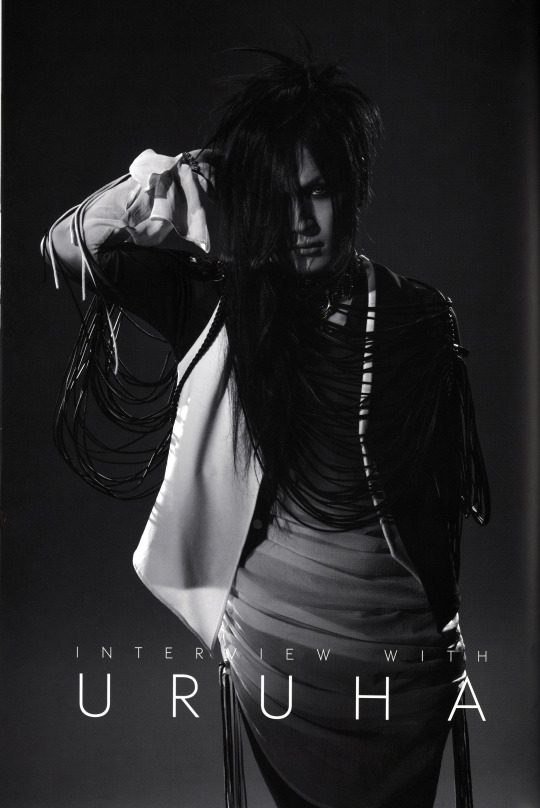
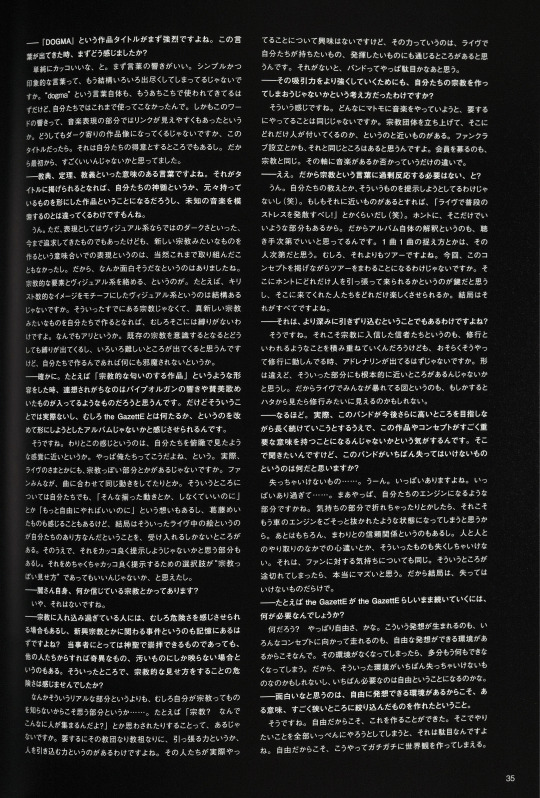
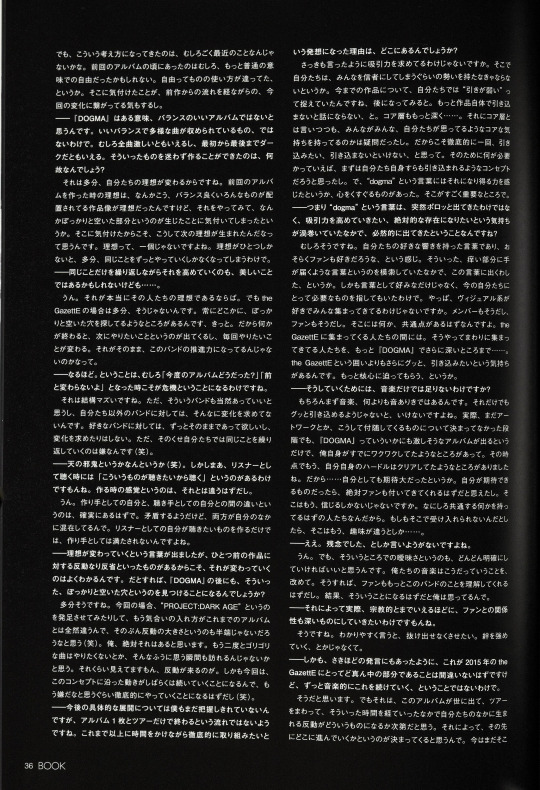
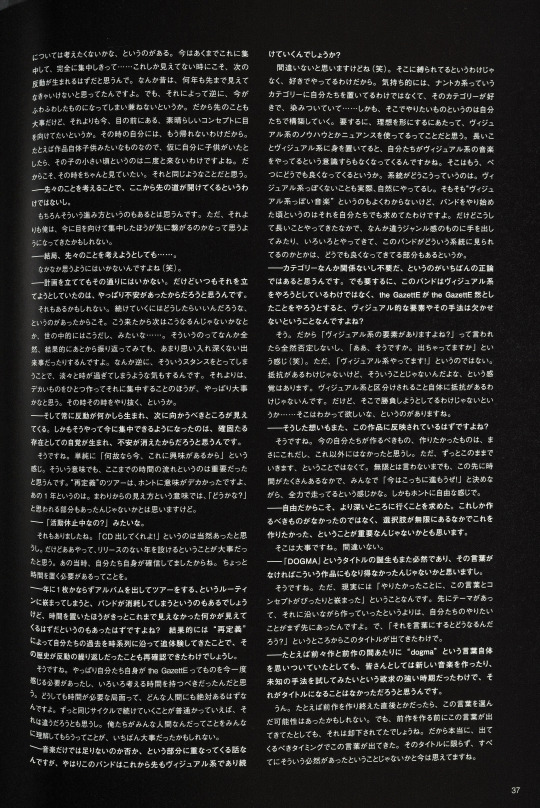
Interviewer: The title of your work "DOGMA" is quite striking. How did you feel when you first heard it?
Uruha: I simply thought it was cool. First of all, the sound of the word is good. Simple and impactful words have mostly already been used, right? Although the word "dogma" itself has already been used in many places, we hadn't used it before. The sound of this word links well with musical expression. If we use this title, the work inevitably has a darker tone. That aligns with our strengths. So, from the start, I thought it was a great idea.
Interviewer: It's a word that means creed, doctrine, or principle. Having it as a title implies that the work embodies your essence or what you've always had, rather than exploring unknown music.
Uruha: Yes. The darkness typical of visual kei that we've always pursued is part of it, but expressing the creation of a new religion is something we hadn't tackled before. So, it seemed interesting. Combining religious elements with visual kei. For example, there are quite a few visual kei bands that use Christian imagery as a motif. Instead of an existing religion, creating a brand-new one ourselves has a certain freedom. There are no constraints. If we were to be conscious of an existing religion, there would be limitations and difficulties, but if we create it ourselves, nothing gets in the way.
Interviewer: Indeed. When you describe a work as having a "religious feel," people might think of pipe organ sounds or hymn-like elements. But that's not the case here. Rather, it's an album that redefines what the GazettE is all about.
Uruha: Yes. It's like looking at ourselves from a bird's eye view. It's like, "Yeah, this is who we are." Even at our live shows, there are elements that seem religious. All the fans moving in unison with the music. Sometimes we feel, "You don't have to move like that," or "You could be more free." We feel a bit conflicted about it, but ultimately, we have to accept that this is our way. We think, "Let's present it in a cool way." So, choosing a "religious" presentation was one of the options to make it really cool.
Interviewer: Do you personally follow any religion?
Uruha: No, I don't.
Interviewer: For people who are overly devoted to religion, it can sometimes seem dangerous. We all remember incidents related to new religious movements. For the followers, it's sacred and worship-worthy, but for others, it can appear strange or dirty. Didn't you feel any danger in presenting things in a religious manner?
Uruha: Rather than those real aspects, it’s more about my own perspective since I don't really know much about religion. For example, "Why do so many people gather for this?" It's the pulling power of the sect or the leader. That power to attract people is something we want to have and show during our live performances. Without it, any band would be hopeless.
Interviewer: So, the idea was to create your own religion to strengthen that attraction?
Uruha: Yes. No matter how seriously you pursue music, it's essentially the same thing. It's establishing a religious group and seeing how many people follow it. Even starting a fan club is similar. Recruiting members is like a religion. The only difference is whether music is at the core.
Interviewer: So, there's no need to overreact to the word "religion"?
Uruha: Exactly. We're not trying to present any doctrines or teachings (laughs). If there's anything close to that, it would be something like, "You should vent your daily life stress at our live performances!" (laughs). That's really all there is to it. So, the interpretation of the album is up to the listeners. How they perceive each song is up to them. What's more important is the tour. We’ll be touring with this concept, and the key is how many people we can attract and how much we can entertain them. That's everything.
Interviewer: It also means drawing people in more deeply, right?
Uruha: Yes. Just like followers of a religion go through what they call training, producing adrenaline in the process. In a different form, but fundamentally similar. So, when people are going wild at our shows, it might look like training from an outsider's perspective.
Interviewer: I see. It feels like this work and concept will be crucial for the band to aim higher and continue for a long time. What do you think is the most important thing the band must not lose?
Uruha: The things we mustn't lose... there are many. Too many to count. The most important would be the parts that drive us. If we lose our passion, it would be like having our engine taken out of a car. Trust and relationships with those around us are also crucial. If our connection with the fans breaks, that would be really bad. So, there are many things we must not lose.
Interviewer: What do you think is necessary for the GazettE to continue being the GazettE?
Uruha: What could it be? Probably freedom. The freedom to come up with ideas and pursue different concepts is because of the environment we have. Without that environment, we wouldn’t be able to do anything. So, the most important thing might be freedom.
Interviewer: It's interesting that having an environment where you can think freely allowed you to create something very focused.
Uruha: Yes. Because we have that freedom, we could create this. Trying to do everything at once wouldn't work. Freedom allowed us to create a tightly focused world.
Uruha: But this way of thinking has only recently come about. During the previous album, the freedom we had was more in the ordinary sense. Our use of freedom was different. Realizing that change is part of the flow from the last work to this one.
Interviewer: "DOGMA" isn't a balanced album in the usual sense. It's not a collection of diverse songs with a good balance. Instead, you could say that every song is intense and dark from start to finish. Why were you able to create something like this without hesitation?
Uruha: That's probably because our ideals have changed. When we made the previous album, our ideal was to create a well-balanced work with various elements. But after doing that, we realized that it left an empty space. Noticing that gap led to the next ideal. Ideals aren't singular. If you only have one ideal, you'll end up doing the same thing repeatedly.
Interviewer: Continuously refining the same thing can be beautiful...
Uruha: Yes, if that's truly their ideal. But for the GazettE, I don't think that's the case. We're always looking for gaps, something missing. So, after finishing one thing, we always come up with the next thing we want to do. This momentum and constant change is what drives the band.
Interviewer: So, if people were to say, "How was the new album?" and the answer is, "It's the same as before," that would be a crisis.
Uruha: That would be quite bad. However, it's fine for other bands to stay the same. I don't demand change from bands I like. I want them to stay the same. But we don’t want to keep doing the same thing ourselves (laughs).
Interviewer: That’s quite contrary (laughs). As a listener, you listen to what you want to hear. But as a creator, it’s different.
Uruha: Yes. There's definitely a difference between my creator self and listener self. It may seem contradictory, but both coexist within me. Just creating what my listener self wants to hear doesn’t satisfy my creator self.
Interviewer: You mentioned changing ideals. It makes sense that reactions and reflections on the previous work lead to changes. So, after "DOGMA," will you find another gap?
Uruha: Probably. With "PROJECT: DARK AGE," we’ve put in an unprecedented amount of effort, so the reaction might be significant (laughs). I'm sure there will be moments when we think, "I don't want to do intense songs anymore." I can already see that reaction coming. And since we will continue with this concept for a while, we’ll likely feel fed up with it and be thorough to the point of exhaustion (laughs).
Interviewer: I don’t completely understand your future plans yet, but it seems like it won’t just be one album and a tour. You’re planning to take more time and be thorough.
Interviewer: What led you to this idea?
Uruha: As I said earlier, we’re seeking an attraction. We felt that we needed to have the momentum to turn everyone into believers. Looking back, we thought our previous works had a weak pull. We realized that if the work itself didn’t draw people in, it was pointless. We needed to attract our core audience more deeply. And even though we call them the core audience, we wondered if they all truly felt as passionately as we thought. That’s why we felt the need to draw them in thoroughly, at least once. To do that, we needed a concept that could captivate even ourselves. The word “dogma” had the power to do that. It had something that stirred the heart, which was crucial.
Interviewer: So, the word "dogma" didn't just pop up suddenly, but it came about naturally because you wanted to increase your attraction and become a definitive presence?
Uruha: Exactly. It’s a word with a sound we like and we thought the fans would like it too. We were searching for a word that could reach those sensitive spots, and we came across this word. It wasn’t just a word we liked; it also pointed to something we needed at the time. Everyone who likes visual kei gathered because of that. The band members, the fans, there’s a commonality among us. With “DOGMA,” we want to pull those who gather around the GazettE even deeper. We want to draw them in even more intensely than just within the circle of the GazettE. We want them to get to the core.
Interviewer: Does that mean that music alone isn’t enough to achieve this?
Uruha: Of course, music is the foundation. It must be compelling enough to draw people in on its own. Even before the artwork and accompanying elements were decided, the idea of releasing an album called "DOGMA," which seemed intense, already excited me. At that point, I had already cleared my own hurdle. So, I had high expectations. If it’s something I can look forward to, I’m sure the fans will follow. We have to believe in that. If it’s not accepted, then our tastes must be different...
Interviewer: Yes. it would be disappointing, wouldn't it?
Uruha: Yes. But I think it’s good to clarify any ambiguity. By reaffirming what our music is about, the fans will understand the band better. I believe that will be the result.
Interviewer: You want to deepen the relationship with the fans to the point where it could almost be called religious.
Uruha: Yes. To put it simply, I want to make them unable to escape. Not just strengthening the bond.
Interviewer: And as you mentioned earlier, this is definitely at the core of the GazettE in 2015, however, this doesn't mean it will continue like this musically forever.
Uruha: I think so. It depends on the reaction we get after this album is released and after the tour. It will depend on the reaction within ourselves during that time too. It will determine where we go next. Right now, it's still too early to say.
Uruha: I don't really want to think about it. Right now, I’m focusing completely on this, and when I’m entirely focused, the next reaction should naturally emerge. In the past, I thought I had to see several years into the future. But that can make the present feel insubstantial. While the future is important, I want to focus on the amazing concept in front of us now. We can't go back to who we were at that time. For example, a work is like a child; if I had a child, their early years would never come again. That’s why I want to be fully present at that moment. I think it’s the same thing.
Interviewer: Thinking about the future doesn’t necessarily open the path ahead.
Uruha: I think there's a way to move forward like that, of course. However, I've come to think that focusing on the present will connect to the future better.
Interviewer: Even if you try to think about the future...
Uruha: It doesn’t go as planned (laughs).
Interviewer: Even if you make a plan, it doesn’t go accordingly. But the reason you tried to plan was because of anxiety, right?
Uruha: That might be part of it. I was thinking about how to keep going. Like, since we came this far, what’s next, or considering the state of the world. But looking back, those events don’t end up being that meaningful. Taking that stance can make time pass by unremarkably. I think it’s more important to create something big and focus on it. To tackle each moment as it comes.
Interviewer: And by focusing on the present, some kind of reaction is always born, revealing the next step. It seems that now you can focus on the present because you've gained a solid sense of identity and the anxiety has disappeared.
Uruha: Yes. Simply put, it’s because “I’m interested in this now.” The flow of time up to this point has been important. The “redefinition” tour had a huge impact. That year was significant. From the outside, people might have wondered about it.
Interviewer: Like, “Are you on hiatus?”
Uruha: That was one reaction. People also probably said, “Release a CD!” But having a year without releases was important. At that time, we were convinced that we needed a break.
Interviewer: If you’re stuck in the routine of releasing an album and touring every year, the band might burn out. Taking time off can reveal things you hadn’t seen before. Through the “redefinition” process, you re-experienced your past chronologically and confirmed that your history was a series of reactions.
Uruha: Yes. We needed to review what the GazettE is and take time to think. Everyone has times when they need a break. Continuing in the same cycle indefinitely isn't normal. It was important for people to understand that we’re human.
Interviewer: This ties into whether music alone is enough. Will the band continue to be visual kei in the future?
Uruha: I think so (laughs). Not because we’re bound by it, but because we like it. We don’t see ourselves as fitting into a category; we just like visual kei and it’s ingrained in us. We use visual kei methods and nuances to realize our ideals. After being in visual kei for so long, we don’t even think of ourselves as playing visual kei music anymore. It doesn’t matter. We do things that don’t seem visual kei naturally. We initially sought that when we started the band, but over time, we’ve experimented with different genres. How people categorize us doesn’t matter anymore.
Interviewer: The ideal stance is that categories don’t matter and aren’t necessary. The band isn’t trying to be visual kei; rather, when the GazettE does what it does best, visual elements and methods are indispensable, right?
Uruha: Yes. So, when people say, “You have visual kei elements,” I don’t deny it. “Oh, really? That shows?” (laughs). But we’re not doing visual kei. There’s no resistance to it, but that’s not the point. I want people to understand that we’re not trying to compete within that framework.
Interviewer: That sentiment must be reflected in this work, too.
Uruha: Yes. What we should create and wanted to create is exactly this. But it doesn’t mean we’ll stay the same forever. While we may not have infinite time, we’ll decide together on the next direction and run towards it. And it feels really freeing.
Interviewer: It’s because of that freedom that you can go deeper. It’s not that this was the only thing you could create, but you chose this among infinite possibilities. That’s important.
Uruha: That’s crucial. No doubt.
Interviewer: The birth of the title “DOGMA” was inevitable, and without it, this work wouldn’t exist.
Uruha: Yes. In reality, it’s about fitting the word and concept to what we wanted to do. It’s not that we had a theme first and created around it, but rather what we wanted to do came first. Then we thought, “What word expresses this?” and that’s how we arrived at the title.
Interviewer: Even if you had thought of the word “dogma” between the previous albums, you were in a period of wanting to create new music and try unknown methods. So, it wouldn’t have been the title then.
Uruha: Yes. If we had finished the previous album and come up with this word, we might have chosen it. But if it had come up before making the previous album, it would’ve been rejected. It really appeared at the right time. I think everything had that kind of inevitability.
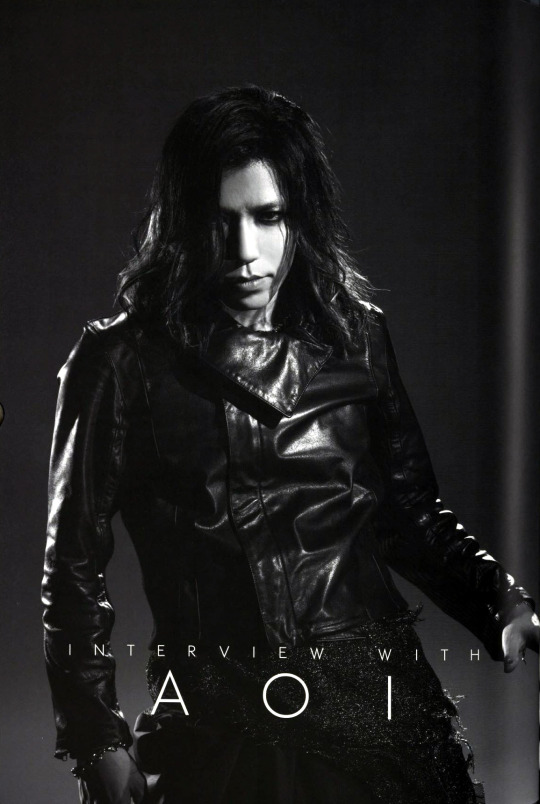
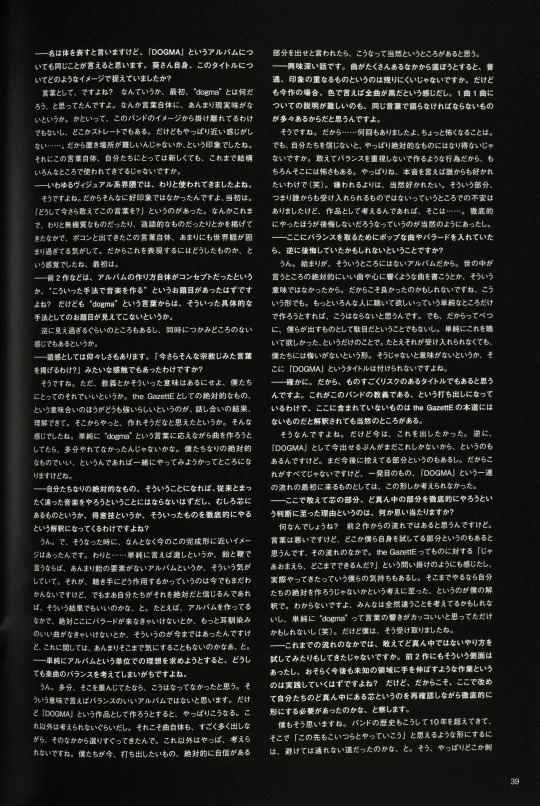
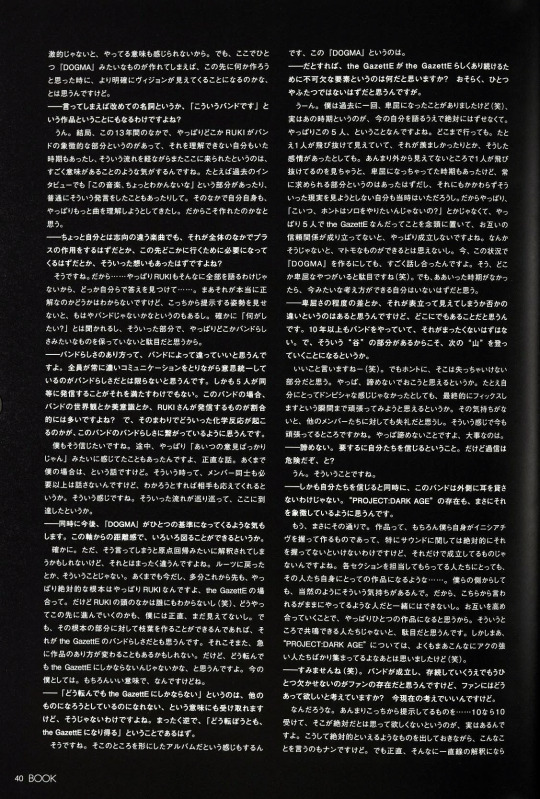
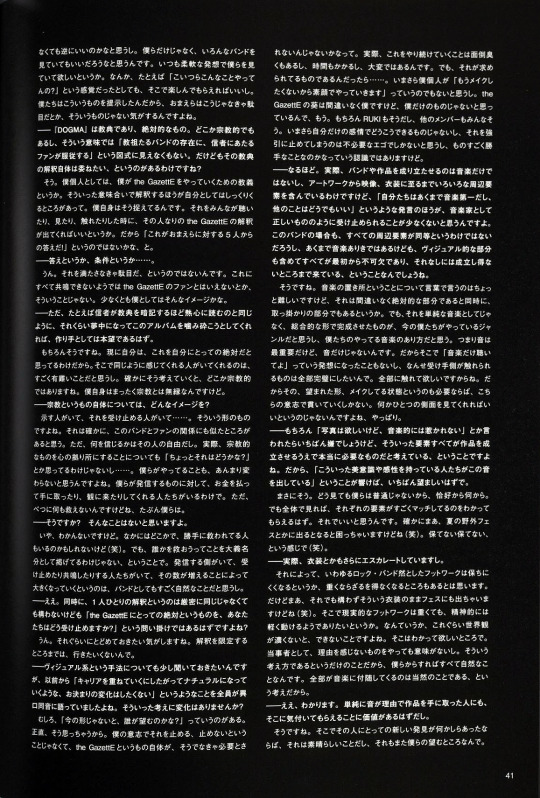
Interviewer: It’s often said that a name represents its essence, and I think the same can be said about the album "DOGMA." What kind of image did you have of this title, Aoi-san?
Aoi: You mean as a word, right? At first, I wondered, “What is 'dogma'?” The word itself didn’t feel very real to me. It wasn’t completely disconnected from the band’s image, but it also wasn’t straightforward. It didn’t quite fit comfortably anywhere. Also, while the word was new to us, it had been used in many contexts before.
Interviewer: It's been quite commonly used in the visual kei scene, hasn't it?
Aoi: Yes, exactly. So, initially, I didn’t have a great impression of it. I wondered, “Why use this word now?” There was that feeling. In our past works, we've often embraced somewhat impersonal or coined terms, and this word "dogma" appeared suddenly, with a worldview that seemed too fixed. At first, it was difficult to grasp how to approach it.
Interviewer: The previous two albums had a clear concept in terms of how the music was made, right? But with the word “dogma,” it’s hard to see a specific method or theme.
Aoi: It’s paradoxical. It’s both too clear and too elusive at the same time.
Interviewer: The word has a grandiose feel. Did it feel strange to use such a religious-sounding word now?
Aoi: Yes, but in our discussions, it became clear that it represented an absolute thing for us, something fundamental to the GazettE. Once we understood that, it started to feel doable. Simply creating songs that respond to the word “dogma” wouldn’t have worked. But if it’s about our absolute essence, then we could work with that.
Interviewer: Your own absolute essence. That wouldn’t mean creating completely different music, but rather, focusing on what you’re best at, right?
Aoi: Yes. When we thought of it that way, we started to see the final form of the album. It felt more intense, like there weren’t many sweet elements. We’re not sure how it will affect listeners, but if we believe in it absolutely, then that result is fine. In the past, we might have thought we needed a ballad or a more familiar song. But for this, we didn’t worry about that.
Interviewer: Usually, when striving for an ideal album, you tend to think about the balance of the songs.
Aoi: If we had focused on that balance, it wouldn’t have turned out this way. In that sense, it’s not a balanced album. But making it as “DOGMA” naturally led to this. We couldn’t imagine it any other way. We created many songs and carefully selected from them, which led to this result. This is what we wanted to showcase, with absolute confidence.
Interviewer: That’s an interesting point. Normally, when selecting from many songs, you avoid ones that overlap in impression. But in this case, all the songs feel dark, like they’re all black in color. It’s hard to describe each track individually because many are expressed in similar terms.
Aoi: Exactly. There were times when it felt a bit scary. But if you don’t believe in yourselves, it can’t become something absolute. Making an album without worrying about balance is inherently scary. We want to be liked rather than disliked, naturally. There was a fear that it wouldn’t be accepted, but as a work, it’s better not to have regrets. If we had added pop songs or ballads for balance, we might have regretted it.
Interviewer: So, if you had aimed to write universally good or heart-touching songs, it wouldn’t have turned out this way. But perhaps that’s why it’s good.
Aoi: Yes, the starting point wasn’t to write universally acclaimed songs. It was simply about what we wanted people to hear. Even if it’s not accepted, we have no regrets. Otherwise, we couldn’t have titled it “DOGMA.” It’s a risky title because it asserts our doctrine. If something isn’t included here, it’s not part of the GazettE’s core path.
Interviewer: It’s true. This title indicates that what’s included here is essential to the band. If it’s not included, it suggests it’s not part of the GazettE’s core.
Aoi: Exactly. But right now, this is what we wanted to release. We don’t have more to show for “DOGMA” at this moment. There’s more to come in the future, but for the first release in this series, this form is the only one we could think of.
Interviewer: What led you to the decision to focus on your core essence so thoroughly here?
Aoi: It’s hard to say. It’s a flow from the previous two works. There’s a part of us testing ourselves within that flow. It felt like a challenge to see how far we could go with the GazettE. If we were going to go that far, it made sense to establish our absolutes. That’s my interpretation. Others in the band might have different thoughts, maybe they just thought “dogma” sounded cool (laughs). But that’s how I took it.
Interviewer: In the past, you’ve deliberately tried different approaches, even in the last two albums. You’ll probably continue exploring new areas in the future. But it seems you needed to reaffirm and shape your core essence now.
Aoi: I think so too. The band has been around for over ten years, and to continue working together in the future, this was a necessary step.
Aoi: If it’s not intense, I can’t feel a reason to do it. But, I think that after we create something like “DOGMA,” then when we think about creating something in the future, our vision will become clearer.
Interviewer: So to put it bluntly, it’s like creating a noun again, it becomes a work that says "this is the kind of band we are," right?
Aoi: Yeah. Ultimately, over these 13 years, there were times when I didn’t quite understand RUKI's symbolic part of the band, but reaching this point now feels significant. For example, in past interviews, I’ve said things like, “I don’t really understand this music.” During that time, I tried to understand the songs more deeply. That’s probably why we were able to create this album.
Interviewer: Even if a song didn’t align with your own tastes, you believed it would add value to the whole, or it was necessary for where you were heading in the future, right?
Aoi: Yes, that's right. So... RUKI doesn't really explain everything, so we have to find answers ourselves... Whether those answers are correct or not is uncertain, but we need to show a proactive stance. If we don’t, we might not really be a band anymore. We do get asked, “What do you want to do?” and we have to maintain a sense of being a band.
Interviewer: What it means to be a band can differ. It’s not necessarily about everyone always having intense communication and unified intentions. In the case of this band, there are a lot of elements like the band’s worldview and aesthetics that RUKI transmits, right? And the chemistry that happens around that defines your band’s essence.
Aoi: I want to believe that too. Honestly, there were times when I felt like it was just about his opinions. That was just my perspective. At such times, the members don’t talk more than necessary to each other, but if you try to understand, the other person responds. It's that kind of feeling. Such a flow comes around, and that’s how we got here.
Interviewer: I also feel that "DOGMA" will become a standard to measure various things against in the future.
Aoi: Indeed. Saying that might be interpreted as a return to roots, but it’s completely different. It’s not about going back to our roots. It’s still about the present and, probably the future too. RUKI remains the core of the GazettE. But no one really understands what’s in RUKI's head (laughs), and I honestly don’t know how we’ll progress from here. However, if we can branch out from that core, that’s the essence of the GazettE. Our way of creating works might change. But no matter what happens, it will still be the GazettE. That’s what I believe now. In a good sense, of course.
Interviewer: When you say “it will still be the GazettE,” it could be taken as meaning that you can’t become anything else, but that’s not the case. It means that no matter how things turn, it will still be the GazettE, right?
Aoi: Yes. That’s how I feel about it.
Interviewer: So, what do you think are the essential elements for the GazettE to continue being the GazettE? I’m sure it’s not just one or two things.
Aoi: Hmm. There was a time when I was quite self-deprecating (laughs), but that period is essential to my current self. Ultimately, it’s about these five members, no matter what. Even if one person seems outstanding and I feel envious of that, or if there used to be such feelings. Even though there were times when I saw someone standing out who wasn’t very visible from the outside, there must have been a part that was always sought after, and yet at that time, I didn't try to see that reality. So, after all, it’s important to keep in mind that "this person doesn't really want to do it solo, do they?" and that it's really the GazettE with these five people, and it’s important for mutual trust to exist, or it just won’t work. Otherwise, I don’t think we can make anything decent. Even now, in this situation, when we were making "DOGMA," we talked a lot. Yes, it's no good if there’s someone who's a bit self-deprecating (laughs). But I think if there hadn’t been such a time, I wouldn’t have been able to think the way I do now.
Interviewer: Everyone experiences different degrees of self-deprecation, and whether it’s visible or not, it’s something that’s always there. After more than 10 years as a band, it’s natural to have such phases. Those “valleys” allow you to climb the next “mountains,” so to speak.
Aoi: You’re absolutely right (laughs). That’s something we shouldn’t lose. It’s about not giving up. Even if it doesn’t feel right for you personally, you push through until the final moment of fixing it. Without that mindset, it’s disrespectful to the other members. That’s what we’re working on now. It’s important not to give up.
Interviewer: Not giving up. Essentially believing in yourselves but being wary of overconfidence?
Aoi: Yes, exactly.
Interviewer: Moreover, while believing in yourselves, your band is not completely closed off to outside influences. The existence of “PROJECT: DARK AGE” symbolizes that.
Aoi: Exactly. While we take the initiative in creating our works, especially regarding sound, it’s not something we do alone. It becomes a project for everyone involved. We need people who can resonate with that. That’s what makes a work complete. Only with people who can elevate each other can we create something meaningful. However, with “PROJECT: DARK AGE,” I did feel like we gathered a bunch of strong personalities (laughs).
Interviewer: Another essential element for the band’s existence and continuity is the fans. What do you want from them? Just your current thoughts.
Aoi: What is it? I don’t want them to take everything we present as absolute. Even though we’re putting out something we consider absolute, I don’t want them to have a one-track interpretation.
Aoi: Even if they don’t take everything we put out as absolute, that might actually be a good thing. I think it’s fine if our fans also check out other bands, and view us with a flexible mindset. For example, even if they think, “What are these guys doing now?” I just want them to enjoy it. It’s not like we’re saying, “We’re presenting this, so you must accept it in a certain way.”
Interviewer: "DOGMA" is a sacred text, an absolute thing. It has a somewhat religious aspect. In that sense, it could be seen as the band being the leaders and the fans being followers. However, you want to leave the interpretation of that sacred text up to the fans, right?
Aoi: Exactly. Personally, I see it as a set of principles for me to continue being part of the GazettE. That’s how I interpret it, and it feels right to me. I think it’s great if everyone listens, watches, and engages with it in their own way and develops their own interpretation of the GazettE. So, it’s not like we’re saying, “This is the answer from the five of us to you.”
Interviewer: It’s more like a set of conditions, rather than an answer.
Aoi: Yes, and it’s not like if you don’t meet these conditions, you can’t be a fan of the GazettE. At least, that’s not my perspective.
Interviewer: But, like a devoted follower memorizing a sacred text, it would be ideal if fans get deeply engrossed in this album and try to fully understand it.
Aoi: Of course. Personally, I consider it my absolute truth. It’s very gratifying if there are people who feel the same way. In that sense, it is somewhat religious. Even though I am not religious at all.
Interviewer: What is your image of religion?
Aoi: There are those who show something, and there are those who accept it... It's that kind of thing, isn't it? Certainly, I think there are similarities to the relationship between this band and its fans. However, what one believes in is up to the individual. I don’t see anything wrong with people finding solace in something religious. What we’re doing isn’t much different. There are people who pay to take in what we put out. However, we probably can’t really save anyone.
Interviewer: You don’t think so? I believe you do.
Aoi: Well, I'm not sure. There might be people out there who feel like they've been saved in some way (laughs). But, we’re not doing this with the grand purpose of saving someone. There are creators who send out something, and there are people who receive it or resonate with it. The more people resonate with it, the bigger it becomes. That feels very natural for a band.
Interviewer: Yes. Each person’s interpretation doesn’t need to be exactly the same, but it is like asking, “How will you receive the absolute aspect of the GazettE?”
Aoi: Yes, I think that’s a good place to leave it. I don’t want to go as far as limiting interpretations.
Interviewer: I also wanted to ask a bit about the visual kei approach. Previously, you all mentioned not wanting to go down the predictable path of becoming more natural as you gain experience. Has that mindset changed?
Aoi: Not really. I think, “If we’re not like this, who would want it?” It’s not something I can just stop or continue on my own will. The GazettE needs to be this way to be necessary. Honestly, continuing this way is a hassle, time-consuming, and tough. But if it’s what’s desired… I can’t just say, “I don’t want to do makeup anymore, I’ll go natural.” Aoi from the GazettE is undeniably me, but it’s not just about me anymore. The same goes for RUKI and the other members. It’s not something I can change based on my own feelings, stopping it forcefully would just be selfish and unnecessary ego.
Interviewer: I see. Indeed, music alone doesn’t define a band or a work. There are many surrounding elements like artwork, videos, and costumes. Some may say, “We are purely about the music, everything else doesn’t matter,” and that might seem like the correct stance for musicians. However, for your band, while music is fundamental, all visual elements are essential too. Without them, it wouldn’t be complete.
Aoi: Exactly. It's hard to put into words, but while music is absolutely central, it’s also just the starting point. What we create isn’t just simple music; it’s a comprehensive form. Our genre and the way we make music are about completing this holistic form. Sound is crucial, but it’s not just about sound. We want everything the audience interacts with to be perfect. That includes the visuals and makeup, if it’s necessary for what’s desired. We’re not just about one aspect.
Interviewer: Of course, hearing someone say, “I like the photos but not the music” would be disappointing. But you believe all these elements are essential for the work to be complete, right? Ideally, the aesthetic and sensibility behind the music should resonate as well.
Aoi: Absolutely. We’re definitely not ordinary, from our looks to everything else. But if you see us as a whole, you’ll realize how all the elements match perfectly. That’s enough for me. Sure, it’s tricky for summer outdoor festivals and it’s hard to maintain (laughs).
Interviewer: Your costumes have become more elaborate too.
Aoi: It does make it harder to move like a typical rock band, heavier in a way. But we still go to festivals like this (laughs). Even if it’s physically demanding, I want to keep moving lightly in spirit. This kind of intense worldview is something you can’t achieve otherwise. As long as it feels justified, it’s meaningful for us. For us, it’s all natural. Everything naturally accompanies the music.
Interviewer: Yes, I understand. For people who initially pick up your work because of the music, noticing these elements is valuable.
Aoi: Indeed. If it leads to new discoveries for them, that’s wonderful and exactly what we hope for.
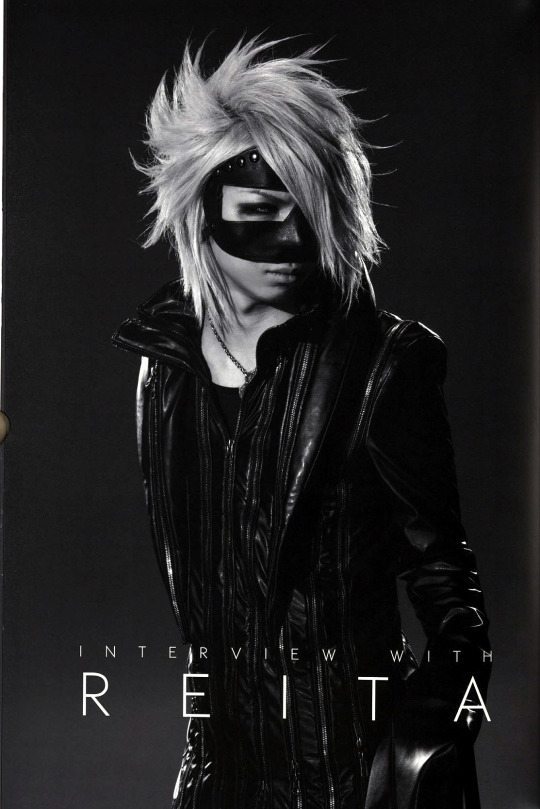
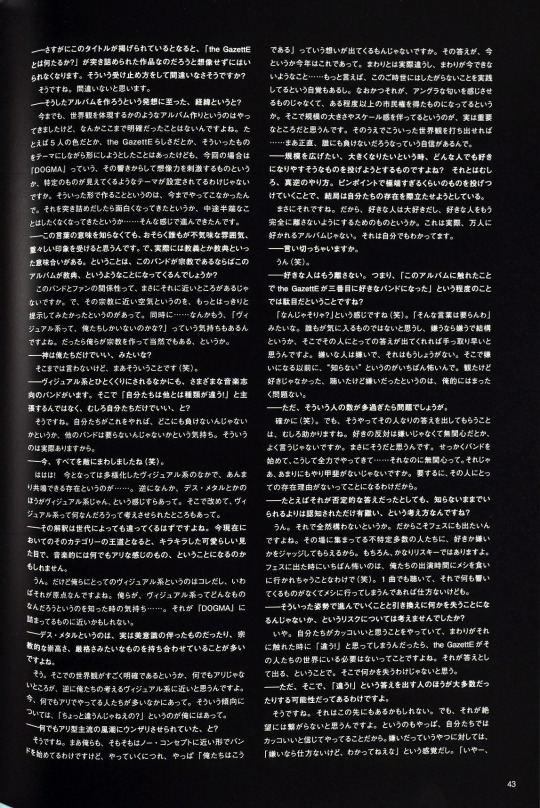
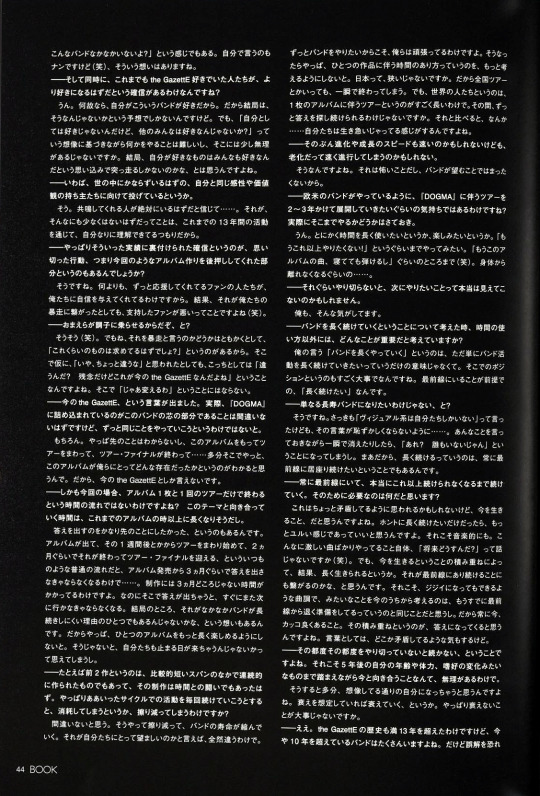
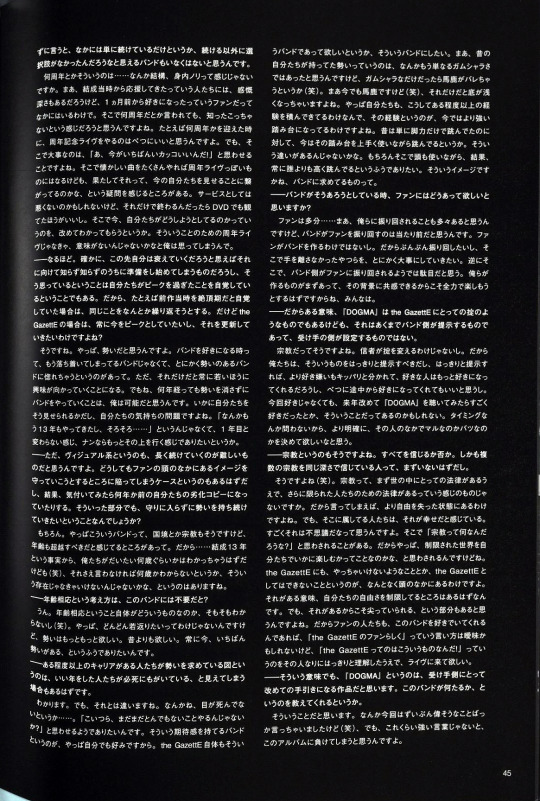
Interviewer: When you put out a title like "DOGMA", it’s inevitable that people will wonder, "What is the GazettE?" It makes you imagine that this work delves deeply into that question. Is that the correct way to perceive it?
Reita: Yes, I think that's right.
Interviewer: What led you to the idea of creating such an album?
Reita: Up until now, we've made albums that embody a certain worldview, but it's never been this clear. We've tried to shape things based on themes like the colors of the five of us or the essence of the GazettE. However, this time, with the theme of "DOGMA," the very sound of the word stimulates imagination and suggests a specific concept. We've never created an album with such a defined theme before. As we delved into it, it became more interesting and we didn’t want to do anything halfway. That’s how it progressed.
Interviewer: Even without knowing the meaning of the word, I think everyone will get a sense of a creepy, heavy atmosphere. And in reality, it means doctrine or scripture. So, if this band were a religion, would this album be its scripture?
Reita: The relationship between this band and its fans is quite similar to that, isn’t it? We wanted to clearly present that quasi-religious atmosphere. At the same time, we also feel like, "Are we the only ones left in visual kei?" If that’s the case, then it’s only natural for us to create our own religion.
Interviewer: Are you saying, "We are the only gods"?
Reita: I wouldn’t go that far, but yes, something like that (laughs).
Interviewer: There are various bands within the visual kei scene with different musical directions. Instead of asserting that "we're different from others," you’re saying it’s more like, "It's okay with just us"?
Reita: Yes, we feel that if we do this, we won't lose to anyone, and other bands aren’t necessary. That's how we feel.
Interviewer: Now, you've turned everyone into your enemies (laughs).
Reita: Hahaha! Given the diversity in visual kei today, there aren't many others we resonate with... To be honest, death metal seems more visual kei to me these days. It made me reconsider what visual kei really is.
Interviewer: That interpretation can differ by generation. Nowadays, the mainstream in that category might be characterized by a cute, sparkling look with an anything-goes musical approach.
Reita: Yeah. But for us, this is what visual kei is, and it's kind of our origin. It's how we felt when we first learned about visual kei... That might be close to what's packed into "DOGMA."
Interviewer: Death metal often accompanies an aesthetic sense, religious sublimity, and strictness.
Reita: Exactly. The clarity of that worldview, the fact that it's not just anything goes, is close to our idea of visual kei. Nowadays, there are many who do anything goes, but to me, that feels a bit off.
Interviewer: So, you were fed up with the mainstream trend of doing anything goes?
Reita: Yeah. Well, we started the band with a close-to-no-concept approach, but as we continued, the feeling of "this is who we are" emerged. That answer is what we have now. We are different from others, and we’re doing things that others can’t or wouldn’t want to do in this era. Moreover, it's not something that has a hint of the underground but rather something that has gained a certain level of acceptance. The scale and scope are important. By presenting such a worldview, I honestly believe we can’t be beaten.
Interviewer: When people aim to expand and grow, they mostly try to throw something that anyone can easily like, right? But you’re doing the exact opposite. By throwing something extremely pinpointed and extreme, you’re trying to highlight your own existence.
Reita: Exactly. So, people who like it will love it, and it’s meant to keep those who like us from ever leaving. This album isn’t something that everyone will like. I myself understand that.
Interviewer: You say that so definitively.
Reita: Yes. (laughs)
Interviewer: You want to ensure that those who like you will never leave. So, it’s not enough if someone listens to this album and thinks, "the GazettE is my third favorite band"?
Reita: "What's that?" That's the feeling (laughs). We don’t need such words. I know not everyone will like it, and if they hate it, that’s fine, as long as they come to their own conclusion. If someone dislikes it, that’s unavoidable. What’s most frightening is "not being known." Seeing but not liking, listening but hating, is not a problem for me.
Interviewer: Although, if too many people felt that way, it would be a problem.
Reita: True (laughs). But it helps to have people come to their own conclusions. They often say the opposite of love is not hate, but indifference. That’s exactly what I think. We started this band and have been doing our best... if people are indifferent, that’s unfulfilling. It means our existence doesn’t matter to them.
Interviewer: So even if the response is negative, being recognized is more important than being unknown?
Reita: Yes, I have no problem with it. That’s why I want to perform at festivals. Because there, a diverse crowd will judge if they like us or not. Of course, it’s risky. The scariest thing is people going to eat during our set. (laughs) If they listen to one song and then leave because they felt nothing, there's nothing you can do.
Interviewer: Didn't you consider the risk that pursuing this path might result in losing something?
Reita: No. If what we think is cool makes people think "that's.. different" then the GazettE doesn’t need to be in their world. That’s the answer. I don’t think we lose anything there.
Interviewer: But what if the majority ends up thinking "that's different"?
Reita: Yes, that might happen. But it won’t lead to despair. Because we believe what we’re doing is cool. To those who say they hate it, I’d just think, "If you hate it, that’s fine, but you don’t get it."
Reita: There aren't many bands like us, right? That's what I think. It might sound conceited (laughs), but that's how I feel.
Interviewer: And at the same time, you're confident that those who have liked the GazettE up until now will like you even more with this release, right?
Reita: Yes. Because I myself like bands like this. So, in the end, it's just my assumption. But it's hard to do something based on the idea, "I don't like it, but maybe everyone else will?" That just feels a bit forced. In the end, you have to run with the belief that what you like, everyone else will like too.
Interviewer: In other words, you're aiming at people out there who share the same sensibilities and values as you do.
Reita: Yes. I believe there are definitely people who will resonate with us. Through our 13 years of activity, I've come to understand that there are quite a few of those people out there.
Interviewer: Do you think that this confidence, backed by your past achievements, has pushed you to take bold actions, like making this album?
Reita: Yes. Above all, the fans who have supported us all along have given us the confidence. So even if that leads to us going a bit overboard, it’s the fans' fault for encouraging us. (laughs)
Interviewer: "It's your fault for getting us all fired up," right?
Reita: Exactly. (laughs) But, whether you call it overboard or not, we have a sense of "this is what you’re expecting from us, right?" So even if people think, "No, this isn’t it," we can say, "Too bad, but this is what the GazettE is now." We're not going to change just because of that.
Interviewer: You mentioned "the current GazettE." While it's clear that "DOGMA" represents the core of the band, you’re not saying you'll always do the same thing.
Reita: Of course. You never know what’s ahead. After we release this album, tour with it, and finish the final show, then maybe we'll understand what this album means to us. So, I can only say it's the current GazettE.
Interviewer: This time, it seems like the period you'll spend on this theme will be longer than usual.
Reita: We wanted to delay finding the answer a bit longer. Usually, after releasing an album, we start touring about a week later, finish it in two months, and reach the tour final. In such a typical flow, you end up having to find the answer within about three months from the album release. But making an album takes way longer than three months. If we have to find the answer in that short time, we have to move quickly. I feel that this is one reason why bands don't last long. We need to enjoy one album for a longer time. Otherwise, I feel like we might come to a stop.
Interviewer: For instance, the previous two albums were made in a relatively short span and were battles against time. Trying to keep up such a cycle might wear you down, right?
Reita: Definitely. You get worn out, and the band’s lifespan gets shorter. That's not desirable for us at all. We want to keep doing the band, that's why we work hard. So, we need to think more about the way we spend time on each album. Japan is small, so even a national tour ends quickly. But in other countries, the tours for one album last much longer. They keep searching for answers during that time. Compared to that, I feel like we’re rushing too much.
Interviewer: Your evolution and growth might be fast, but aging might progress quickly too.
Reita: Exactly. That’s scary, and not what we want at all.
Interviewer: Do you feel like you want to do a tour for "DOGMA" for 2-3 years, like bands in the West do?
Reita: Yes. I want to spend more time and enjoy it more. I want to do it until I feel like I can't do it anymore. I want to get to the point where I can play the songs in my sleep. (laughs) Until it sticks with me that much.
Interviewer: Maybe you won't see what you want to do next until you go all out like that.
Reita: I think so too.
Interviewer: When thinking about keeping the band going for a long time, what do you think is important aside from how you use your time?
Reita: When I say I want to keep the band going for a long time, I don’t just mean continuing the band's activities. The position we’re in is very important. I want to continue for a long time while being at the top.
Interviewer: You don’t just want to be a long-lived band?
Reita: Right. Like I said before, "there’s no one else in visual kei but us," and I don’t want those words to become embarrassing. If we say something like that and then disappear quickly, it would be like, "Oh? There's no one left." So, to continue for a long time means we want to stay at the forefront.
Interviewer: To always be at the forefront and continue until you really can't anymore. What do you think is necessary for that?
Reita: This might sound contradictory, but I think it’s living in the present. If you only want to continue for a long time, you could take it easy. Musically too. If we keep doing only intense songs, it's like, "What is there left to do in the future?" (laughs). But I think by living in the present, we can continue for a long time. That’s what keeps us at the forefront. If we start thinking about making songs that we can play even as old men, it’s like we’re already preparing to step back. So, always being cool in the present is important. That accumulation is the answer, I think. It might sound contradictory though.
Interviewer: If you don't give it your all each time, you can't keep going, right? Considering your age, physical strength, and preferences five years from now while facing the present is impossible. If you think like that, you might just become the person you imagine. Assuming you’ll decline and then changing things because of that. It’s important not to decline.
Reita: Exactly. The GazettE has been around for over 13 years now, and there are many bands that have been around for more than 10 years. But...
Reita: Honestly, I think there are some bands out there that are just continuing because they had no other choice..
Celebrating anniversaries and such can sometimes feel like an insider thing. Sure, there are those who have been supporting us since the beginning and might find it deeply moving, but there are also fans who just started liking us a month ago. For them, it might not matter if we say it’s our anniversary. For instance, having an anniversary concert is fine. But what’s important is to make people think, “Wow, they are at their best right now!” If we just play a lot of nostalgic songs, it might feel like an anniversary concert, but I wonder if it really shows who we are now. As a service, it might not be bad, but if that’s all there is, it might be better to just watch a DVD. An anniversary concert should be about showing who we are now, not just celebrating the past.
Interviewer: I see. Indeed, if you think you’re going to decline in the future, you might subconsciously start preparing for it, and thinking that way means you’re aware you’ve passed your peak. If you thought the last album was the peak, you might try to repeat the same thing. But for the GazettE, you always want now to be the peak, and you want to keep updating it, right?
Reita: Exactly. I think it’s about momentum. When you start liking a band, it’s not a settled band, but a band with a lot of momentum. If you only go for that, you’ll always be interested in the younger ones. But I think it’s possible to keep that momentum even after many years. It’s about how you present yourselves and your mindset. Instead of thinking, “We’ve been doing this for 13 years, maybe it’s time to…” we should have the same or even more energy than in the first year.
Interviewer: Continuing as a visual kei band is particularly difficult. There’s the risk of getting stuck trying to maintain the fans’ image of you, which could result in becoming a deteriorated copy of your past selves. You want to keep your momentum and not fall into that trap, right?
Reita: Of course. I think bands like us should transcend borders, religions, and even age. From the fact that we’ve been together for 13 years, people can guess our ages, but if we don’t mention it, they wouldn’t know. We shouldn’t be bound by the idea of acting our age.
Interviewer: So the concept of acting your age doesn’t apply to this band?
Reita: Exactly. I don’t even know what acting our age means. We don’t want to just get younger, but we want more momentum. More than before. We always want to be seen as having the most momentum right now.
Interviewer: To some people, seasoned bands trying to seek momentum might look like older folks desperately flailing.
Reita: I understand, but it’s different. It’s like our eyes aren’t dead. We want people to think, “These guys are still going to do amazing things.” I personally like bands that give you that feeling. I want the GazettE to be that kind of band. In the past, our momentum might have just been reckless, but being reckless alone reveals a lack of depth. Even now, we might still be a bit reckless, but we’ve gained a lot of experience that serves as a stronger base now. Before, we just jumped with leg strength, but now we use that base to jump even higher. We want to be the ones who always jump higher than anyone else, using both our heads and our experience.
Interviewer: When the band strives to be like that, how do you want the fans to be?
Reita: I think fans will often feel like they’re being dragged along by us, but I believe that’s natural. Fans don’t create the band. We want to keep swinging them around, and we want to cherish those who hold on. On the other hand, if the band gets swung around by the fans, it’s no good. We create something first, and people empathize with that and enjoy it fully.
Interviewer: In that sense, “DOGMA” is like a set of rules for the GazettE, but it’s the band that presents them, not the audience.
Reita: It’s like religion. Believers don’t change the rules. We should present them clearly, and if we do, it will be clear who likes and dislikes it, and those who like it will like it even more. It’s okay if people start liking us halfway through. Even if they don’t like it now, they might listen to “DOGMA” again next year and really like it. I want them to clearly decide if it’s a hit or miss for them.
Interviewer: That’s like religion too. You either believe everything or nothing. No one deeply believes in multiple religions equally.
Reita: Right. Religion has general laws and then additional laws for a limited group. It means you lose more freedom, but the people in it feel happy. It’s fascinating. I often wonder what religion really is. It’s about enjoying a restricted world in your own way. The GazettE also has things we shouldn’t do or can’t do as the GazettE. That might limit our freedom, but it also keeps us sharp. So if fans like this band, they should understand what the GazettE is and come to our concerts with that understanding.
Interviewer: “DOGMA” is a guide for the fans to understand what this band is all about.
Reita: I think so. I’ve been saying some pretty bold things, but we need strong words like this to match the album.
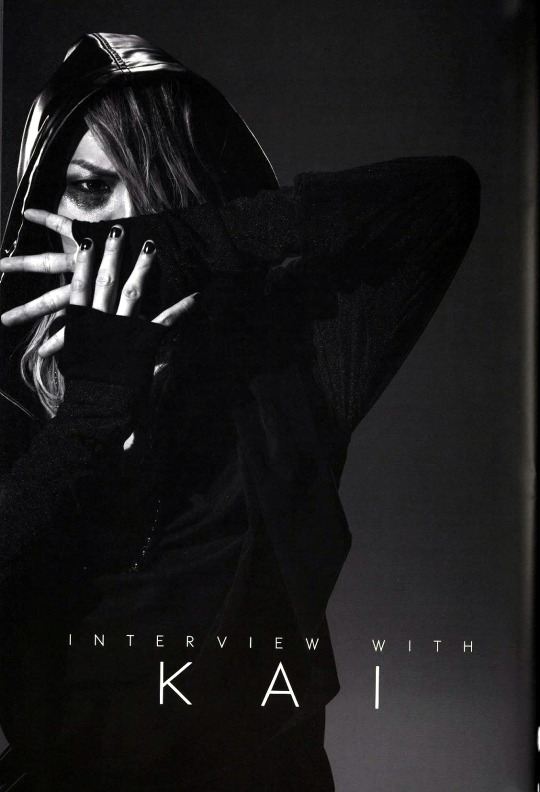
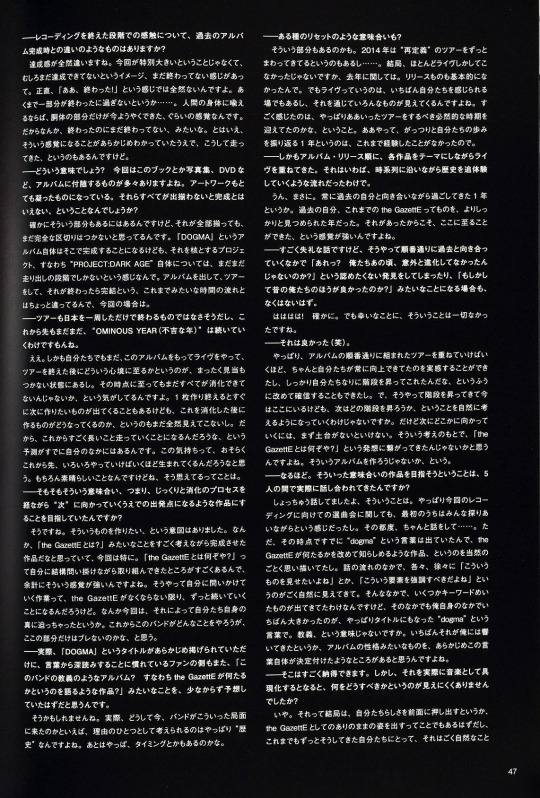
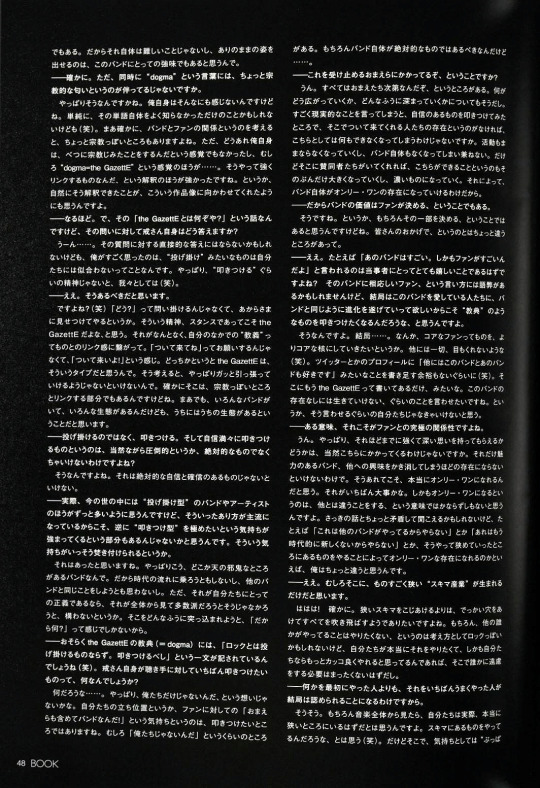
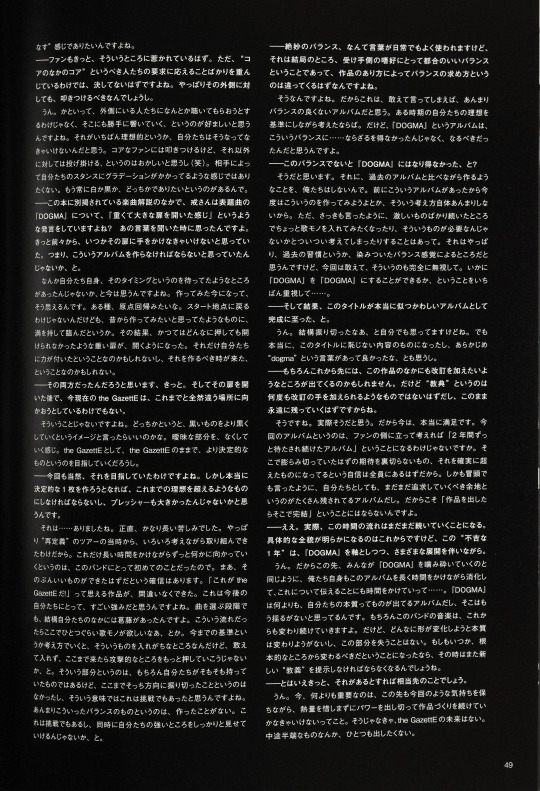
Interviewer: Looking back at the recording process, how does it compare to the completion of previous albums?
Kai: The sense of accomplishment is entirely different. It's not that this time is particularly significant, but rather that it feels like it's not quite finished yet. Honestly, it doesn't feel like a definitive "Ah, it's done!" moment at all. It feels like only a part of the process has been completed. To use a human body as a metaphor, it's like we've only just completed the torso. So, it's like we're finished, yet not finished. I was aware that I would feel this way from the start, and that’s how we’ve been progressing.
Interviewer: What do you mean by that? This time, there are many additional elements like the book, photo album, and DVD. The artwork is also very elaborate. Does this mean it won't feel complete until everything is released?
Kai: That's part of it, but even when everything is ready, I don’t think it will feel like a complete closure. The album "DOGMA" itself will be complete, but the "PROJECT: DARK AGE," is still just starting. The flow of time is different this time. It's not like before, where we released an album, toured, and then it was done.
Interviewer: The tour seems far from over, as it’s not just confined to Japan. It looks like the "OMINOUS YEAR" will continue.
Kai: Yes, and we still don’t know what our mindset will be after the album and tour. I feel like we won't have fully processed everything by then. Sometimes, right after finishing an album, you want to start creating the next one. But I can't see what we’ll create after digesting this one. I predict that we'll be running for a long time from now. This feeling will probably grow stronger as we move forward, which is a wonderful thing.
Interviewer: Did you aim to create this album as a starting point for a slow and thorough process leading to the next phase?
Kai: Yes, we intended to create something like that. This work was being done while we pondered deeply about what "the GazettE" means. This reflection has been especially strong this time. The process of questioning myself about the band's essence will continue as long as the GazettE exists. This time, we’ve delved into our true essence. Regardless of what we do in the future, I think this core part will remain unshaken.
Interviewer: Fans, used to interpreting your words deeply, might have expected this album to define the GazettE's doctrine, given its title "DOGMA."
Kai: That might be true. One of the reasons we reached this point is due to our history. Timing also plays a part.
Interviewer: Was there a sense of resetting involved?
Kai: Maybe. We toured under the theme of "redefinition" in 2014, performing mostly live shows and not releasing much. Live shows are where we feel the most like ourselves and gain various insights. I felt that it was a necessary time to thoroughly reflect on our journey, something we hadn’t done before.
Interviewer: The tour followed the release order of your albums, allowing you to relive your history in chronological order.
Kai: Exactly. It was a year of constantly facing our past. We were able to look at the GazettE and ourselves more closely than ever before. This is why we’ve reached the point we are in now.
Interviewer: This might sound rude, but didn’t you discover anything you’d rather not admit, like thinking you hadn’t progressed as much as you’d hoped or that your earlier work was better?
Kai: (Laughs) Fortunately, not at all.
Interviewer: That’s good to hear (laughs).
Kai: As we performed more tours following the order of our albums, we realized we had consistently improved and climbed our own ladder. Now, we're here, and naturally, we start thinking about what ladder to climb next. But to move forward, we need a solid foundation. This led us to question, "What is the GazettE?" and create an album around that concept.
Interviewer: I see. Did you discuss this among the five of you?
Kai: Yes, we frequently discussed it. Initially, everyone was cautious, but we talked things over each time. The word "dogma" had already come up, so we naturally envisioned an album that reaffirms the essence of the GazettE. Through discussions, we gradually identified the elements we wanted to highlight. One of the most significant keywords for me was "dogma." It resonated with me and seemed to define the album's character.
Interviewer: That makes sense. However, when it comes to embodying that in music, wasn't it challenging to figure out what to do?
Kai: Not really. Ultimately, it's about fully expressing ourselves and presenting the GazettE as we are. We’ve always done that, so it felt natural to us.
Interviewer: True, but the word “dogma” also has a somewhat religious connotation, doesn’t it?
Kai: Maybe, but I don’t feel that much. Perhaps because I didn’t know the word well. (laughs) Sure, the relationship between a band and its fans can seem a bit like a religion. But for me, it wasn’t about doing something religious; it was more about “dogma of the GazettE.” That strong link in interpretation led me naturally to this project.
Interviewer: I see. What does “the GazettE” mean to you?
Kai: Well... It might not be a direct answer, but I feel that we are not suited to “throwing things out there.” We need to “smash it down” instead. That’s who we are.
Interviewer: Indeed, that’s how it should be.
Kai: Right? (laughs). Instead of asking, “How do you feel?” it’s about showing it blatantly. That’s the spirit, the stance that defines the GazettE. It links strongly with the concept of “dogma.” It’s not about asking fans to follow us; it’s about demanding they come along. That’s the type the GazettE is. So, we must lead with that strength. Sure, it might link with the religious aspect, but every band has its way. That’s ours.
Interviewer: Rather than “throwing it out,” you “smash down.” And what you smash down must be overwhelming or absolute, right?
Kai: Yes, it must be something we have absolute confidence and conviction in.
Interviewer: In today’s world, there seem to be more bands and artists that “throw things out there.” Don’t you think that makes you want to perfect the “smashing down” approach even more?
Kai: Yes, there’s that contrarian streak in our band. We don’t try to follow the trends or do the same as others. If it’s our truth, it doesn’t matter if it’s mainstream or not. Even if criticized, it’s like, “So what?”
Interviewer: I suppose the GazettE’s “doctrine” includes the phrase, “Rock is not about throwing out; it’s about smashing down.” What’s the one thing you most want to smash down to your listeners?
Kai: That It’s not just us. It’s about the feeling that “You, the fans, are also part of the band!” It’s about smashing down the sense that “It’s not just us.” The band must be absolute, but...
Interviewer: You mean it’s up to the fans to take it in, right?
Kai: Yes, everything depends on you. What spreads and deepens also relies on you. Speaking practically, if we throw down something confident, but no one follows, we can’t do anything. Our activities will falter, and the band might cease to exist. But if we have supporters, what we can do grows and deepens, making the band unique.
Interviewer: So the band’s value is decided by the fans too.
Kai: Yes, in part. It’s not just “thanks to you all.”
Interviewer: Like, “That band is amazing, and so are their fans,” right? Ultimately, you want fans to evolve with the band, which makes you want to smash down this “doctrine.”
Kai: Exactly. I want core fans to become even more core. So dedicated that they don't even have room in their profile to mention other bands (laughs). Just the GazettE. Saying they can’t live without us. We need to be that kind of band. That’s the ultimate relationship with fans.
Interviewer: Right. Having fans that deeply dedicated depends on the band’s charm, right?
Kai: Yes, we need to be a band so compelling that fans have no interest in others. Only then can we be truly unique. It’s not about doing something different from others but being compelling in our way.
Interviewer: Otherwise, it’s just a narrow niche.
Kai: Haha! Exactly. Instead of a narrow niche, we should aim to blow everything away. It’s very rock n roll to not follow others, but if we can do it, why hesitate?
Interviewer: The ones who do it best get recognized, not necessarily the first one to do it.
Kai: Right. In the big picture, we are niche, but we’re making our mark there.
Interviewer: Fans are surely attracted to that aspect. But it’s not just about prioritizing the demands of what you could call the "core of the core" fans. You must also aim to make an impact on those outside that core.
Kai: Yeah. But it’s not about trying to make those on the outside listen to us; it’s preferable if it resonates with them naturally. That’s the ideal, and I believe we need to achieve that. We strike hard at our core fans, but just throwing it out to everyone else would be strange (laughs). We don't want our stance to have a gradient based on the audience. We always want to be either black or white.
Interviewer: In the song commentary included in this book, you mentioned that the title track "DOGMA" felt like "opening a heavy and large door." When I heard that, I thought you must have felt that at some point, you had to reach out to that door. In other words, you thought you had to make an album like this eventually, right?
Kai: I think we were waiting for the right timing ourselves. Now that we’ve made it, I feel that way. It’s a kind of return to our roots. We’re not going back to the starting point, but we approached something we always wanted to create with full readiness. As a result, a heavy door that we couldn’t open no matter how hard we pushed before has now opened. Maybe it’s because we’ve gained strength, or maybe it was just the right time to make this.
Interviewer: It was probably a bit of both. And after opening that door, the current the GazettE isn’t necessarily trying to head to a completely different place than before.
Kai: Not at all. It’s more about making the dark parts even darker, so to speak. It’s about eliminating ambiguous parts and striving for something more definitive as the GazettE, while still being the GazettE.
Interviewer: Of course, that’s what you aimed for this time as well. But I think there must have been a lot of pressure to create a truly definitive piece that surpasses your previous ideals.
Kai: Yes... there was. Honestly, it was quite a long period of struggle. We worked on it while thinking about various things since the time of the "redefinition" tour. This was the first time for our band to continuously work toward something over such a long period. Well, I’m confident that the result is something good. We’ve definitely made a piece that we can proudly say, "This is the GazettE!" I believe this will be a great strength for us moving forward. Even in the stage of selecting songs, we had quite a bit of inner conflict. For instance, thinking, "In this flow, it would be nice to have at least one melodic song here." According to our previous standards or way of thinking, we would tend to include something like that, but we deliberately didn’t, deciding instead to push more on the aggressive side. This approach was something we originally had within us, but we had never gone this far in that direction before, so in that sense, it was also a challenge. We’ve never made something with this kind of balance. This is both a challenge and a way to firmly showcase our strengths.
Interviewer: The term "perfect balance" is often used in everyday life, but in the end, it’s just a balance that suits the preferences of the receiver. The way balance is sought depends on the nature of the work itself.
Kai: That’s right. So, to put it bluntly, this might not be a well-balanced album. If you consider it from the ideal of a certain period of ourselves. But the album "DOGMA" couldn’t have been balanced in any other way... it had to be like this.
Interviewer: In other words, it wouldn’t have been "DOGMA" if it wasn’t for this kind of balance?
Kai: Exactly. Also, we don’t create albums by comparing them to our past works. We don’t think, "We made this kind of album before, so let’s try making this kind now." As I mentioned earlier, there were times when we felt the need to add a melodic song after a series of intense tracks, thinking it might be necessary. That’s due to past habits or ingrained sense of balance. But this time, we completely ignored that. We focused most on making "DOGMA" as "DOGMA" as possible.
Interviewer: And as a result, you’ve completed an album that truly fits its title.
Kai: Yes. Even I feel that we really pushed the limits. But we’ve truly created something that lives up to the title, and I’m glad we had the word “dogma” from the beginning.
Interviewer: Of course, there may be parts within this work that you might want to revise in the future. But a “canon” isn’t something that can be repeatedly revised, and it’s meant to last forever in its current form.
Kai: Yes, I think so too. That’s why I’m really satisfied right now. For fans, this album is "an album they’ve been waiting for for two years." We’re confident that it’s something that won’t betray their high expectations, something that even surpasses them. Moreover, as I mentioned at the beginning, it’s an album with plenty of room for further exploration on our part. That’s why releasing a work doesn’t mean it’s complete.
Interviewer: Ofcourse. This flow of time will continue for quite a while.
Kai: The full scope will become clear moving forward, but this "ominous year" will involve various developments with "DOGMA" at its core. So, just like everyone will be breaking down "DOGMA," we’ll also spend a long time digesting this album and communicating about it. "DOGMA" is an album that reflects our essence more than anything, and I believe that part will remain unshaken. Of course, our music will continue to evolve, but no matter how much its form changes, the essence won’t change, and we won’t lose this part. If at some point, we decide that we need to change fundamentally, then we’ll have to present a new "doctrine" again.
Interviewer: But surely, if that ever happens, it will be far in the future.
Kai: Yes. Right now, the most important thing is to keep this mindset we have, continue creating works with the same passion and energy, and give our all. Otherwise, there is no future for the GazettE. We don’t want to release anything half-baked.
...
.......
...
Part 1 of the Dogma Book translations (members comments about each song)
Once again, all the scans are from the archive (rad-is-more) All translations are ChatGPT, edited by me. I added the book text pages themselves because I often read interviews and want to look more deeply into a certain passage but people never provide the source of the translation so it's impossible to do. This might not be the most aesthetic way to do an interview post but it's the most convenient for me personally. Also, I've noticed all the pieces like photos, art and interviews are very scattered on this site. Fragmentation only leads to misunderstanding and I am trying to piece everything together as much as possible, even though it leads to very long posts.
#the gazette#Featuring: ruki talking about taylor swift!#Reita and Uruha talking about how they want to pull you in to their core and have you locked there forever?#Ruki living rent free in aois head!#And kai hating it if you put other band names in your bio!#dogma book#interview translations#dogmatic#mi
88 notes
·
View notes